arts&sciences
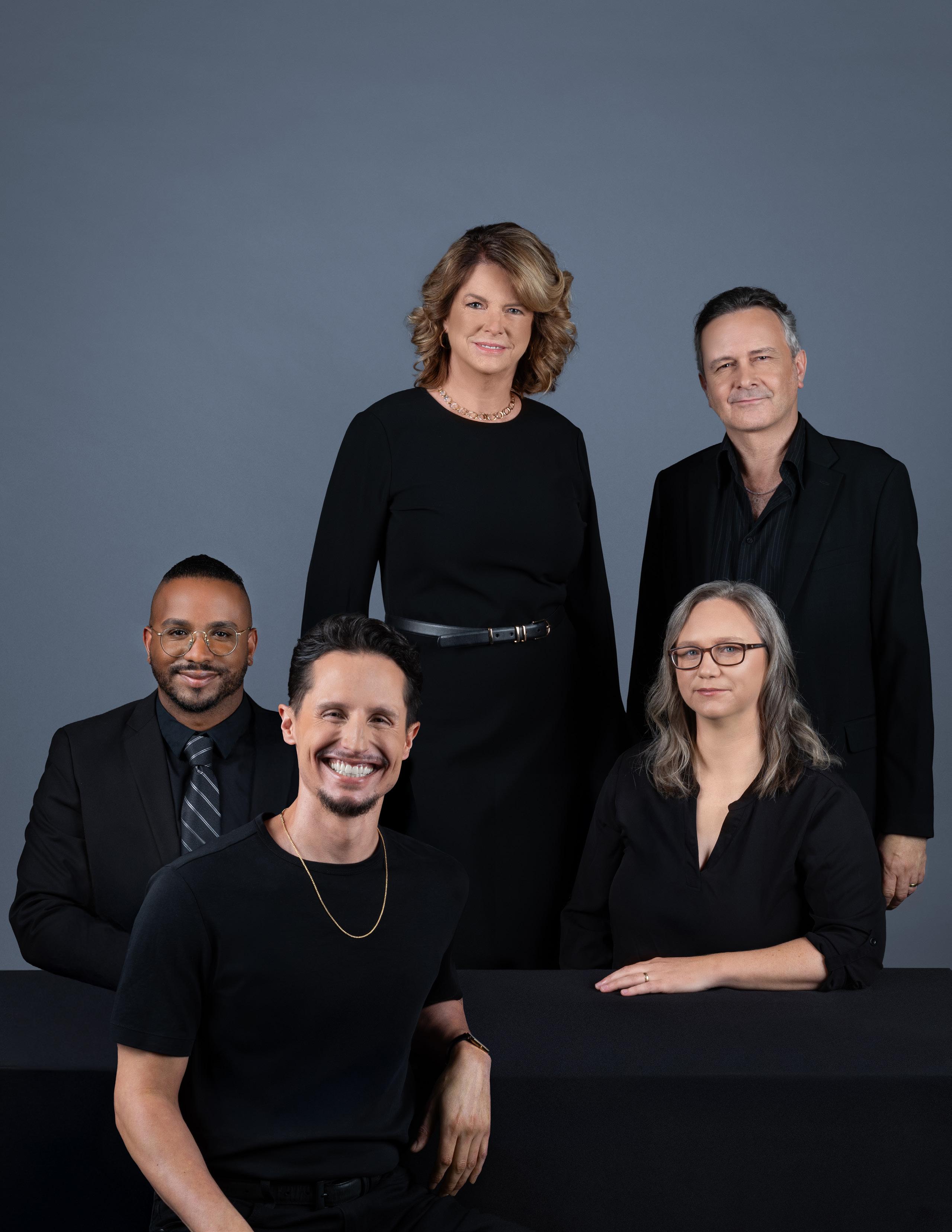
Reaffirming the Liberal Arts Why the Liberal Arts are Vital in an Uncertain Future page 12


Reaffirming the Liberal Arts Why the Liberal Arts are Vital in an Uncertain Future page 12
Volume 3 | Issue 1 | Fall 2025
EXECUTIVE EDITOR
Tanya Aubin
SENIOR EDITOR
Michelle Kennedy
COPY EDITORS
Tanya Aubin
Eduard Hovhannisyan
Michelle Kennedy
Gabriela Ortiz Flores
Julene Snyder
Elleanor White
DESIGN TEAM
Tanya Aubin
CONTRIBUTING WRITERS
Lily Anderson
Tanya Aubin
Brian Clack
Israel Fox
Eduard Hovhannisyan
Ronald Kaufmann
Michelle Kennedy
Noelle Norton
Gabriela Ortiz Flores
Julene Snyder
David Syring
Jade Terry
Jillian Tullis
Elleanor White
PHOTOGRAPHY AND FILM DIRECTOR
Michelle Kennedy
COVER PHOTOGRAPHER
Alejandro Meter
VIDEO EDITORS
Tanya Aubin
Riley Longo
COLLEGE ADVISORY BOARD
Patrick Morrin ’83 (Chair)
Valerie Attisha ’94
Peter Kiley ’85
Brianna Kirkpatrick ’15
Maria Manning ’83
Katarina Matic ’26
Mary McKenzie ’07 (JD), PhD
Mary O’Connor ’83, DDS
Colleen Rodriguez ’97
Jared Ruga ’11, MFA, MBA, JD
Jensen Shirley ’09 (EdD)
Celeste Soto ’11, MA
Cole Torres ’26
Jeffrey Vijungco ’96
Glenn D. White Jr. ’78

@usdcas
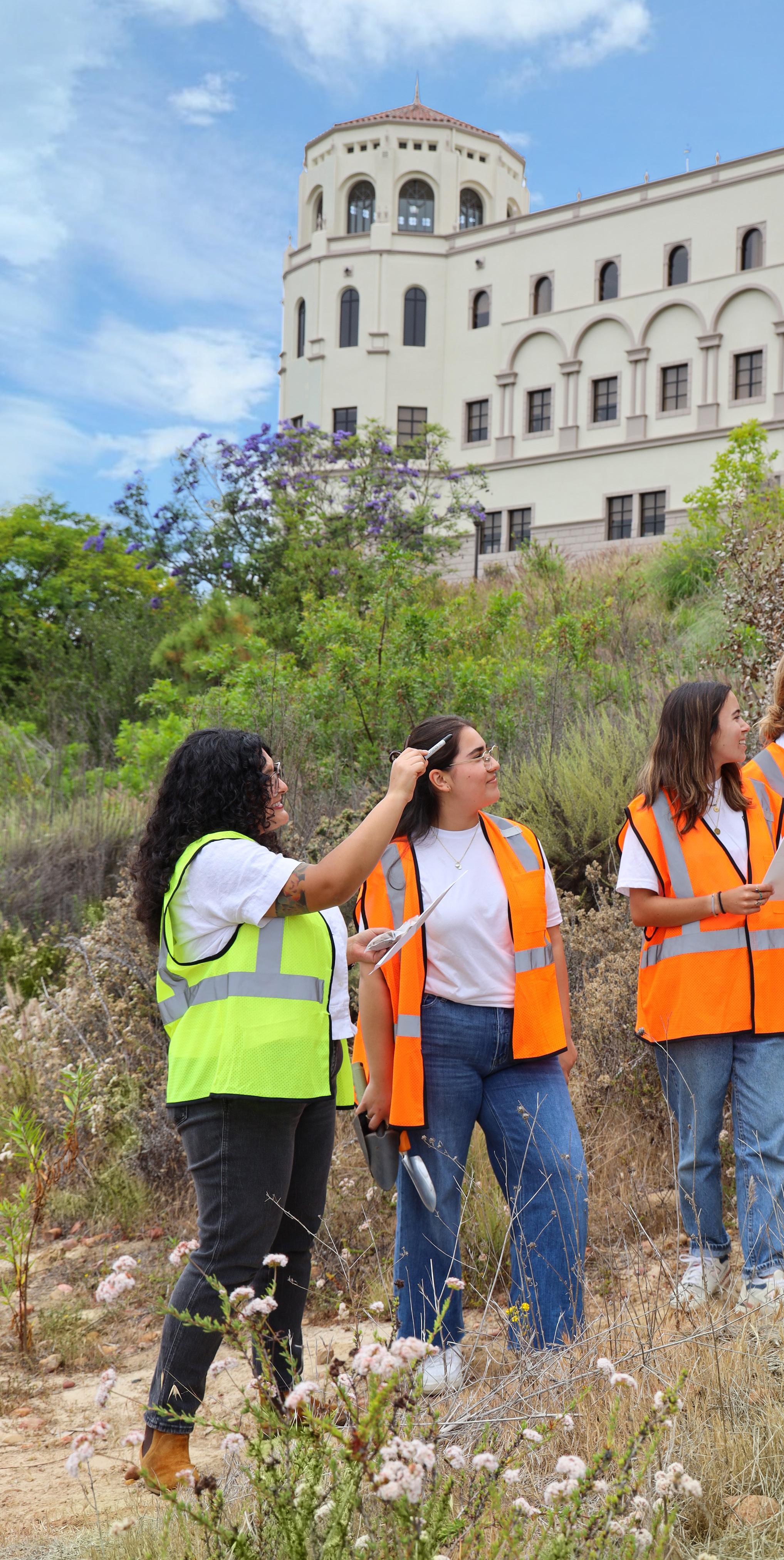

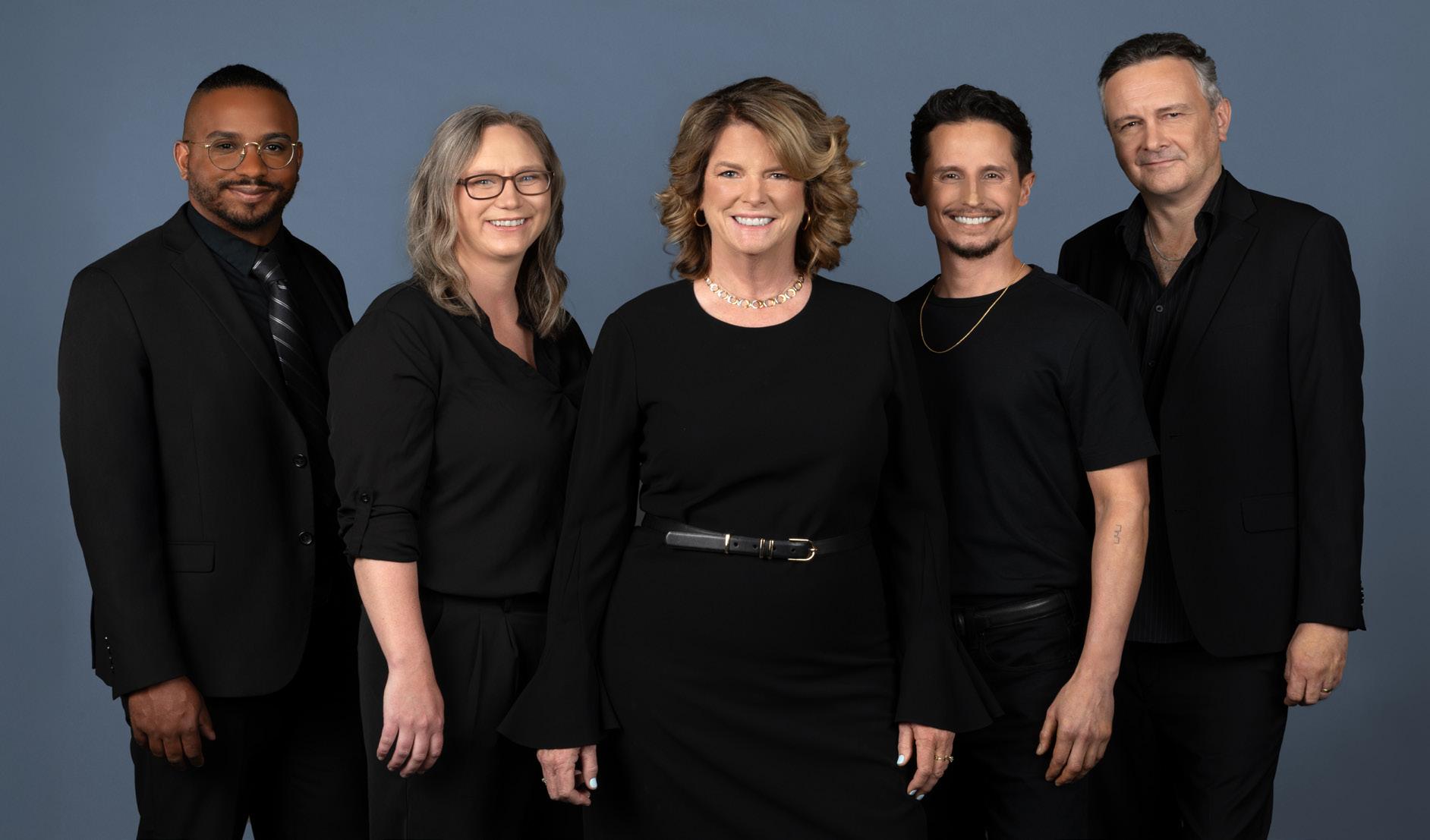
Greg Prieto, PhD
Maren Mossman, PhD
Edward Montague
Kai Hopkinson-Ramsammy
Pedro Rios ’95
Janet Chao ’14
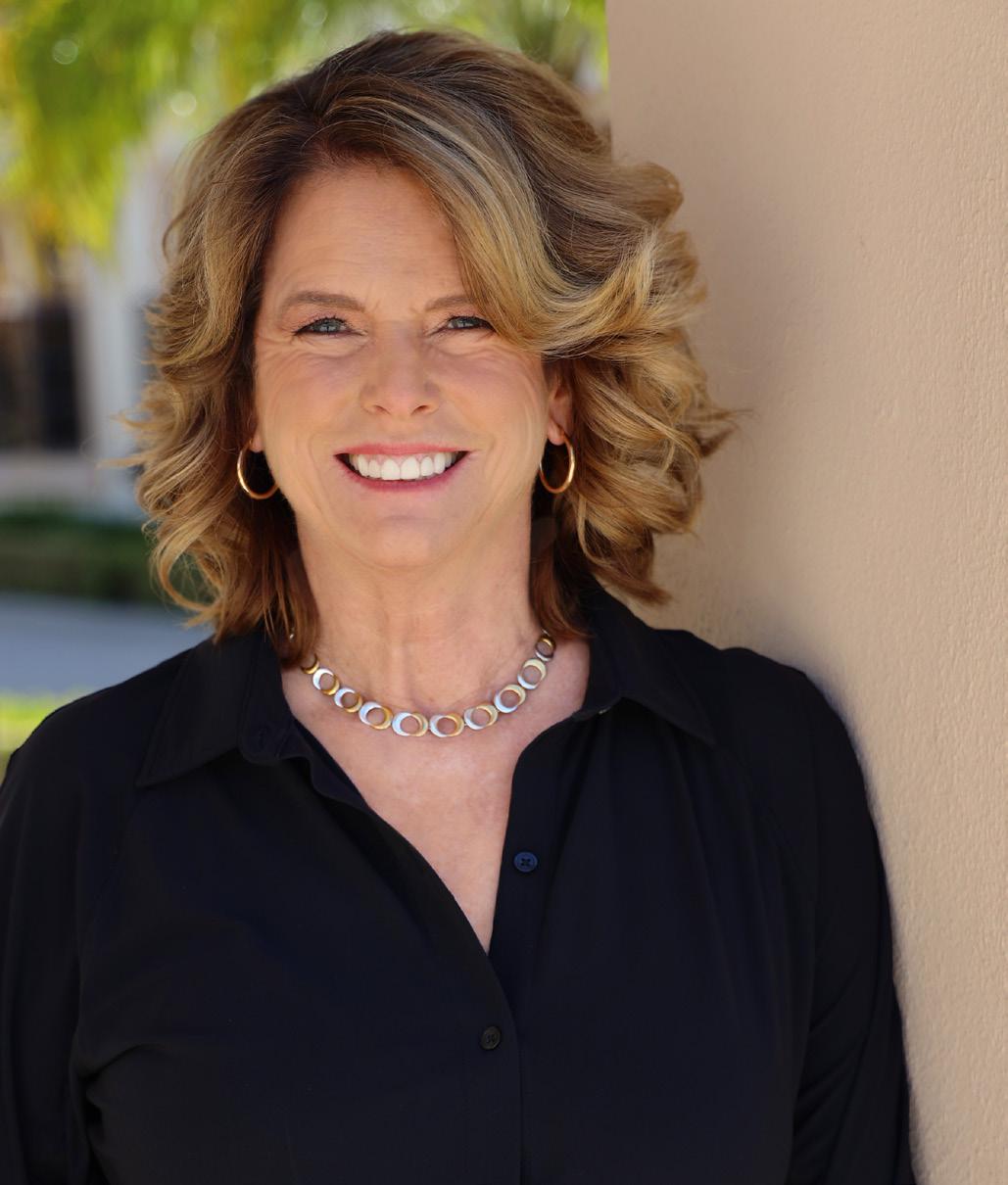
This past year has brought unique challenges to the College of Arts and Sciences and to higher education more broadly. Despite the hurdles, our community of students, faculty, staff, alumni and friends continues to thrive. These challenges have prompted meaningful conversations about how essential a liberal arts education is for preparing thoughtful, ethical and engaged citizens. We are delighted that our shared dedication to this mission has led to the largest incoming class we’ve ever welcomed. At a time when the liberal arts face increasing scrutiny, we are proud of our steadfast commitment to this educational model.
The College of Arts and Sciences remains deeply engaged in work that not only advances academic excellence but also reflects a responsibility to our community and the world. In this issue, you’ll see how that sense of purpose comes to life through groundbreaking research conducted in collaboration with students.
We continue to build a faculty rooted in the full breadth of the liberal arts and sciences. Within the past year, we welcomed 20 faculty members with expertise in subjects such as English, history, French, neuroscience, physics and theatre. As part of the university’s commitment to academic excellence, the college works to recruit teacher-scholars who contribute through both exceptional teaching and meaningful scholarship.
I’m also pleased to share that USD, in partnership with the College of Arts and Sciences and the Humanities Center, hosted the KPBS San Diego Book Festival on campus this summer. The event featured award-winning authors — including our own — alongside live entertainment and independent booksellers. It was a celebration of literacy and the written word. Next, we’ll host the fifth annual Arts and Culture Festival on Oct. 25, with live theatrical and musical performances from our most creative students and faculty.
In this third edition of Arts & Sciences magazine, you’ll read how our faculty are redefining research “from soil to sound,” how a new generation of students is preparing for careers in health, science and justice, and how our community is boldly reaffirming the power of the liberal arts in a time of rapid change. You’ll also find spotlights on standout students and alumni, innovative faculty projects — from quantum physics to the sociology of dying — and glimpses of our future through new programs, a new neuroscience department and plans for a new Shiley STEM initiative.
Your belief in and support of our mission are deeply appreciated. Together, we are ensuring that the values at the heart of the liberal arts remain strong and relevant.

Noelle Norton, PhD Dean, College of Arts and Sciences
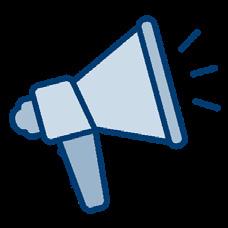
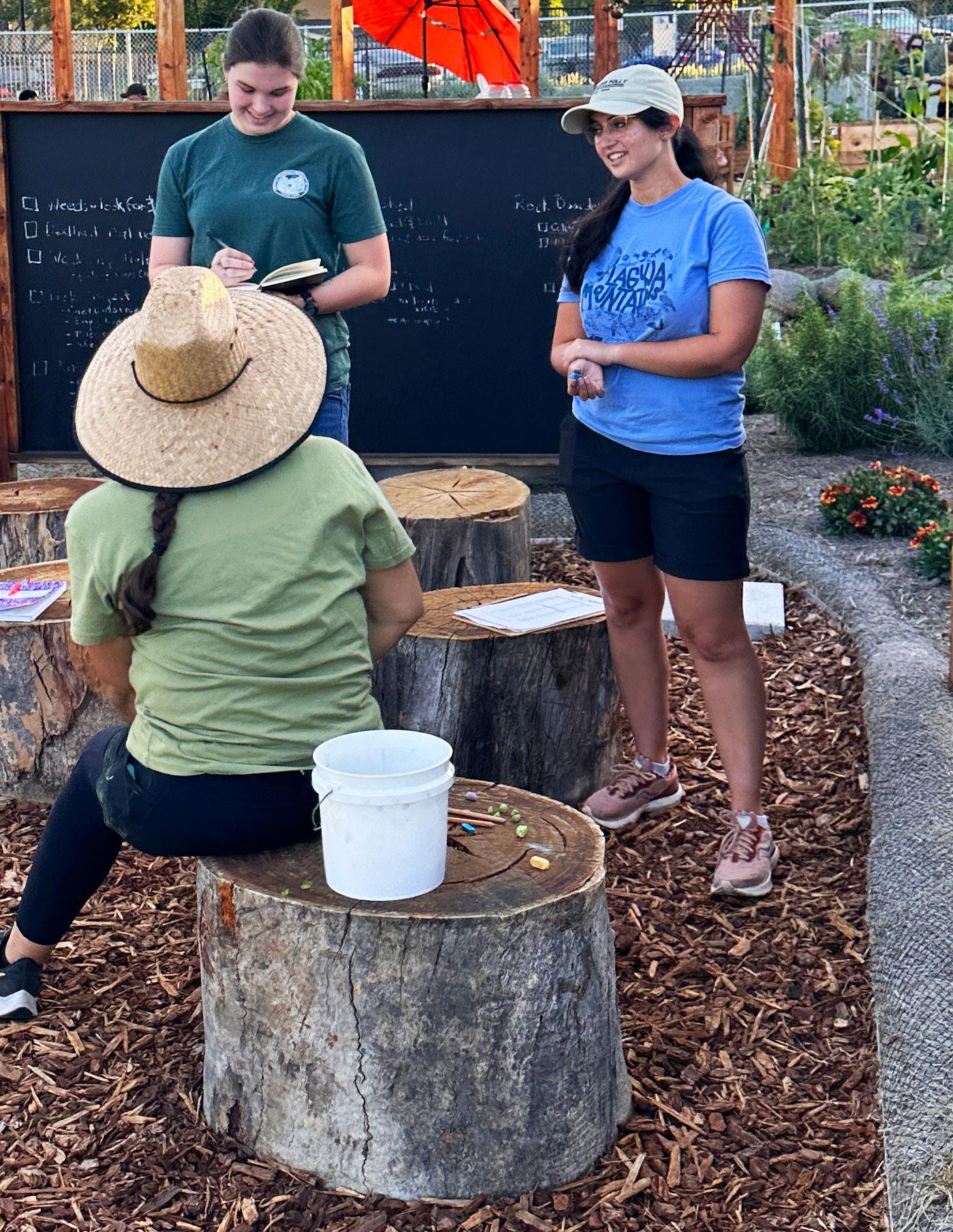
By David Syring
Looking over Linda Vista Park, Sofia Gonzales and her mom, Diana Gonzales, chatted quietly on the balcony of their new apartment. “I wonder why there’s so much trash in that area of the park right there,” said 7-yearold Sofia. It was their first morning in the apartment, and the family had struggled for years to get themselves settled in the neighborhood. “Mom,” Sofia said, “Do you know what would be a great idea? What if there was a community garden in that spot?”
Little did Sofia and Diana know that within a few years, Bayside Community Center, led by Executive Director Kim Heinle ’11 (MA in international relations) and Associate Director of the Bayside Environmental Learning Center Amy Zink, would coordinate a community process to create a garden there. Alongside the San Diego Parks Foundation and countless community partners, residents, donors, elected officials, volunteers and the Linda Vista Grows Steering Committee, Bayside pulled together a team to transform the disused corner of the park into the exact dream that Sofia envisioned.

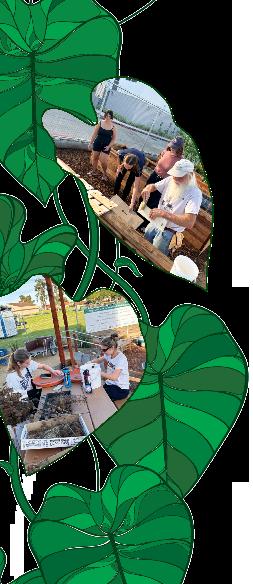
The Linda Vista Community Garden became the first garden built into an existing San Diego city park. San Diego Mayor Todd Gloria ’00 (BA in history and political science) attended the opening, community foundations provided financial support and Local 619 Carpenters Union members volunteered their skills to build garden beds. The garden became a focal point for a community of new and experienced gardeners vitalizing their neighborhood.
“Community members are at the core of what Bayside is and what makes this Linda Vista community so vibrant,” Heinle says. “We strive to make sure their voice and wellbeing are at the forefront of any project, just like the one we did last fall with Dr. Syring.”
In Fall 2024, students enrolled in Anthropology 460: Ethnographic Field Methods, with Department of Anthropology Chair and Professor David Syring, PhD, worked in partnership with the Bayside Community Center to produce storytelling videos with the community’s gardeners. The collaboration offered students handson learning through a partnership with a key University of San Diego communityengagement collaborator.
“What’s unique about Bayside is the longevity of our partnership and our commitment to it,” USD Community Engagement Director John Loggins says. “It’s been a successful partnership because we cocreate together, and it’s relationship-based. That partnership epitomizes how we want to show up.”
Loggins says the partnership between Bayside and USD has been developing for more than a decade, with many successes, some failures and, most importantly, a constant process of learning.
Students volunteered several times while listening to the stories of the garden and then arranged to work in triads made up of two USD students with one gardener. The students and gardeners collaborated to create multimedia versions of their stories.
“This is our first time as an anthropology department really working with the Linda Vista [Bayside] Community Center and the
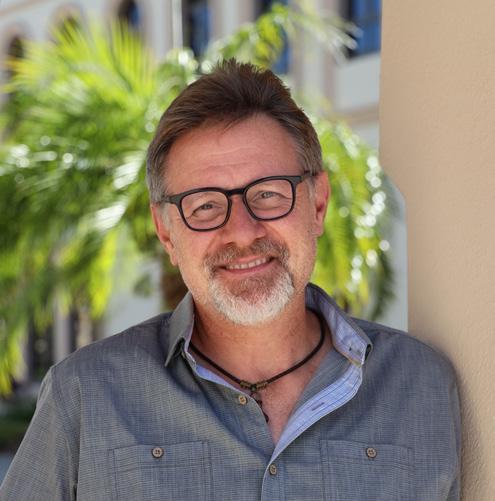
“Putting community members’ voices at the center of the research process changes everything. It creates pathways of agency for the community and helps student researchers learn to listen deeply.”
— David Syring, PhD
garden,” anthropology major Aaron Buchanan says. “For me, it’s a start to a relationship. It’s a start to a project and to any number of things that it could be in the future.”
The process, modeled after community workshops developed by StoryCenter, centers the storyteller’s voice alongside images, videos and music to convey experiences in vivid form.
Teams created seven videos, each under five minutes in length. The stories explore themes including creating community, the joy of working with soil and plants, immigration and the challenges of finding meaning in a home during difficult times.
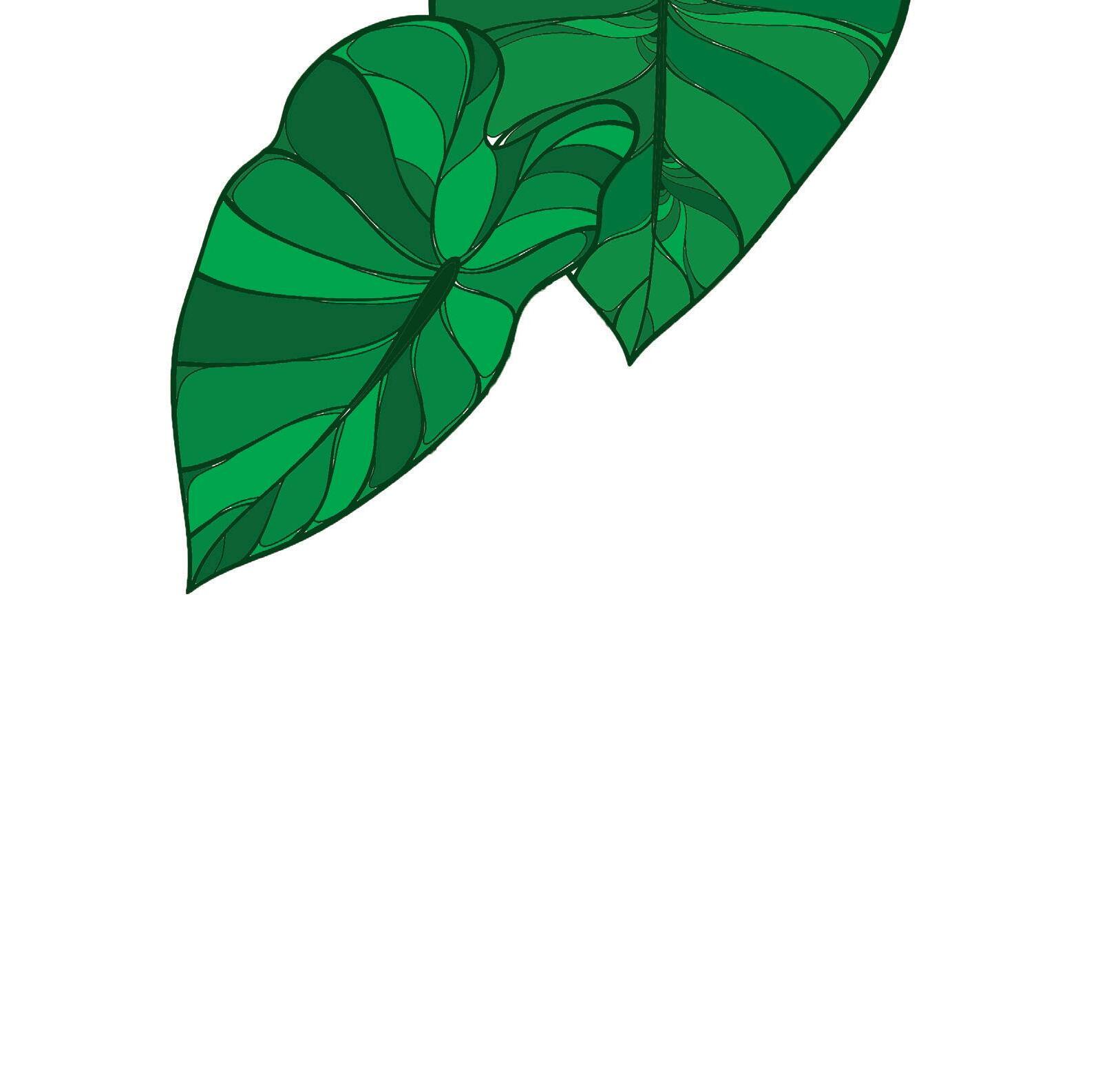
“I’ve been using this approach in my classes and in my own research for more than 10 years,” Syring says. “Putting community members’ voices at the center of the research process changes everything. It creates pathways of agency for the community and helps student researchers learn to listen deeply.”
Syring, who became USD’s Department of Anthropology Chair in August 2024, created the Participatory Ethnography Lab and Studio at USD (PELS@USD) to train students in digital and participatory methods for community-based research. PELS@USD projects incorporate active learning strategies with new and existing courses, leading to student-led public ethnography projects with community collaboration. Partners participate in all aspects of designing and conducting research, as well as creating media, to serve community stakeholders.
In the student videos, community members like Red Killian shared experiences from 80 years of gardening, art and community making. Recordings of Killian playing guitar became the soundtrack for several stories. Christina Martinez shared how she’s carried forward the legacies of seed saving and
growing plants from the farm where she grew up in Oaxaca. Robert Hibdon spoke of his development as a gardener, beginning with learning from his grandfather, a Cherokee in Oklahoma who kept a garden and taught lessons about rotating crops for soil health. Zink shared about the development of the Linda Vista Community Garden itself — a labor of skilled leadership and community building.
Students reflected on the unique opportunity that community-engaged learning provides. Caroline McElhannon, double major in anthropology and biology, says, “This project was really cool, because you don’t always get to go into the communities where you go to school and implement all the things you’ve been learning in your classes to get a tangible result.”
“This project helped me learn more about San Diego on a more intimate level,” anthropology major Oz Fox says. “I learned that San Diego is a great big jigsaw puzzle of people from all different walks of life. And there is value in that diversity of experiences.”
The course wrapped up with an end-of-semester celebration at Bayside Community Center. The storytellers and their families hosted the students for a premiere of the videos, which Bayside plans to feature at upcoming events.

A special thanks to USD Digital and Media Specialist Scott Lundergan who provided technical and editing training for the student projects. watch now: bit.ly/linda-vista-garden-stories
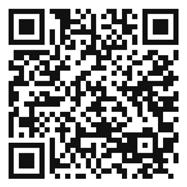

By Gabriela Ortiz Flores
Could you work with people who deeply harmed you if it benefited the greater good?
The faculty members and students of the Tragedy of Democracy and the Politics of Compromise — a crossdisciplinary pop-up course — grappled with this question as they worked to put together a “plecture” for the University of San Diego’s 2024 Pearson-Chambers Lecture Series last fall. The plecture — a play and a lecture — is the brainchild of Associate Professor of Political Science and International Relations Tim McCarty, PhD.
Last summer, McCarty approached the USD Humanities Center and Department of Theatre with an idea to collaborate on a pop-up course focused on Philoctetes — a play by the ancient Greek dramatist Sophocles. The final project of the course would consist of a performance of key scenes from the play embedded within a lecture.
Assistant Professor of Theatre Jersten Seraile, MFA, joined forces with
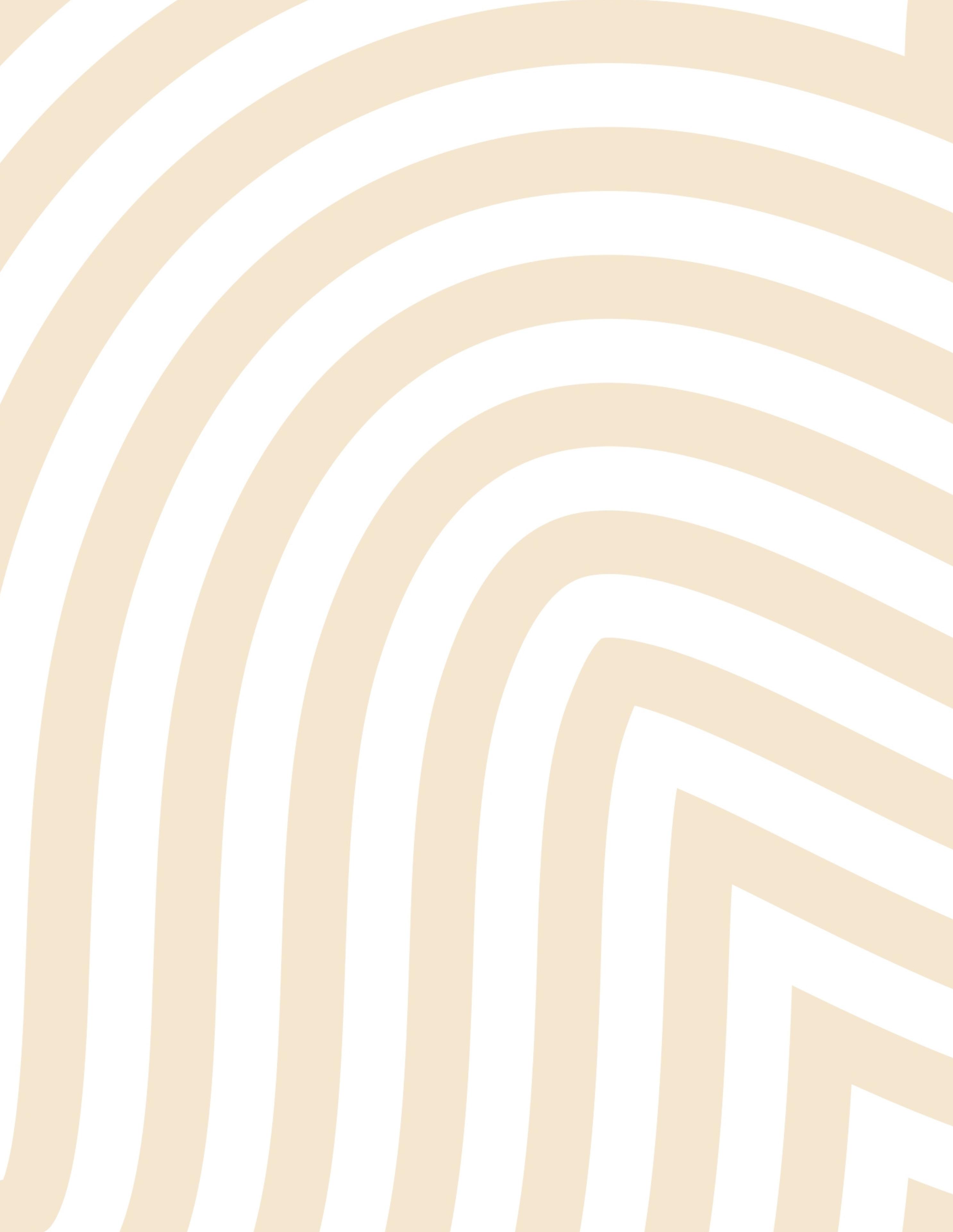
McCarty to co-instruct the sixweek course.
“We created a real ensemble. Even if folks weren’t acting in the scenes, everyone contributed so much of their time and energy to this,” explains Seraile. McCarty and Seraile functioned more like facilitators than instructors throughout the process.
Students like Lily Anderson ’25 (BA in communication) enjoyed the collaborative structure of the course. “We just kind of figured it out week by week and pieced it all together. It was fun being a part of this, not only as a student, but also in helping direct the class as well,” says Anderson.
While the development process of the performance empowered students, the meaningful text impacted them the most. Philoctetes tells the story of a Greek archer who is abandoned by his countrymen due to a painful and unhealed snake bite. Cut off on an island, he struggles to survive alone for 10 years. The
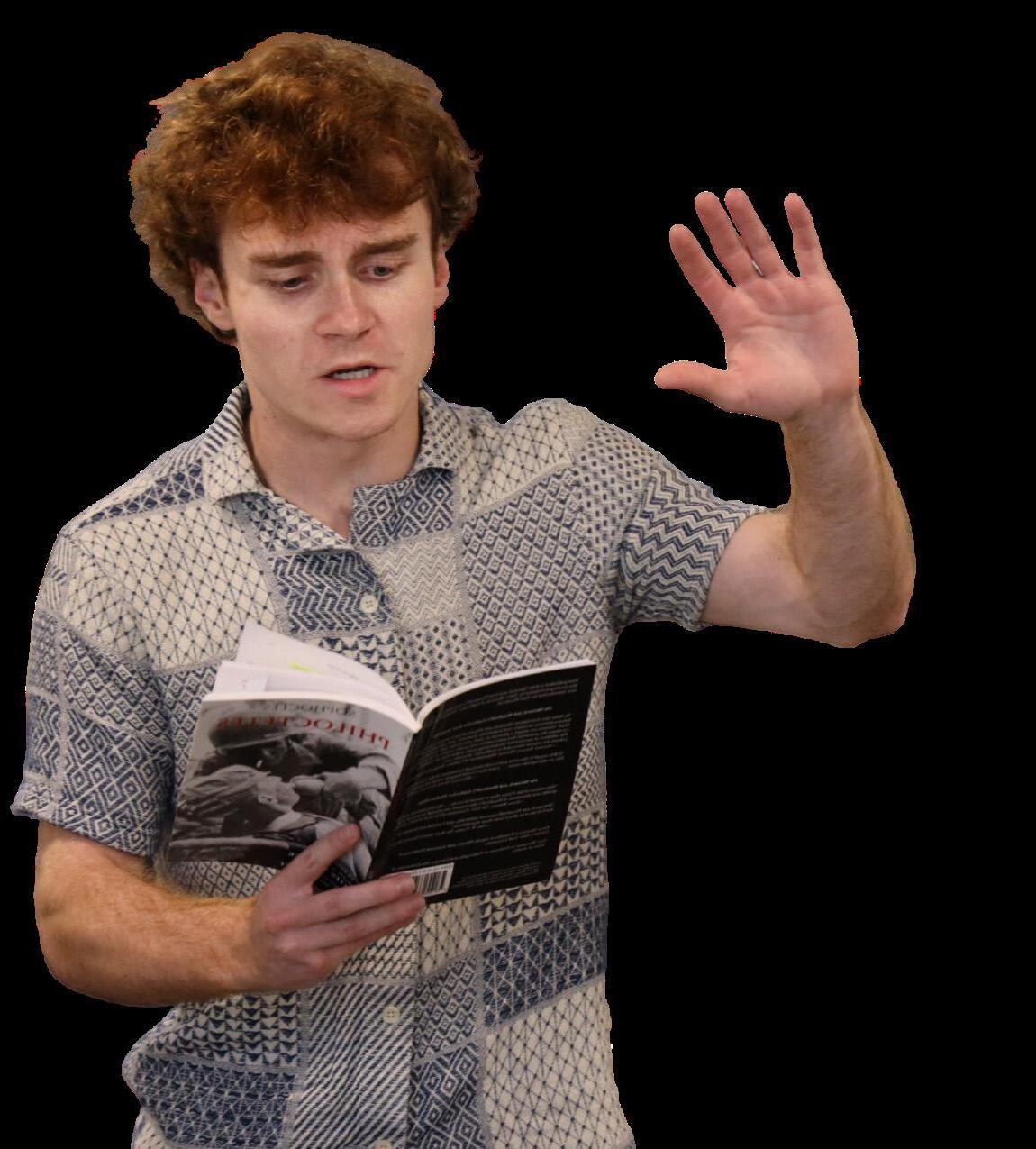
Philoctetes when they realize they need him to secure a victory against Trojans. “How do you
someone who has been wronged so deeply and persuade them to rejoin
the political community that has wronged them?” asks McCarty. “I think that the way the play depicts that is a really thought-provoking kind of approach to this sort of question.”
The Greeks try a number of different strategies to get Philoctetes to go with them, but to no avail. The hopelessness of the situation felt uncomfortably familiar to many of the students, faculty members and attendees of the plecture. “I think certain people are feeling very tragic about democracy right now,” explains Anderson.
“Engaging with a play like this it encourages us to come together in shared vulnerability, come together in ways that make us human.”
— Jersten Seraile, MFA
It is this discomfort that Seraile and McCarty hoped would spark thought and dialogue for their class and the attendees of the plecture. “Why do people who have been harmed by American democracy continue to show up at the polls? Continue to keep fighting for a more just society? Why don’t they just give up?” asks McCarty.
Philoctetes does end up rejoining the Greeks, but it is at the behest of his good friend, the god Heracles, who magically appears when all hope seems
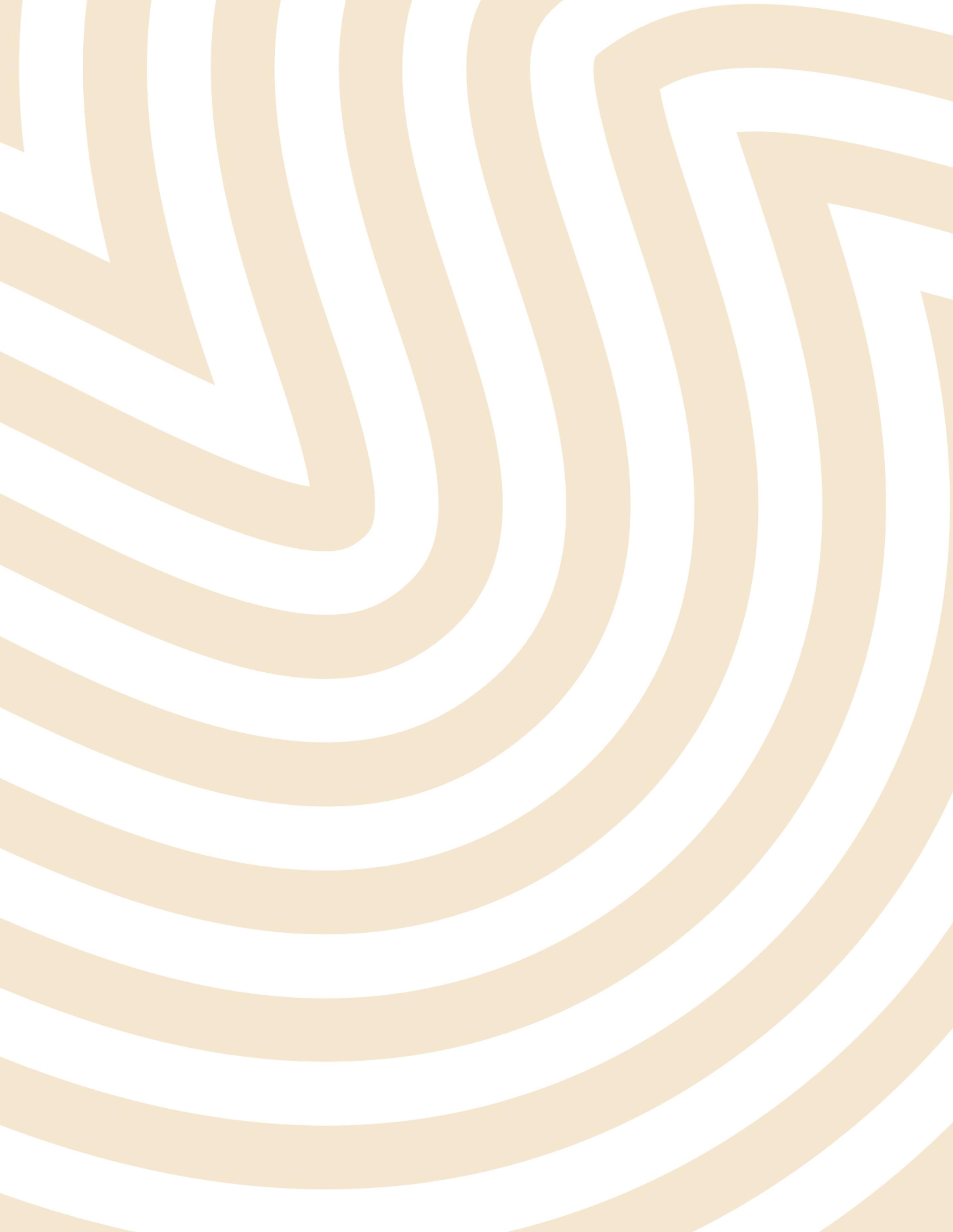
lost. Students are often conflicted by what appears to be an easy resolution, but McCarty and Seraile believe the ending is revelatory and offers insight on navigating our own political strife.
“It suggests that it might take miracles to reconcile our political problems. The human-scale political strategies tried by [the Greeks] don’t work. But if there’s anything at human scale that the play is suggesting can work, it’s friendship,” explains McCarty.
Friendship, however, is not the only theme the plecture explores. “Engaging with a play like this encourages us to come together in shared vulnerability, come together in ways that make us human,” Seraile emphasizes. “We don’t have to face despair alone. We don’t have to be afraid alone.”
That message of community comes not just from the script, but also from the subsequent dialogue inspired by the performance and lecture. “Having conversation with people that agree and disagree helps with building hope. It helps with building community,” says Seraile.
This unique plecture reinforces the importance of collaboration across the humanities. “I think it is really rad that we were able to take two departments together and put the brains of both fields towards a piece,” shares Joshua Kelly, a theatre major and one of the students in the course. “That kind of cross-disciplinary collaboration allows the more exciting work to be produced.”
the key to a healthy democracy?
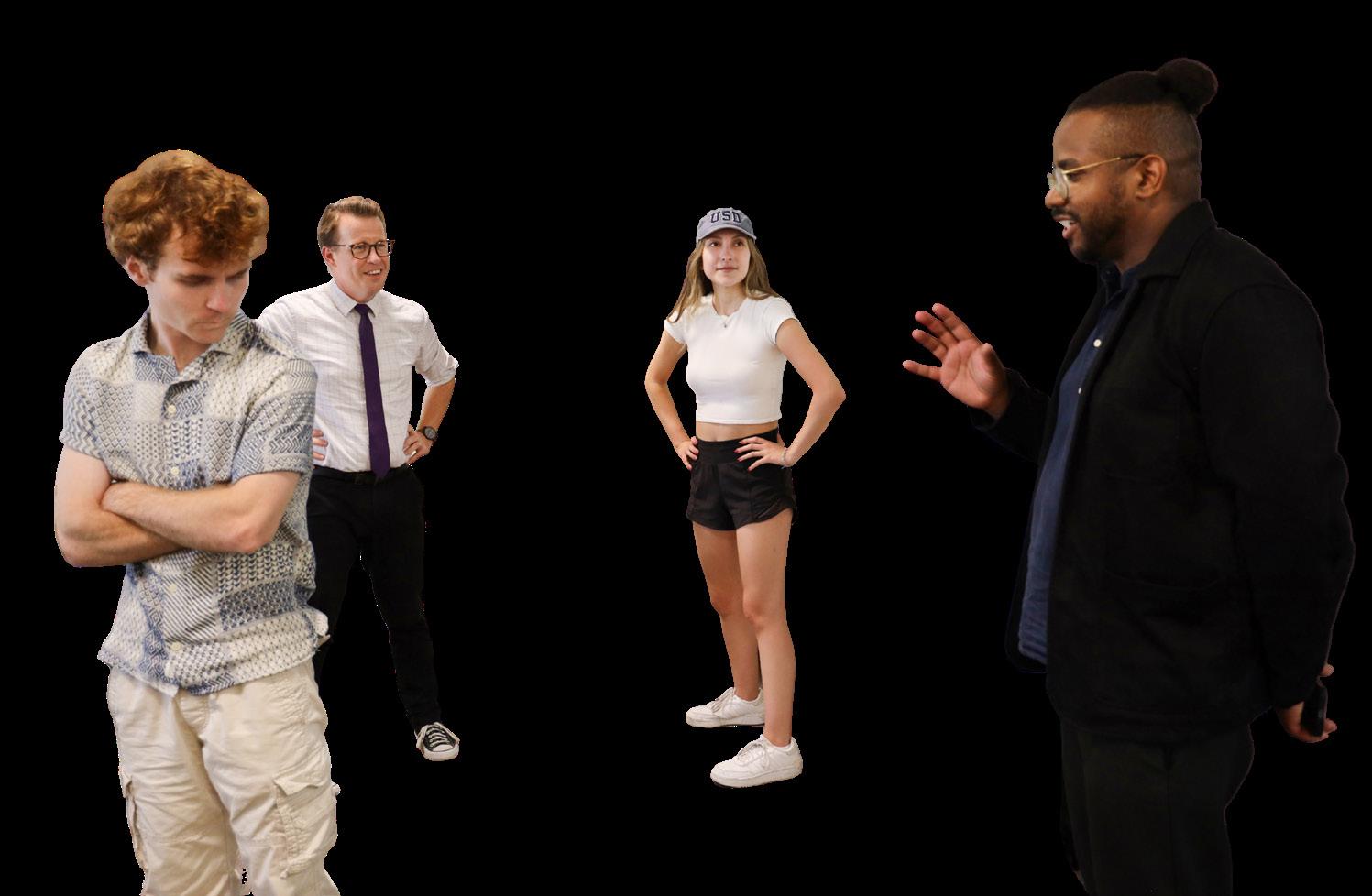
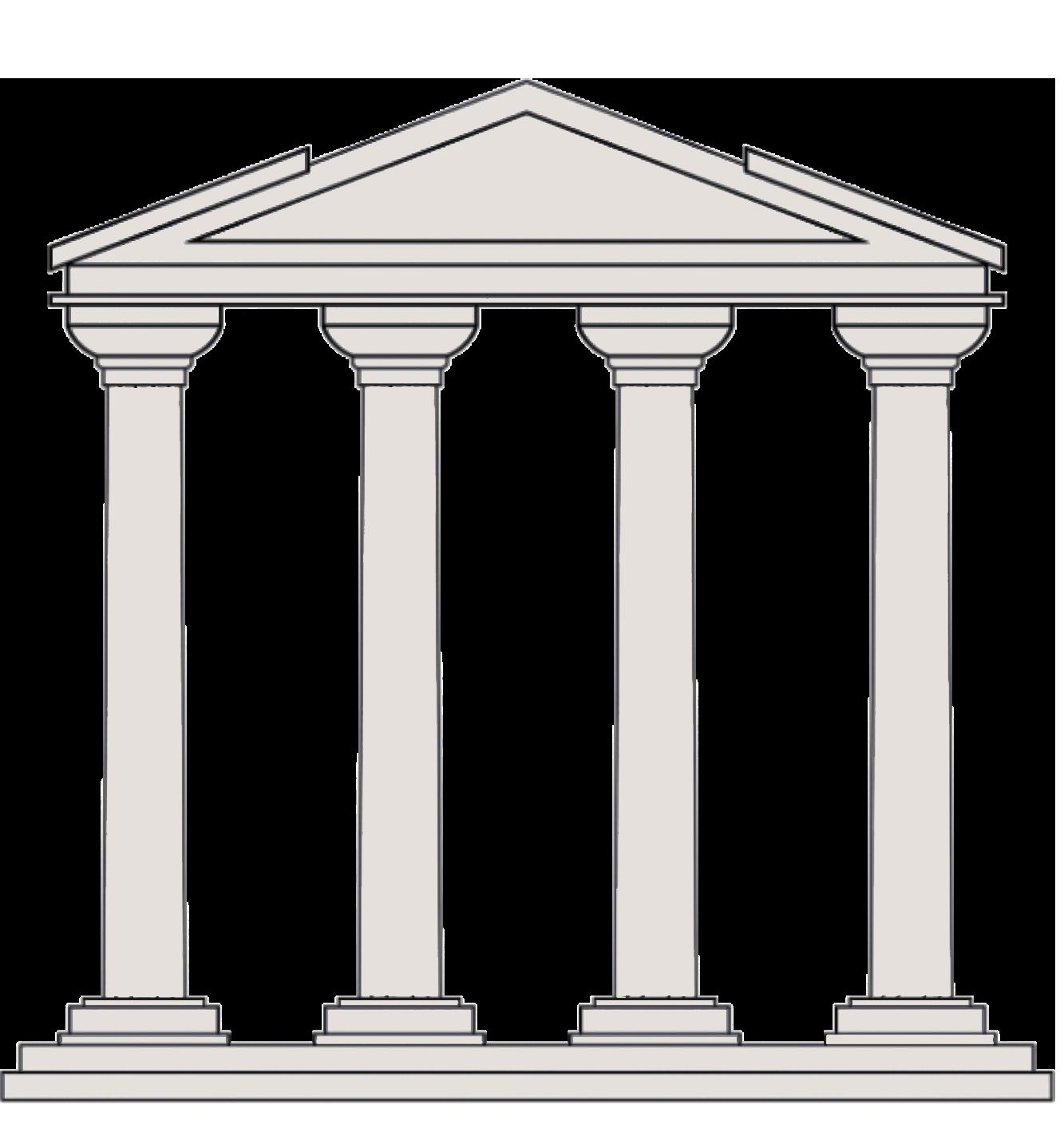


By Lily Anderson
Most new college students grapple with the same anxiety-inducing concern — whether they’ll be able to make friends once they arrive on campus. Honors students at the University of San Diego, however, do not. The Honors Program at USD provides students with a built-in community straight away, including Honors Program roommates, smaller classes with other Honors Program students and support from faculty members devoted to the academic needs of honors students. Outside the classroom, honors students are supported by advisors and a new Honors Program Director.
Professor of Communication Jonathan Bowman, PhD, was appointed as the new director of the Honors Program in the fall of 2024. For the past 18 years, Bowman has been an integral member of the USD community,
serving as a professor, associate dean and mentor to students through his work directing honors theses. As the new director, Bowman continues to put the students first. That has been his largest calling throughout his professional life — his students’ success is also his success.
“My personal mission statement is ‘to help students grow and mature in order to impact their world,’” Bowman states. “Everything that I have undertaken as a professor, a researcher and an author is focused on directly or indirectly accomplishing those goals over the past decades of my academic career. I feel really fortunate to work at a university where my own personal goals for my life so directly match the mission and raison d’être of the institution.”
A nationally recognized researcher in human behavior, Bowman uses his communication studies expertise in supporting and mentoring students, one of his favorite aspects of the job. With his friendly personality and even friendlier dog, Nala, who frequently visits campus, Bowman creates a welcoming environment for all students to discover what matters to them.
96% of honors students participate in campus clubs and organizations
“I really want to help students to think outside themselves, considering their own values in order to make choices that increase justice in the world,” says Bowman.
It’s no surprise that students within the Honors Program build strong friendships with their peers. Living together in the Honors Living Learning Community provides extra support. Furthermore, the 15:1 studentto-faculty ratio in honors classes allows students to build strong relationships with their professors. This ability to connect has made an immense impact on Thomas Fuller, a second-year student majoring in marketing and minoring in both film studies and public relations. “When I thinkof the USD Honors Program, I think of fulfillment,” he states. “The honors courses are challenging, but you’re with people who are going to help you throughout your time here at USD. All of the advisors are amazing, the
Honors Program with challenging her to expand her view beyond the classroom and San Diego.
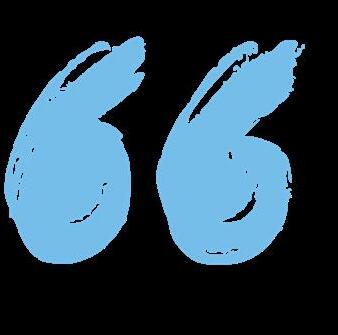
“My personal mission statement is ‘to help students grow and mature in order to impact their world.’”
Jonathan
Bowman, PhD
Emilie McClellan ’25, a recent graduate who majored in international relations, credits the
“The Honors Program has been a way for me to interact with professors, interact with different intersections of studies and academics in ways that I probably wouldn’t have gotten to if I had just taken a traditional route of education,” McClellan reflects. Building on this sense of connection and support, Bowman envisions several new opportunities for the program moving forward. He hopes to grow the Honors PreOrientation Retreat program, to increase engagement with social teachings, along with developing international programs specifically for honors students so they can learn in varied environments.
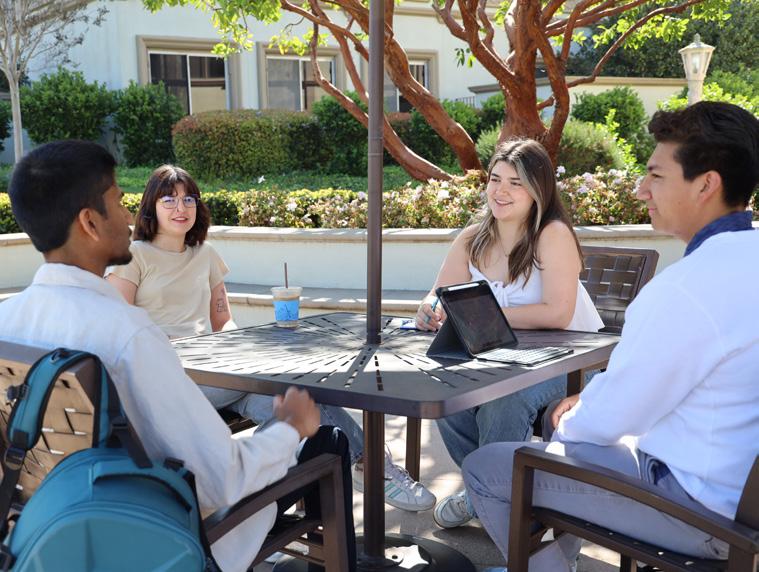
Under Bowman’s leadership, the program is taking an even stronger student-first approach. As a graduate of an honors program himself, he understands firsthand the importance and impact of the tools provided to students.
“The program is driven by the values of the institution, including the desire to create community and to foster engagement and to facilitate the growth of the mind,” Bowman explains. “I can honestly look at each graduating student and see the ways that they have developed and grown as part of this intentionality.”
Grounded in curiosity and community, the Honors Program at USD is not just about academic achievement — it’s about finding your people and perhaps even your purpose. Bowman looks forward to the Honors Program continuing to encourage students to explore big questions and discover meaningful answers along the way.

85% volunteer during their time at USD 81% graduate with distinction 80% participate in a study abroad program staff is amazing and my classmates are amazing.”
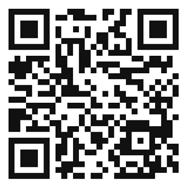

By Lily Anderson
Embarking on a pre-health track is a daunting task for any university student — it can be complicated, difficult and overwhelming. But for University of San Diego students passionate about health and medicine, the College of Arts and Sciences offers a Pre-Health Advising program that eases those concerns by combining academic preparation with individualized support.
At the heart of the program, you will find Cassandra Gomez, MPH, the director of Pre-Health Advising at USD. With an educational background in public health and a commitment to student success, Gomez carefully guides Toreros through every step of their pre-health journey. From recommending courses to helping students craft personal statements, she ensures students receive both academic and personal support.
The opportunities for success through PreHealth Advising are boundless. While not a major or minor, the pre-health track equips students with the knowledge needed to pursue programs in medicine, dentistry, nursing, public health and more.
“It’s important for students to know all their options within health careers and to have an open mind,”
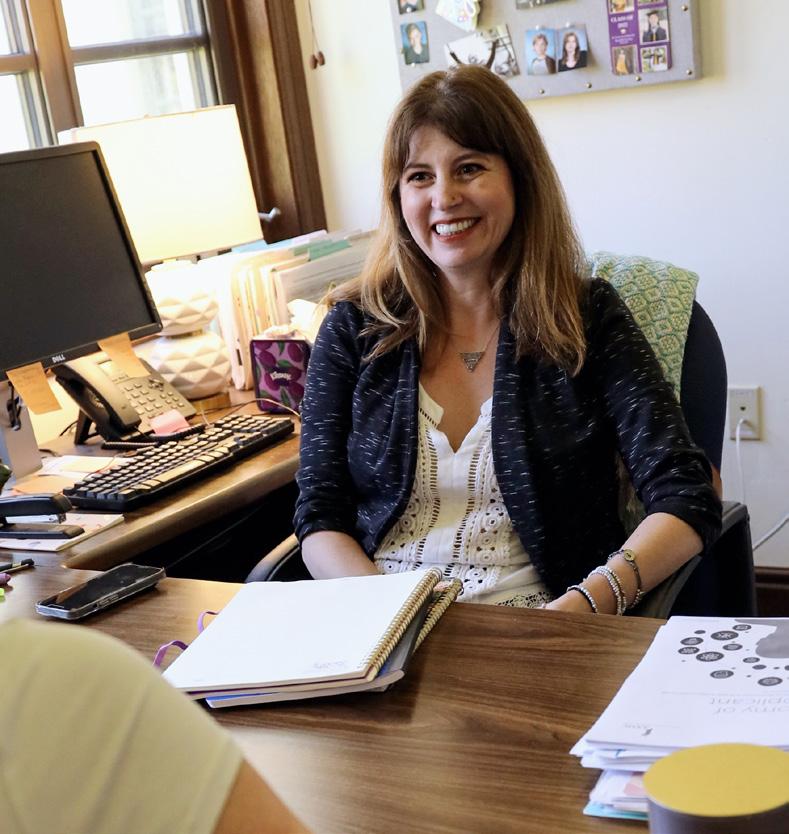
Gomez explains. “Additionally, creating a plan for the future in terms of courses, activities to pursue and an application timeline is an important part of Pre-Health Advising. It is often said that the road to medical school is a marathon, not a sprint. It takes time, a plan and the ability to be flexible.”
“I think it is important for students to know all their options within health careers and to have an open mind.”
— Cassandra Gomez, MPH
Gomez plays an integral role in mentoring students as they build a roadmap to achieve their goals. Supporting students is deeply meaningful for her and serves as a driving force behind her work.
Gomez oversees one of USD’s available internships for pre-health students — the Health Equities Fellows Program. This program teaches students about health inequities in the San Diego region, offering a lens to better understand the state of health in the country.
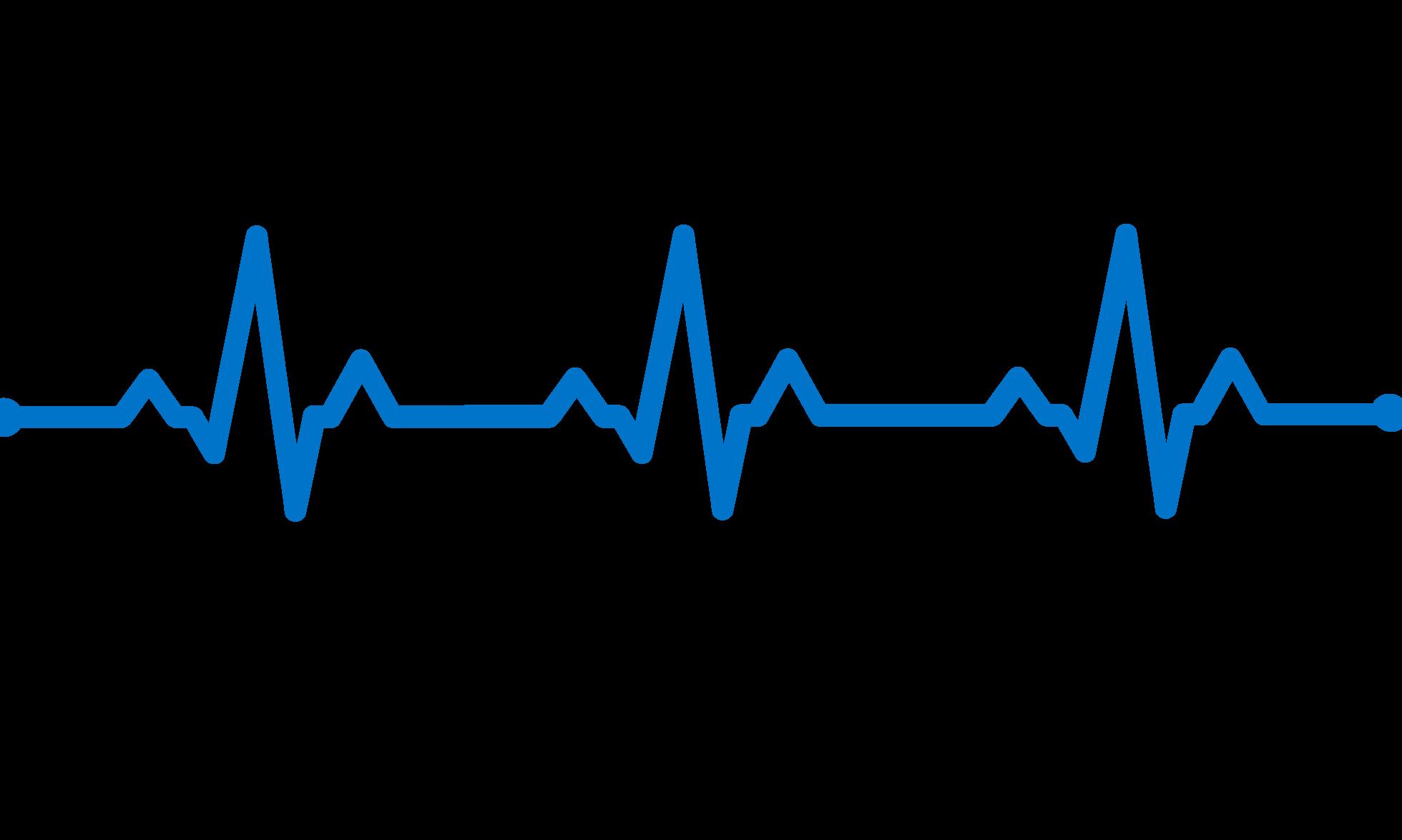
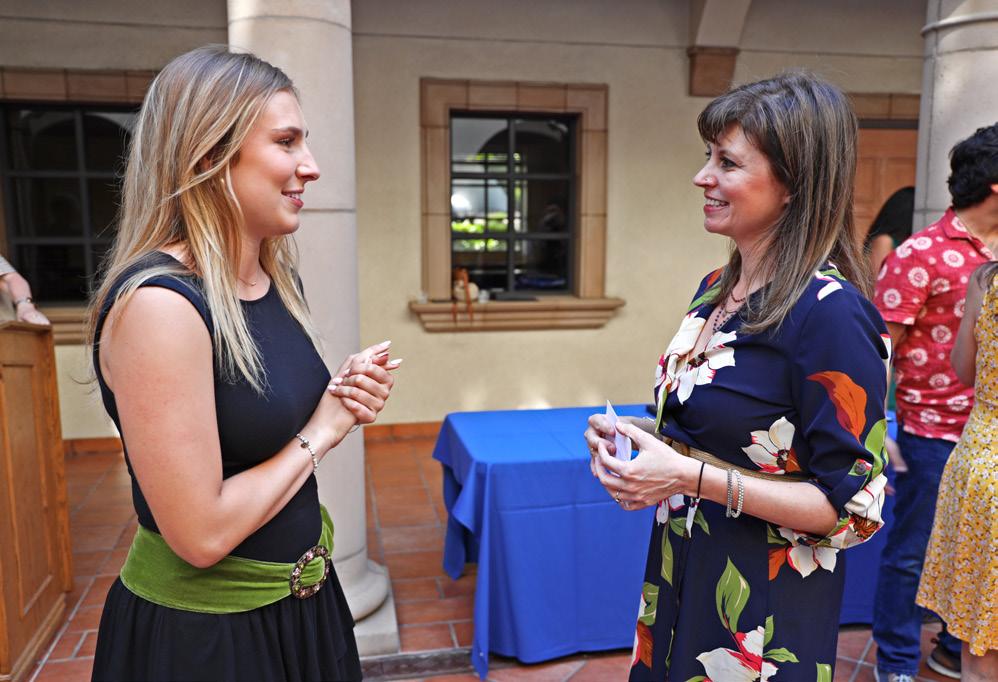
and a USD student at the Reception for Pre-Health Graduates in 2025.
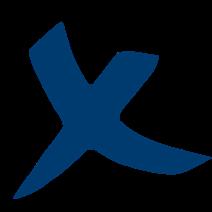
You must apply to medical school straight out of college.


You must be a science major to apply for medical school or stand out to admissions committees.


You have to apply on the first day applications open to be competitive.

For students interested in gaining clinical experience, a clinical internship program at Scripps Mercy Hospital offers a shadowing experience alongside physicians, providing an immersive opportunity for aspiring medical practitioners.
Pre-Health Advising at USD works closely with campus partners such as the Career Development Center to prepare students for graduate school applications and interviews. It also offers peer mentorship through the Pre-Health Mentor Program, which pairs upperclassmen with first-year students in pre-health, creating a supportive network of guidance.
Whether in a lab, clinic or community health setting, USD’s pre-health students graduate with a well-rounded and fully developed perspective on healthcare. Pre-Health Advising emphasizes more than just science. Students also learn important life skills in terms of developing a strong work ethic and sense of community.
“I encourage students to stay on their path, meaning [they shouldn’t] get caught up in comparing themselves to others,” Gomez states. “Everyone’s path is different, and if you compare, you will despair. Diligence and perseverance are important, since it can be a long road. I am also a firm believer in pre-health students supporting each other and creating community instead of treating it as competition.”
Many medical schools are looking for students with work and/or life experience. Taking time between undergraduate and medical school to gain experience strengthens an application.
Major is not a factor in admissions. Students must do well in their science prerequisites, but don’t have to major in a science. It is more important that students choose a major that they will enjoy and succeed in.
Many students believe that in order to be competitive, you must apply on the first day. However, this type of thinking can result in a rushed, incomplete or flawed application, which will be rejected no matter how competitive the applicant is. It is better to take the extra time if needed to review, edit, receive feedback and polish your application before submitting.
Gomez stays in touch with former advisees long after they graduate and enjoys hearing about their successes in the medical world. “Recently, I got to catch up with alumnus Thomas Polveroni, who graduated in 2017 and attended medical school at the Mayo Clinic in Phoenix. He’s halfway through his diagnostic radiology training at Cedars-Sinai in Los Angeles and applying for an interventional radiology fellowship. He and his wife had a baby girl in September and plan to move back to San Diego to practice,” says Gomez. “I’m so happy for him.”
At USD, Pre-Health Advising empowers students to pursue their goals with clarity and confidence. Through expert mentorship, academic resources and real-world experiences, graduates are well-prepared for the demands of healthcare and the opportunities that lie ahead.

Thank you to USD communication major Riley Longo for editing the Pre-Health Advising at USD video. bit.ly/usd-pre-health watch now:
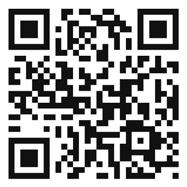
Why the Liberal Arts are Vital in an Uncertain Future
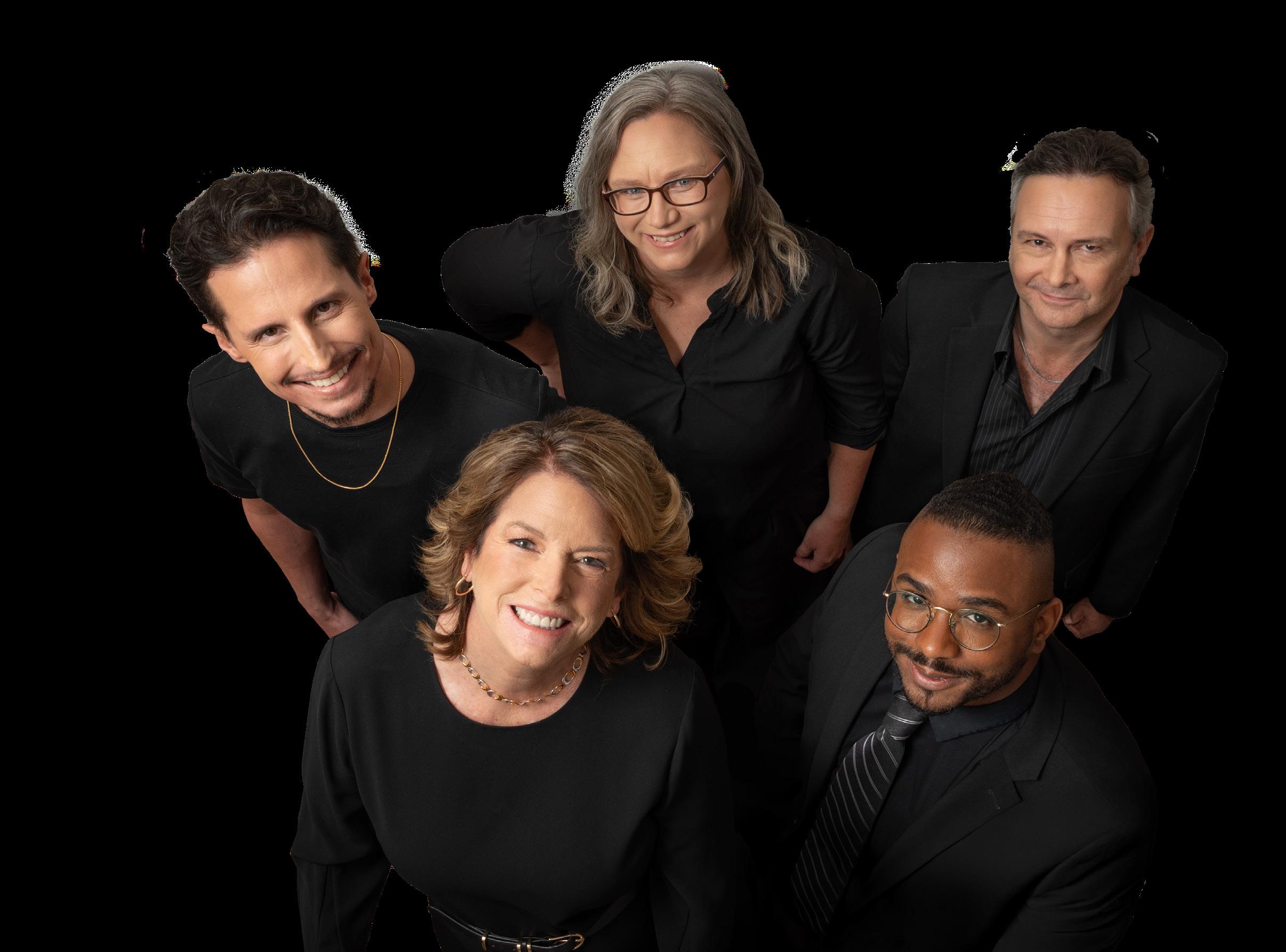

The overarching key here is breadth. Liberal education is not about avoiding specialization; it is about rooting knowledge in perspective, ethics and human understanding.
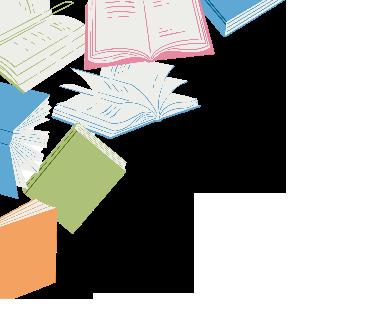
Universities have long adapted to scientific and technological revolutions, reshaping education to meet the demands of new economies. But the pressures reshaping higher education today extend beyond any single innovation. While artificial intelligence is accelerating changes in how information is produced and trusted, it is only one part of a broader cultural and political shift.
Across the country, the value of liberal education is under fire — from funding cuts and legislative attacks to growing skepticism about the relevance of the arts and humanities. Under economic strain, many families are narrowing their view of college to immediate return on investment. What’s at risk is not just a set of disciplines, but also the depth and breadth of human learning itself — laid to waste in the rush toward short-term gain and mechanized efficiency.
How do we prepare students to meet this paradigm shift? What kind of educational approach is best suited to navigate a world where long-standing professions — in fields as varied as business, law, medicine and the arts — are being reshaped by forces both technical and economic? In the College of Arts and Sciences at the University of San Diego, we believe the liberal arts model offers not only the most durable but also the most responsive path forward in this new educational era. It is also the most time-tested form of learning in human history — a tradition grounded in inquiry, ethics and human understanding.
It is true that institutions of higher education are undergoing a period of deep transition as they struggle to respond to structural change. Since 2012, enrollment in fields like art history, English, languages, history, philosophy and religious studies has dropped by 30%. With few exceptions, most disciplines in the arts and sciences are either flat or falling in number. USD reflects these national trends, despite our liberal arts
foundations and contemporary Catholic identity. Many universities in pursuit of enrollment and financial stability have chosen to cut or consolidate their liberal arts programs.
Back in 2010, scholars were already sounding the alarm about a growing crisis in higher education. In her book, Not for Profit, Martha Nussbaum, University of Chicago philosophy professor, described “a crisis of monumental proportions” as universities shifted toward for-profit and purely technical training — “a crisis that goes largely unnoticed, like a cancer.” She warned that, if left unaddressed, this crisis would lead nations to produce “generations of useless machines rather than complete citizens” — capable of empathy, debate and ethical discernment.
Some of the shifts toward computer science, engineering and business are fueled by assumptions about higher salaries and increased job offers. But these expectations are often overstated. If these promises are not carefully examined, they could lead higher education to abandon fields that foster meaning, problem-solving, creativity and long-term adaptability. Colleges and universities need to be cautious about cutting resources or programs for fields of study that will help graduates succeed. As a dean and a humanities center director, affirming the value of the liberal arts education has been central to our work for more than a decade. We have seen firsthand how liberal education changes lives.
Reports from the Georgetown Center on Education and the Workforce show considerable salary variation across majors: liberal arts graduates in the 75th percentile often out-earn engineers in the 25th. While early career earnings may differ, the liberal arts equip
“[Liberal arts are] the simple idea of a broad and well-rounded course of study in the humanities, social sciences, sciences and the arts. The overarching goal is to liberate the mind from ignorance and superstition.”
Provided by the Council of Colleges of Arts and Sciences
The College of Arts and Sciences at the University of San Diego offers more than 80 academic programs within the liberal arts hubs of arts, humanities, natural sciences and social sciences.
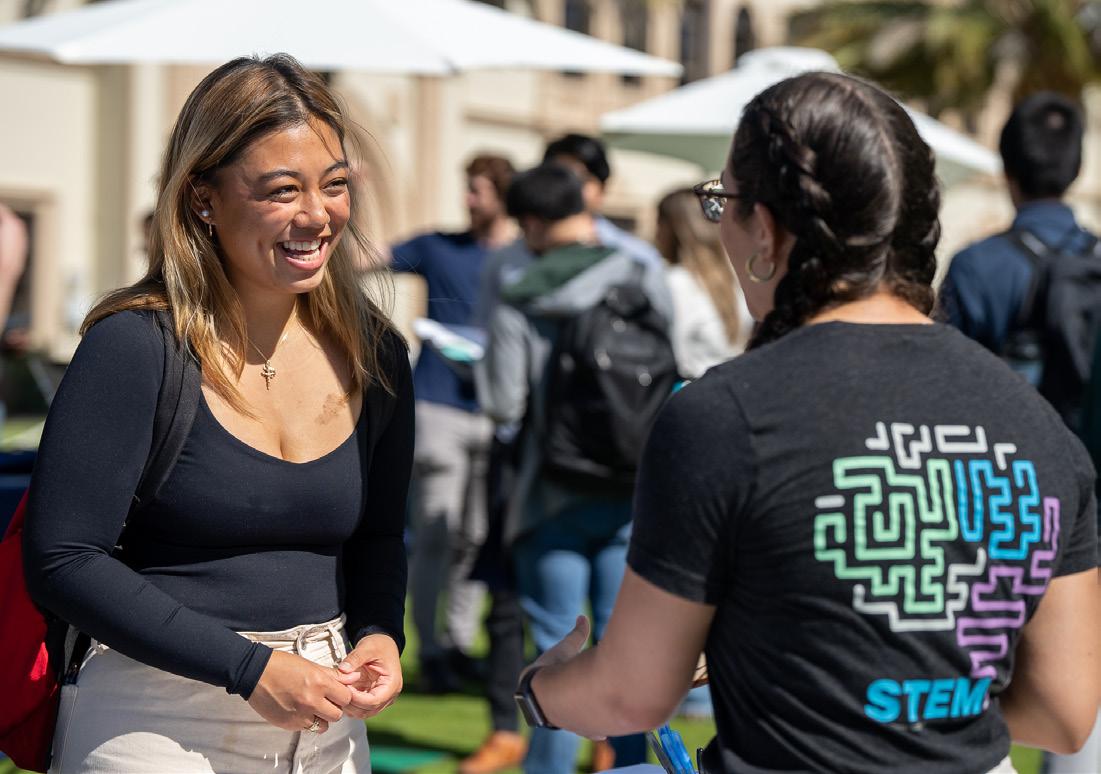
students with skills that grow in value over time. Just as important, they allow students to pursue fields where they excel, developing talents that are both personally meaningful and professionally versatile.
Ned Laff and Scott Carlson make a similar case in Hacking College: Why the Major Doesn’t Matter — and What Really Does (2025). Employers, they argue, are less concerned with a specific degree than with the job candidates’ ability to synthesize information, engage in the world and solve multifaceted problems. They maintain there is no “right major” for success and happiness. Our experience at USD bears this out. Students and alumni thrive not because of a checklist of technical skills, but because of our unfettered approach to learning, problem-solving and creating.
Education is not only about learning how to access information and transform it into knowledge. It’s about participating in an ongoing human conversation that builds our shared understanding — a conversation that has stretched across time and space for millennia. A firm grasp of the dialogues first held around the campfire and now unfolding in the digital realm helps us appreciate the value of humanity’s ability to find patterns and meaning in the world. Those who can organize, catalog and curate information — guided by specific and local cultural knowledge — will be especially valuable to their society, community, friends and family in a new era.
At USD, we resist the drift toward educational models that devalue the complexity of thought. Our goal is to avoid sleepwalking into the future by carelessly setting aside a proven foundation. In 2024, USD’s Board of Trustees boldly reaffirmed this vision
in a revised mission statement that declares: “We are a contemporary Catholic university, grounded in the liberal arts and anchored along an international border, advancing academic excellence to create a more inclusive, sustainable and hopeful world.”
Our alumni shine a light on this transformative mission. Nick Winfrey ’08, an international relations and economics major with a minor in Spanish, now leads Data Science and Measurement Strategy at the Walt Disney Company. His USD education, he says, prepared him to think critically and communicate persuasively about wicked problems (complex problems with a myriad of potential solutions) — skills he uses every day to translate abstract questions into technical and business solutions.
Karissa Valencia ’13 majored in English and communication at USD. She believes her liberal arts education helped shape her ideas as the first California Native American showrunner and creator of the Emmy-nominated Netflix show, Spirit Rangers She credits her degree with her ability to think broadly. “We studied media at a global level, which I think is what really inspired me as a storyteller to think outside the box and how it’s important to create culture and change culture,” Valencia says.
Jonny Kim ’12, a mathematics major and now a NASA astronaut, recently conducted research aboard the International Space Station. Within three hours of docking, he was asked to conduct experiments across fields in technology development, Earth science, biology and human research. Reflecting on his time as a College of Arts and Sciences student, Kim shared, “I learned how to communicate and how to
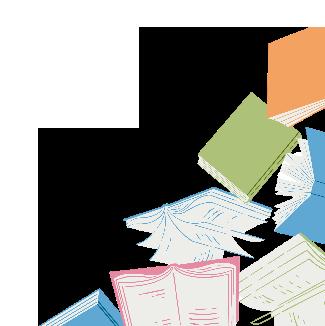
At USD, the arts are a space for dialogue, experimentation and expression across forms. From architecture to art history, music to theatre, the arts departments give students the chance to refine their craft and bring bold ideas to life. With guidance from dedicated faculty and the freedom to explore across disciplines, students are given the room to grow as artists, performers and thinkers.
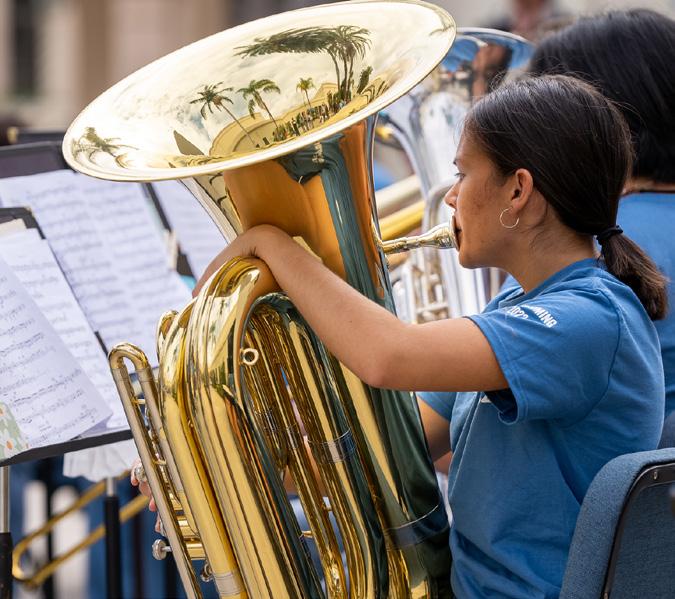
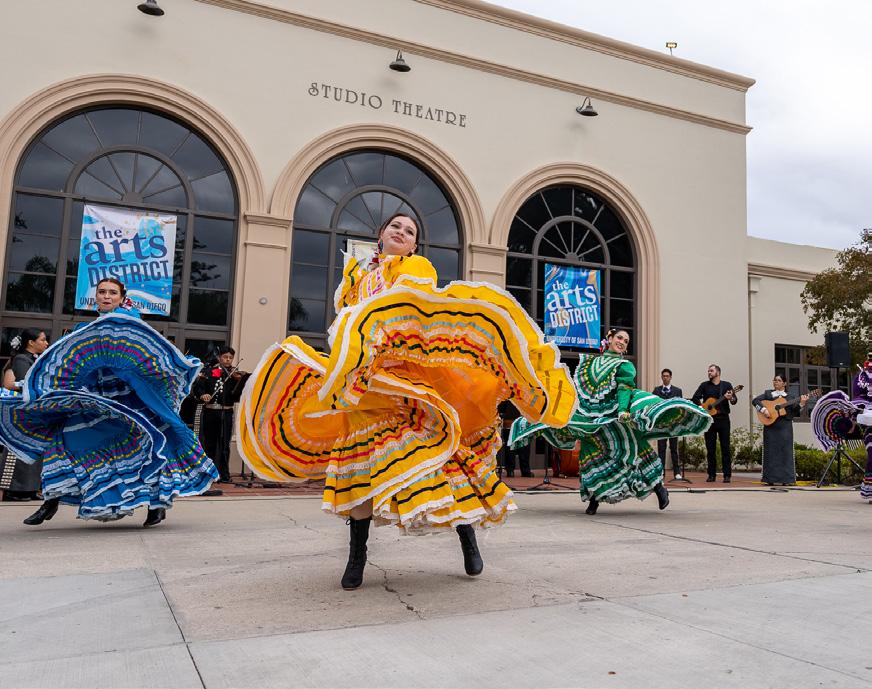
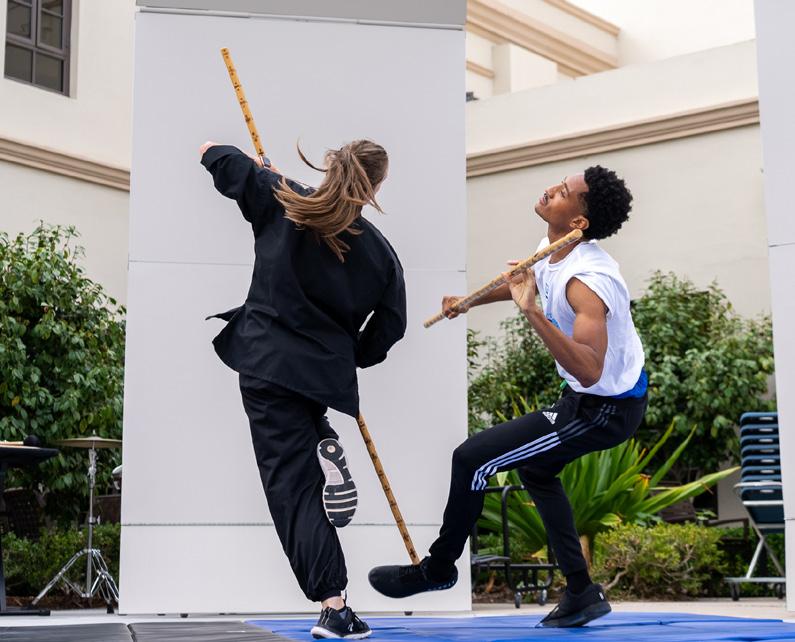
appreciate the scientific method, which can be applied to any problem in life.”
Perhaps the term “liberal arts” is its own hindrance. The phrase tends to confuse — and even antagonize — certain segments of the population. In the United States, the word “liberal” carries entrenched political connotations, while “arts” suggest painting, drama and literature — and certainly not scientific inquiry. The nature and scope of the liberal arts need definitional clarity.
Merriam-Webster’s Dictionary frames the liberal arts negatively as “studies … not in one of the technical fields,” with “technical fields” referring to areas of “practical knowledge.” This defines liberal education in contrast to professional, vocational or technical studies. Another approach is denotative, listing all subjects that fall under the umbrella of liberal arts. The Carnegie Foundation, for instance, categorizes disciplines as either in the “liberal arts” or in the realm of the “vocational/technical.” One further definition emphasizes that the liberal arts provide broad, general knowledge and develop intellectual capacities. The Council of Colleges of Arts and Sciences (CCAS) teaches this approach and offers the most succinct definition: “Liberal education is the simple idea of a broad and well-rounded course of study in the humanities, social sciences, sciences and the arts. The overarching goal is to liberate the mind from ignorance and superstition.”
“I learned how to communicate and how to appreciate the scientific method, which can be applied to any problem in life.”
— Dr. Jonny Kim ’12
The CCAS definition is especially helpful, as it moves from a neutral description of a liberal arts education to an evaluative one, highlighting its “liberating” purpose. This echoes a common theme in defenses of the liberal arts, which often invoke the etymology of “liberal” — from the Latin liberalis, meaning “of freedom” or “befitting a free person.”
The overarching key here is breadth. Liberal education is not about avoiding specialization; it is about rooting knowledge in perspective, ethics and human understanding. A computer science major
• Core Curriculum
• Interdisciplinary Core requirements
• Interdisciplinary majors and minors
• Humanities Center
• Undergraduate research
• Internships
• Community engagement
• First-year course experiences
• Liberal arts career advising model
with a background in philosophy or a business student who reads literature and engages with history is far better prepared to navigate complex problems and contradictions.
No single defense of a liberal education stands out over another. Indeed, a defense may be weakened when any given writer emphasizes “the” value of liberal education in a monolithic fashion. There is no one value of a liberal education, and its strength comes from the combination and confluence of a number of factors. Defenses of the liberal arts tend to fall into two categories: those that stress their instrumental value (what they are good for) and those that emphasize their intrinsic value (how they are good by their very nature).
Intrinsic value begins with the idea that learning matters for its own sake. There is real joy in exploring the life of the mind and asking big questions that give meaning to life. The allure of ChatGPT, for instance, is that of a shortcut — the easy and effortless production of an essay as opposed to the struggle that goes into creative activity. The philosopher Ludwig Wittgenstein stressed that one should not seek to avoid “the trouble of thinking.” Thinking hard does indeed involve struggle and “trouble,” but it is also enjoyable and deeply human. At USD, we value that enjoyable struggle of the mind.
The humanities challenge us to interpret texts, analyze ideas and uncover the stories that shape human experience. By studying diverse cultural practices, histories, languages and philosophies, students develop critical thinking and analytical skills that help them understand multifaceted historical and contemporary moments that illuminate today’s pressing issues.
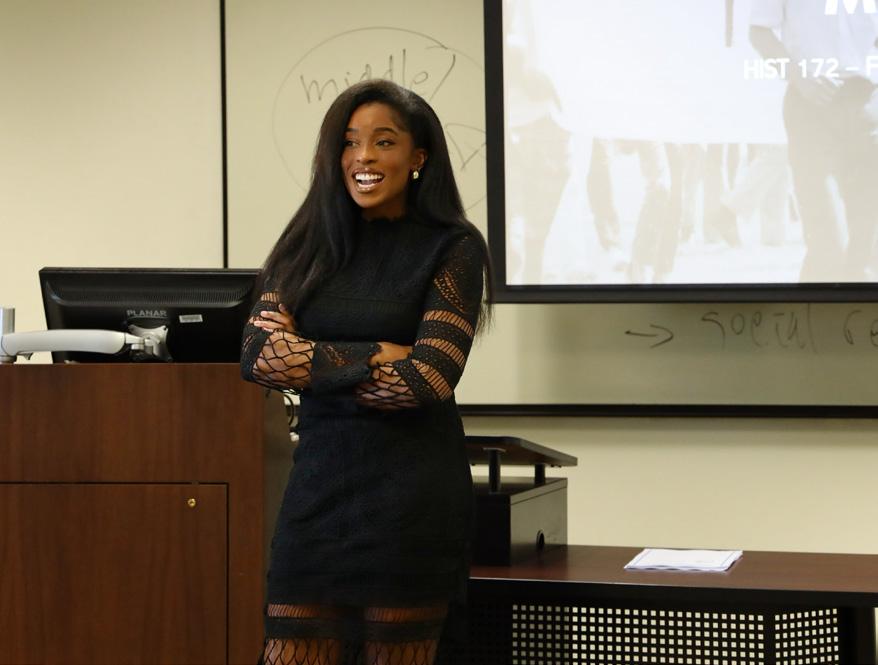
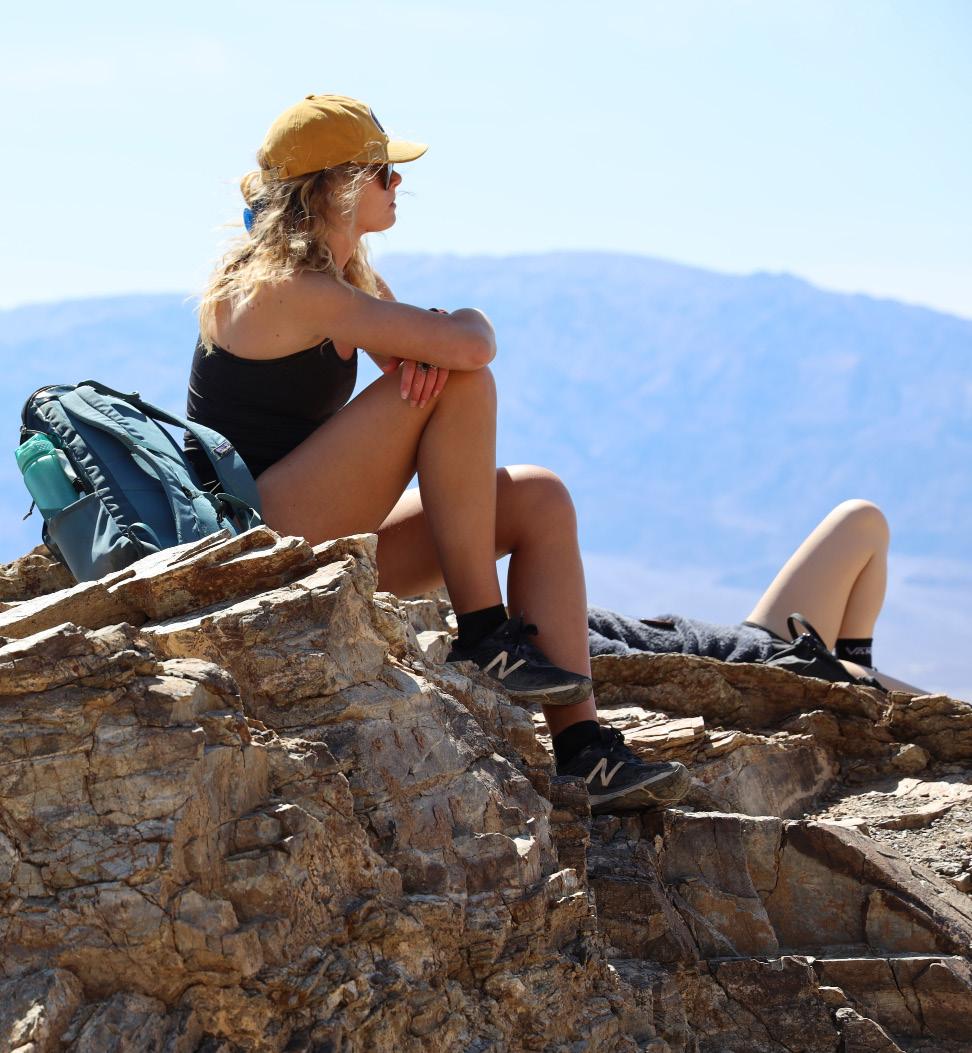
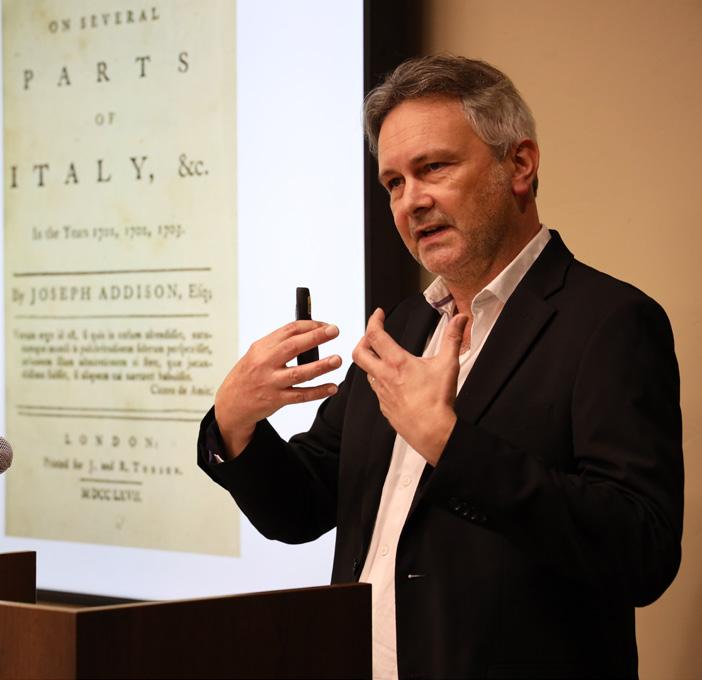
From the smallest molecules to vast ecological systems, students in the natural sciences at USD learn to trace patterns, test ideas and think in both detail and scale. Their work — whether in the lab, on the coast or in collaboration with faculty — prepares them to explore the intricacies of the physical world with both technical skill and intellectual care.
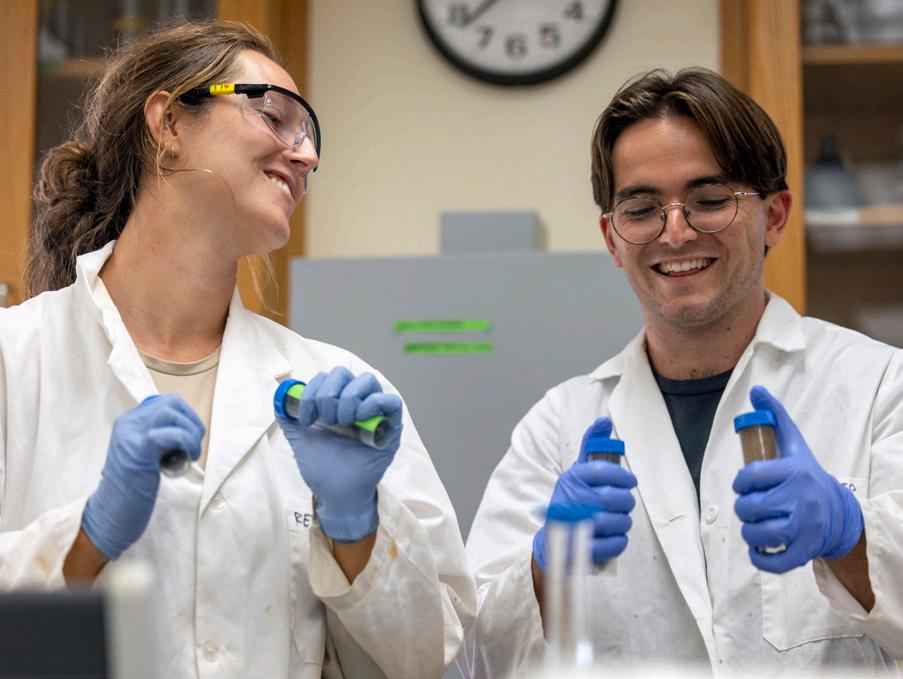
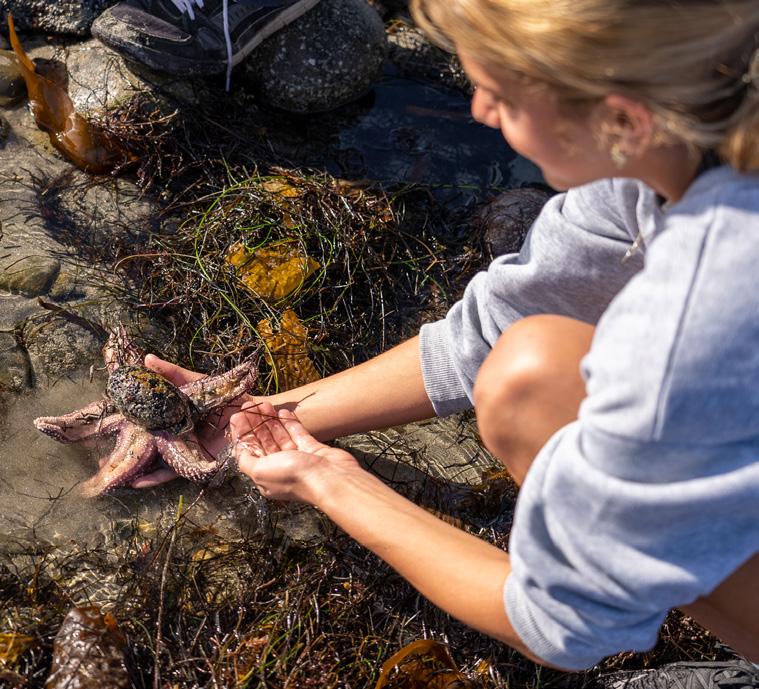
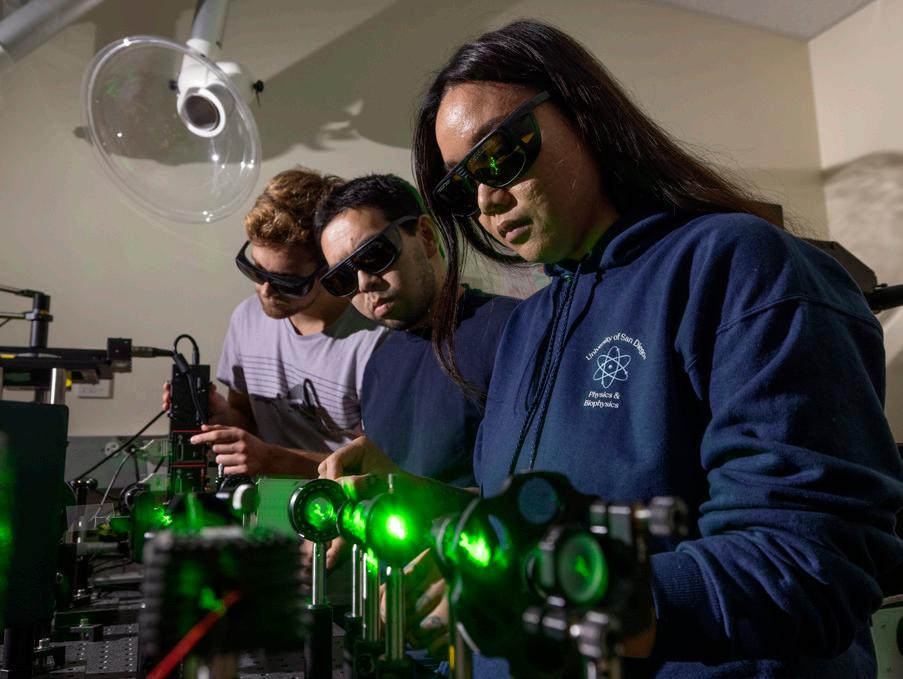
Those who emphasize the instrumental value of liberal education also highlight the deep joy and fulfillment that exposure to literature and the arts can bring to a person’s life. They stress that the liberal arts foster empathic understanding of other people and cultural traditions; support the preservation of democracy by teaching students how to assess historical evidence and think critically about economic principles; aid in the development of moral character and ethical reasoning through philosophy and theology; and cultivate a broad set of intellectual and professional skills that employers increasingly value in a rapidly changing economy. An example of the instrumental value of the liberal arts is that this learning can prepare students for more ethical usage of emerging technologies, moving them away from the temptation to lean on utilization as a shortcut.
• Expands a person’s social, cultural and scientific horizons
• Instills analytical and communication skills that serve any career
• Prepares a person for advanced study or professional training
• Instills an appreciation of democratic traditions and citizenship
• Promotes high ethical standards
• Advances global awareness and stewardship
Provided by the Council on the College of Arts and Sciences
Over the past decade, we have worked with faculty and staff to reaffirm USD’s liberal arts mission, curriculum and culture. We are heartened that administrators, faculty and staff across campus share the belief that the liberal arts foundations of our past are the foundations for our present and future. Even our strong professional and graduate programs benefit from our highly flexible, interdisciplinary and campuswide engagement with a liberal arts ethos at the heart of the university.
USD integrates the liberal arts across all disciplines through a layered curriculum and a set of highimpact practices, whether majoring in business, engineering, the arts, letters or the sciences. These include our broad-based Core Curriculum (the Core), required interdisciplinarity in the Core, interdisciplinary majors and minors, undergraduate research, internships, community engagement, firstyear learning communities and the vibrant Humanities Center. As an example, our Core and Humanities Center together reflect the collaborative, creative and interdisciplinary spirit at the heart of USD. The Core encourages students to think across complex issues, while the Humanities Center continues those explorations through lectures, seminars, exhibitions and discussions that often connect the humanities and sciences.
At USD, our strength lies in a liberal arts mission enriched by the Catholic Intellectual Tradition — a tradition that sparks complex thought, curiosity, conscience and creativity. USD’s immersion in the Catholic Intellectual Tradition is well served by its support for a liberal arts education, encouraging the exploration of life’s meaning and value and the discernment of significant truths about reality, faith and human existence.
So long as we remain vigilant against external pressures that threaten the vitality of the liberal arts — and so long as we tend the soil in which liberal education flourishes on our campus — there is every reason to be optimistic about its prospects. It is worth noting that the number of students majoring in the arts and sciences, on average, remained around 50% over the past decade. All members of the USD community have a stake in preserving and promoting the liberal arts — not only because of its inherent value but also because a liberal arts education distinguishes us as an educational institution in the San Diego region and reflects the deepest responsibilities of our Catholic mission and calling.
The social sciences bridge theory and action. Through research, writing and conversation, students explore the dynamics of power, policy and behavior — gaining the perspective and the skills to make a difference. The social sciences foster a holistic understanding of complex social dynamics and prepare students to address realworld challenges with empathy, insight and innovation.
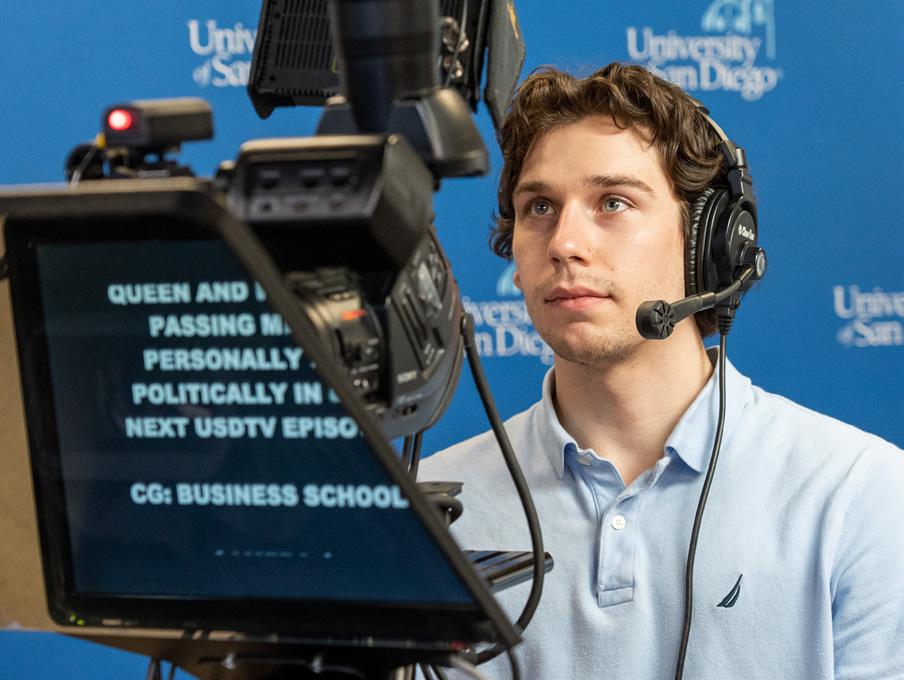

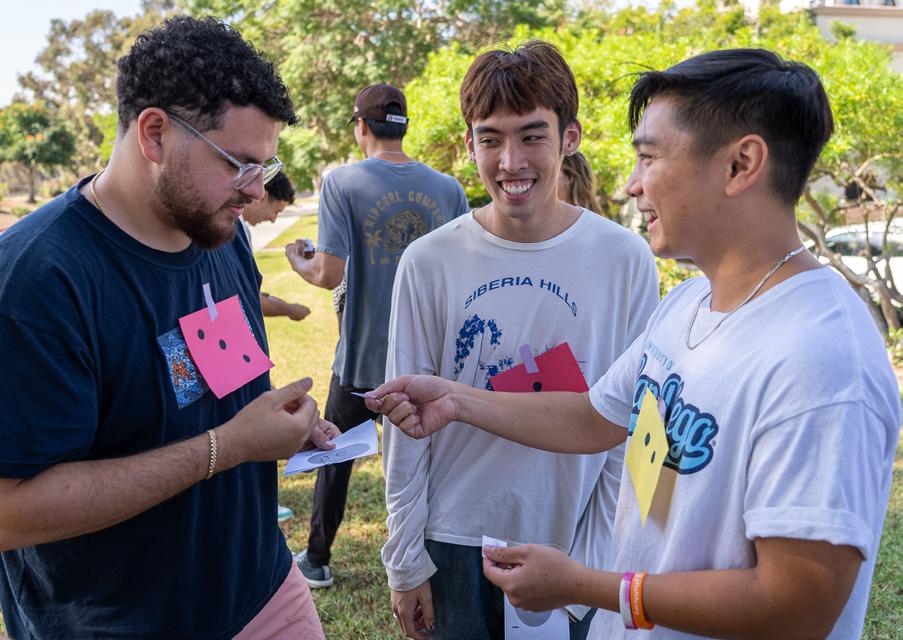

Brittany Asaro, PhD, associate professor of Italian Studies, was awarded a prestigious Graves Award for Actual Teaching in the Humanities by Pomona College under the auspices of the American Council of Learned Societies to faculty members from select liberal arts institutions across California, Oregon and Washington. This will fund Asaro’s travel to the Newberry Library in Chicago for her training in paleography.
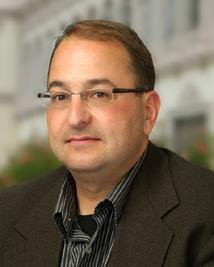
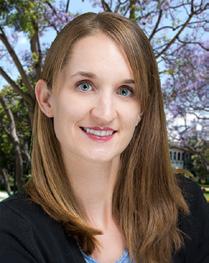
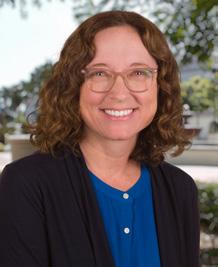
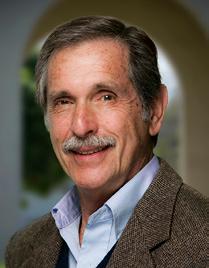
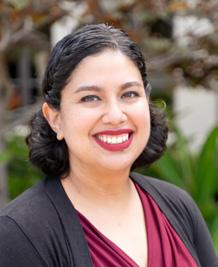
Can Bilsel, PhD, professor of architecture and art history, was invited to the National Endowment for the Humanities to serve as a review panelist for their Collaborative Research Program.
Amy Buchmann, PhD, associate professor of mathematics, earned $5,000 from the Mary Beth Ruskai Research Fund for Women. This fund awards annual grants to support women in the mathematical sciences in advancing their research careers through travel, collaboration and other activities.
Casey Dominguez, PhD, department chair and professor of political science and international relations, received the James A. Thurber Article of the Year Award from the journal, Congress & the Presidency, for her coauthored piece, “Hyperpartisanship and the First Hundred Days.”
Hugh Ellis, PhD, professor of biology, was awarded a 2024 International Opportunity Grant to continue his research in Svalbard, Norway. This research focuses on the physiology and ecology of Arctic Terns and exemplifies the application of physiological studies to conservation efforts.
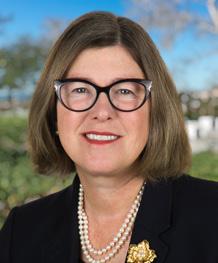
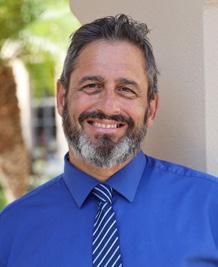
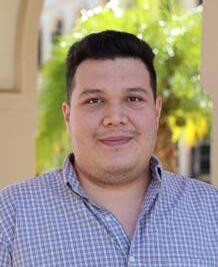
Molly McClain, PhD, professor of history, received the People in Preservation Award from the Save Our Heritage Organisation. This award honors her exceptional contributions to historic preservation and her key role in the successful effort to include the La Jolla Park Coastal Historic District on the National Register of Historic Places.
Joseph Provost, PhD, chair of the Department of Art, Architecture + Art History and professor of chemistry and biochemistry, was selected as a 2025 American Society for Biochemistry and Molecular Biology fellow.
Arturo León Sandoval, PhD, Teaching Pathway Postdoctoral Program faculty member in the Department of Chemistry and Biochemistry, was named a Research Corporation for Science Advancement Fellow for 2025. This recognition endeavors to enhance faculty excellence in the physical sciences through a comprehensive program of job search preparation, professional development and community-building.
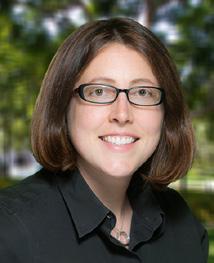
Raquel Martinez, PhD, assistant professor of physics and biophysics, was awarded $277,936 from the National Science Foundation to help advance our understanding of the origin and evolution of gas giant exoplanets (planets orbiting stars outside our solar system).
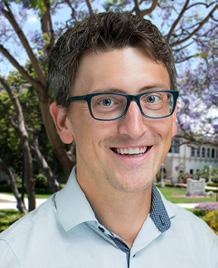
Kate Boersma, PhD, associate professor of biology, received the Office of Undergraduate Research’s Outstanding Undergraduate Research Mentor Award. This award celebrates mentors who exemplify excellence in guiding undergraduates through research and scholarly activities.
Adam Boocher, PhD, associate professor of mathematics received a Faculty Research Grant for the 2025-26 academic year. This award recognizes his research on commutative algebra and number theory and commemorates his professional contributions to the field of mathematics.

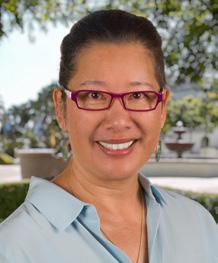
Amy Buchmann, PhD, associate professor of mathematics was awarded a Faculty Research Grant for the 2025-26 academic year. This award celebrates her work creating mathematical models of swimming microorganisms as well as her commitment to making the field of mathematics more accessible to undergraduate students.
Leeva Chung, PhD, chair and professor of communication, received the Patrick F. Drinan Award for Distinguished Service. This award was established to honor former College of Arts and Sciences Dean Patrick Drinan, PhD, and recognizes the outstanding service contributions of a faculty member through breadth and depth of service over a sustained period of time.

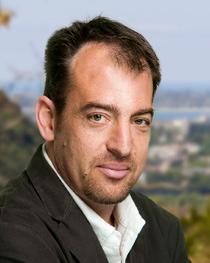
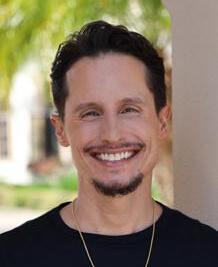
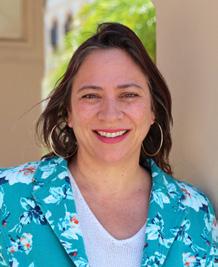
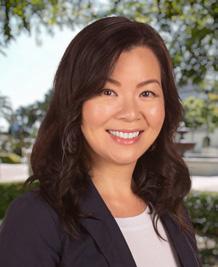
Emily Cilli-Turner, PhD, associate professor of mathematics, was recognized as a Faculty Research Grant recipient for the 2025-26 academic year for her innovative research in undergraduate mathematics education, an area she describes as crucial for improving outcomes in undergraduate math education for all students.
Nadav Goldschmied, PhD, professor of psychological sciences received the 2024-25 Glenn D. White, Jr. ’78 Faculty Research Award. This award recognizes Goldschmied’s excellence in mentoring undergraduate students in research and other scholarly activities, cultivating the next generation of research leaders.
Greg Prieto, PhD, professor of sociology, was honored with the Dean’s Award for Teaching Excellence, which honors a faculty member’s achievements in teaching by embodying the values of a liberal arts education.
Amanda Ruiz, PhD, professor of mathematics, was presented with the Faculty Mentor Award from the College of Arts and Sciences. This award celebrates Ruiz’s dedication to mentoring colleagues as they grow into teacher-scholars, and recognizes her efforts in going above and beyond in her role.
Cawa Tran, PhD, associate professor of biology, received the Office of Undergraduate Research’s Outstanding Undergraduate Research Mentor Award. This award honors mentors who demonstrate distinction in assisting undergraduates through research endeavors.
SERVICE- AND COMMUNITY-BASED RECOGNITION
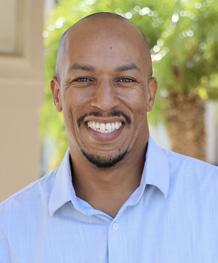
Cory Gooding, PhD, associate professor of political science and international relations, earned the Fostering Black Educational Excellence Award presented by the Center for Equity and Engagement. Gooding also received the College of Arts and Sciences Anti-Racism Transformational Award, which celebrates faculty and staff members who dedicate themselves to anti-racist initiatives and to improving the campus climate through curricular transformation.
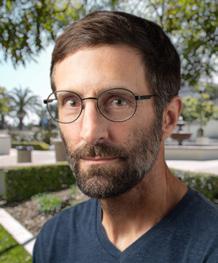
Kevin Guerrieri, PhD, professor of languages, cultures and literatures, was selected as one of the inaugural recipients of the Karen and Tom Mulvaney Spirit of Community Award. This award honors individuals who lead with humility and compassion while advancing the university’s mission of community engagement.
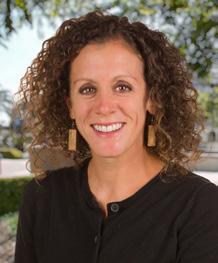
Jena Hales, PhD, associate professor of neuroscience, cognition and behavior, received the Educational Excellence in the Community Award. This award celebrates her commitment to fostering educational excellence both within the university and the surrounding community.
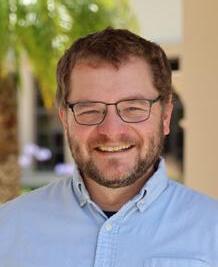
Sean Mossman, PhD, adjunct assistant professor of physics and biophysics, was awarded the Perla and Jeff Myers Adjunct Faculty Award for Teaching Excellence. This award honors adjunct faculty members annually who exemplify a commitment to the liberal arts, inspire intellectual curiosity and leave an impact beyond the classroom.

Greg Prieto, PhD, professor of sociology, received a Sister Sally M. Furay Award. This award celebrates faculty and staff who have demonstrated a commitment to fostering inclusive excellence and social justice within the USD community.
The Certificate in Community Engagement, offered by the Community Engagement and Civic Learning program, provides students the opportunity to combine their academic learning with meaningful community involvement. Through a mix of coursework and hands-on experiences, students will develop skills for addressing real-world challenges. The program emphasizes relationship-building, understanding community needs and applying academic knowledge to civic life. Students will also engage in a capstone project that aligns with the needs of a community partner.
The Certificate in Theology and Ministry provides students with a strong foundation in Catholic theology, ethics and ministry. Students will deepen their theological knowledge while actively engaging in ministry, with a special emphasis on solidarity with the vulnerable and addressing the world’s urgent challenges. This certificate integrates seamlessly with USD’s Core requirements and helps students gain valuable skills for leadership and service in the Catholic community.
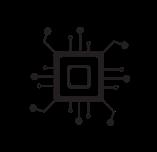
USD’s Technologies and Society minor provides students with a deep understanding of the societal impacts and ethical implications of emerging technologies. This is an 18.5unit minor that explains how technologies like artificial intelligence and data science take form and are shaped by society, while addressing social, political and ethical responsibilities. Students will gain a deep literacy in emerging technologies and be prepared for diverse careers in fields such as business, law, media and public policy.
Dylan Gage ’27 (BA in mathematics and BS in physics), Katarina Matic ’26 (BS in physics) and Moriah McLellan ’26 (BS in chemistry) were awarded the Barry Goldwater Scholarship by the Excellence in Education Foundation.
Carmen Gray ’25 (BA in political science) accepted a VIA Global Community Fellowship and will work with the Suwandi Foundation in Bali.
Reese O’Driscoll ’26 (BA in political science) was awarded the Public Policy and International Affairs (PPIA) Fellowship.
Noel Amelia Marie Davis ’25 (BA in sociology) was recognized with the Outstanding Contribution to Multicultural Awareness and Understanding Award.
Gabriella Gonzalez ’25 (BA in sociology) and Karely Gonzalez ’25 (BA in sociology) were honored with the Carmen M. Vazquez Award for Outstanding Service to the Entire Campus through Their Involvement.
Arianna Jones ’25 (BA in psychology) and Sophie Viohl ’25 (BA in psychology) received the Outstanding Service in University-Sponsored Activities Award.
Gladys Emilia Torres Olivarria ’25 (BA in ethnic studies and sociology) was named a recipient of the Chet Pagni Award for Outstanding Volunteer Service.
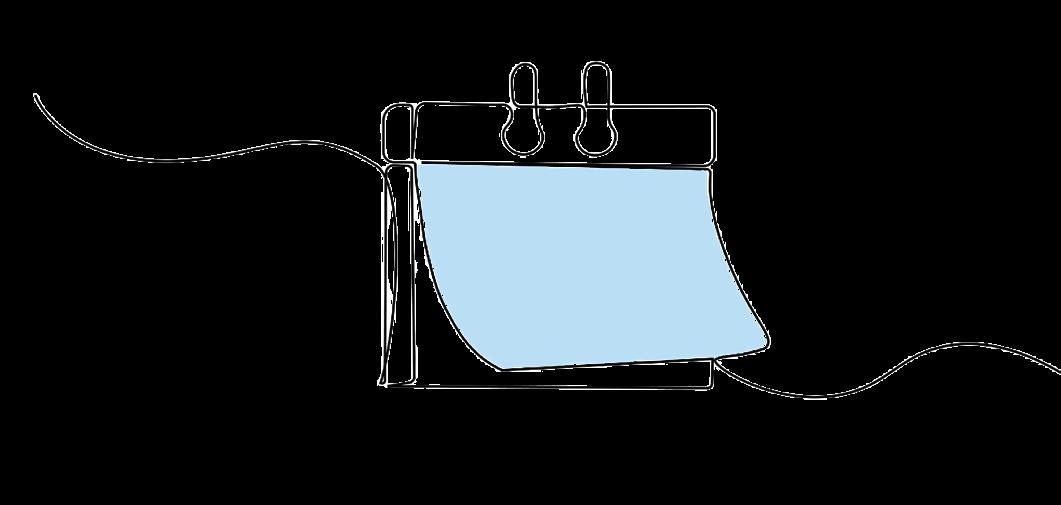
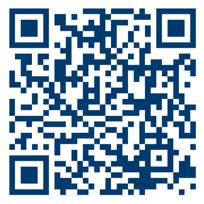
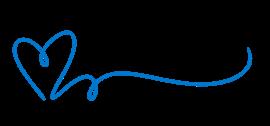
By Ronald Kaufmann
The University of San Diego is in the process of designing a new integrative science and engineering building thanks to a visionary gift from Board of Trustees Chair Emerita Darlene Marcos Shiley. The new facility will be the centerpiece of the Shiley STEM Initiative, which includes a state-of-the-art teaching and learning center as well as funding for programs that support undergraduate research and other high-impact educational practices.
Dean of the College of Arts and Sciences Noelle Norton, PhD, is enthusiastic about the Shiley STEM Initiative. “The Shiley STEM Initiative will inspire students to think integratively across traditional disciplinary boundaries, and the new building will bring together students and faculty from science and engineering to explore interdisciplinary approaches to contemporary challenges,” she says.
The space will be designed to encourage crossdisciplinary collaborations between the College of Arts and Sciences (the college) and the Shiley-Marcos School of Engineering (SMSE), which will build intellectual engagement and support integrative learning. An important benefit of this new building will be more and deeper interactions between engineering and the natural sciences (chemistry and biochemistry, physics, biology, environmental and ocean sciences, and neuroscience, cognition and behavior).
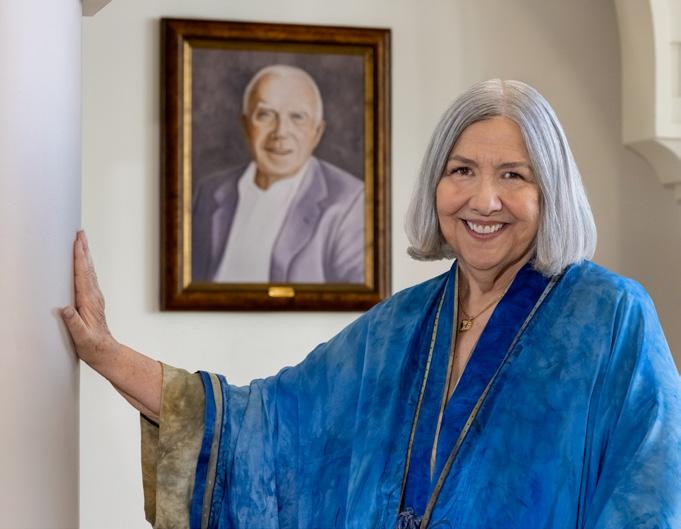
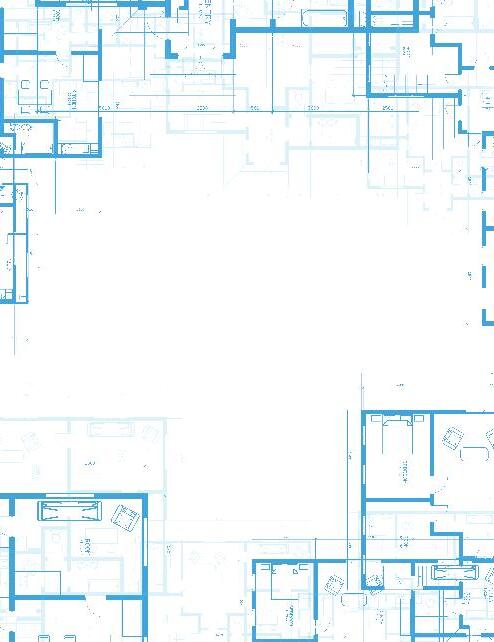
The building is currently in development and is slated for an area of campus near the Belanich Engineering Center and Pardee Legal Research Center a short walk for natural science and engineering faculty members who will teach alongside each other in that space. The facility will include teaching labs, maker spaces that support innovation and encourage experimentation, classrooms that can be adapted for various teaching methods and facilities for projects and collaborative teamwork.
Overseeing the design and construction is a stakeholder committee that includes administrators, staff and faculty from the college and SMSE. Input on building design has been gathered from USD students, staff and faculty at open forums and through electronic surveys. Additionally, focus groups made up of faculty and staff from the college and SMSE have worked with the stakeholder committee to refine a more detailed vision for the spaces, which are intended to facilitate active learning and dynamic, flexible use.
“Our hope is that students will gather in this new space and work together to find creative solutions to complex problems,” says Norton. “Then go out into the world and solve those problems in new ways through different disciplinary lenses.”
“STEM is the future and especially in San Diego. I believe that science, technology, engineering and math are always going to be important.”
Darlene Marcos Shiley
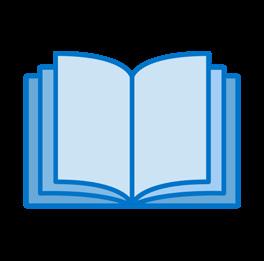
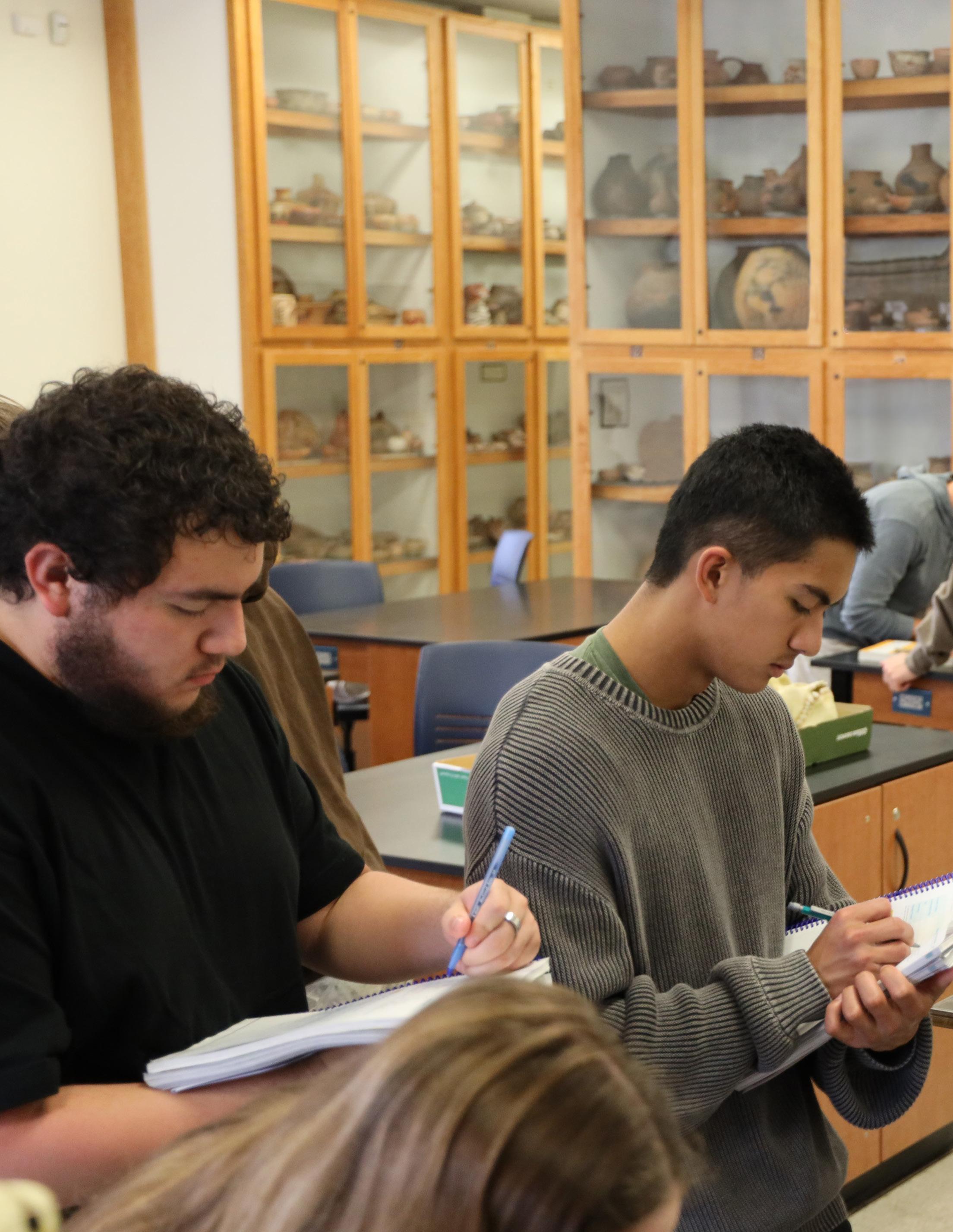
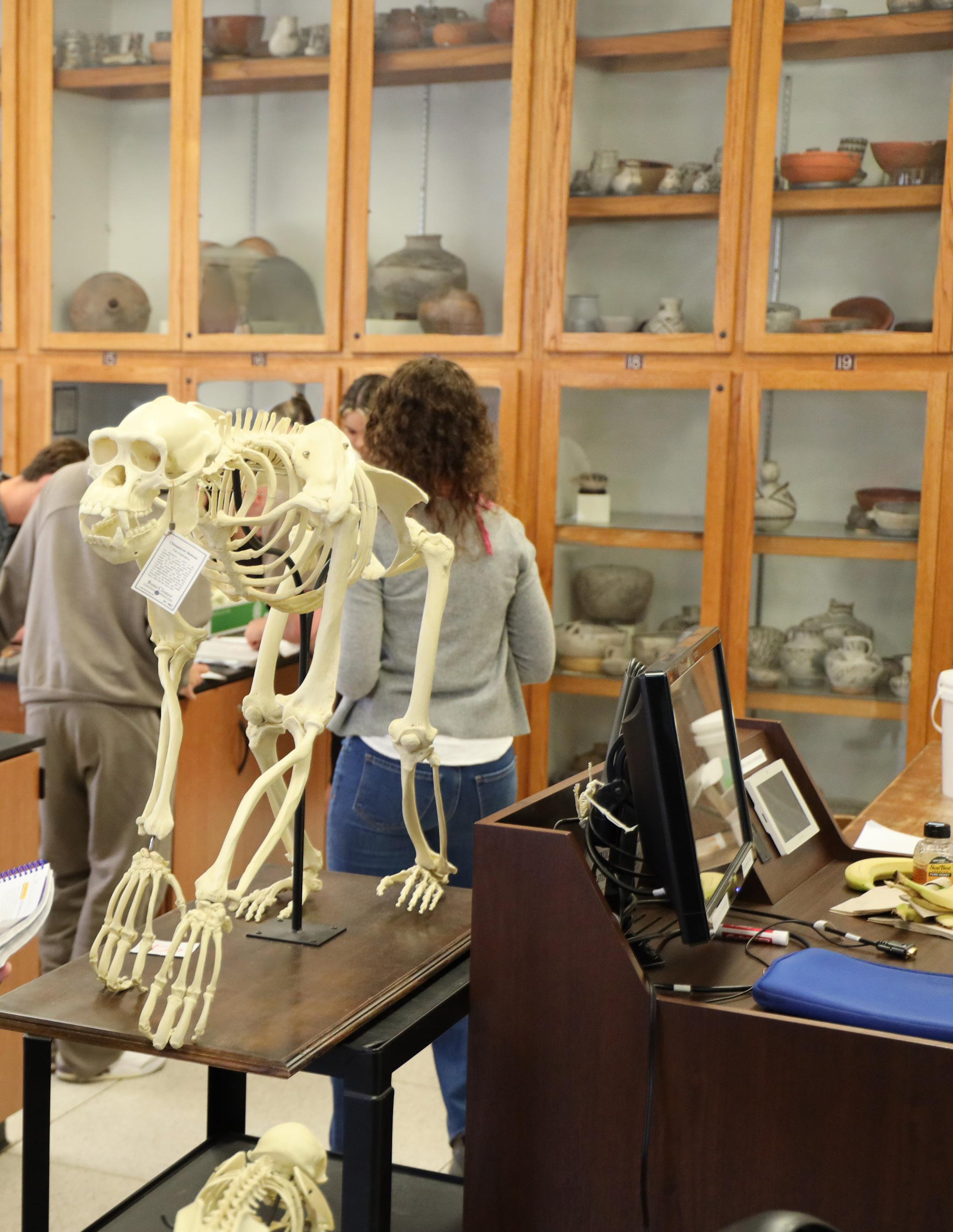
Becoming Human: Introduction to Biological Anthropology With Social Justice
This Learning Community (LC) course examines what it means to be biologically and socially human within an evolutionary framework. LC classes are a special Core requirement for first-year students at USD. They combine the feel of a firstyear seminar with the depth of a regular academic class, often tying in elements of community building. This course looks at humans over evolutionary time, both in light of our closest living relatives (like lemurs, monkeys and apes) and in a modern context. Social justice and integrative learning are fundamental to this course, as students debunk politicized myths about human “nature” — including those related to race, sex, gender, sexuality, privilege and intersectionality.
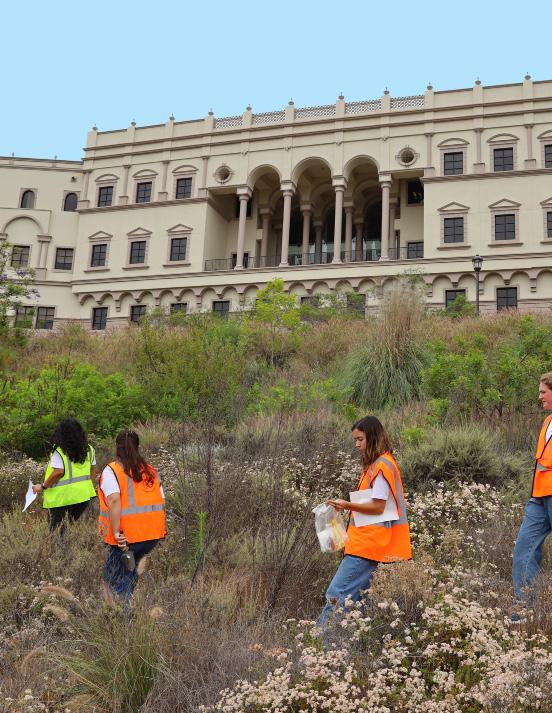

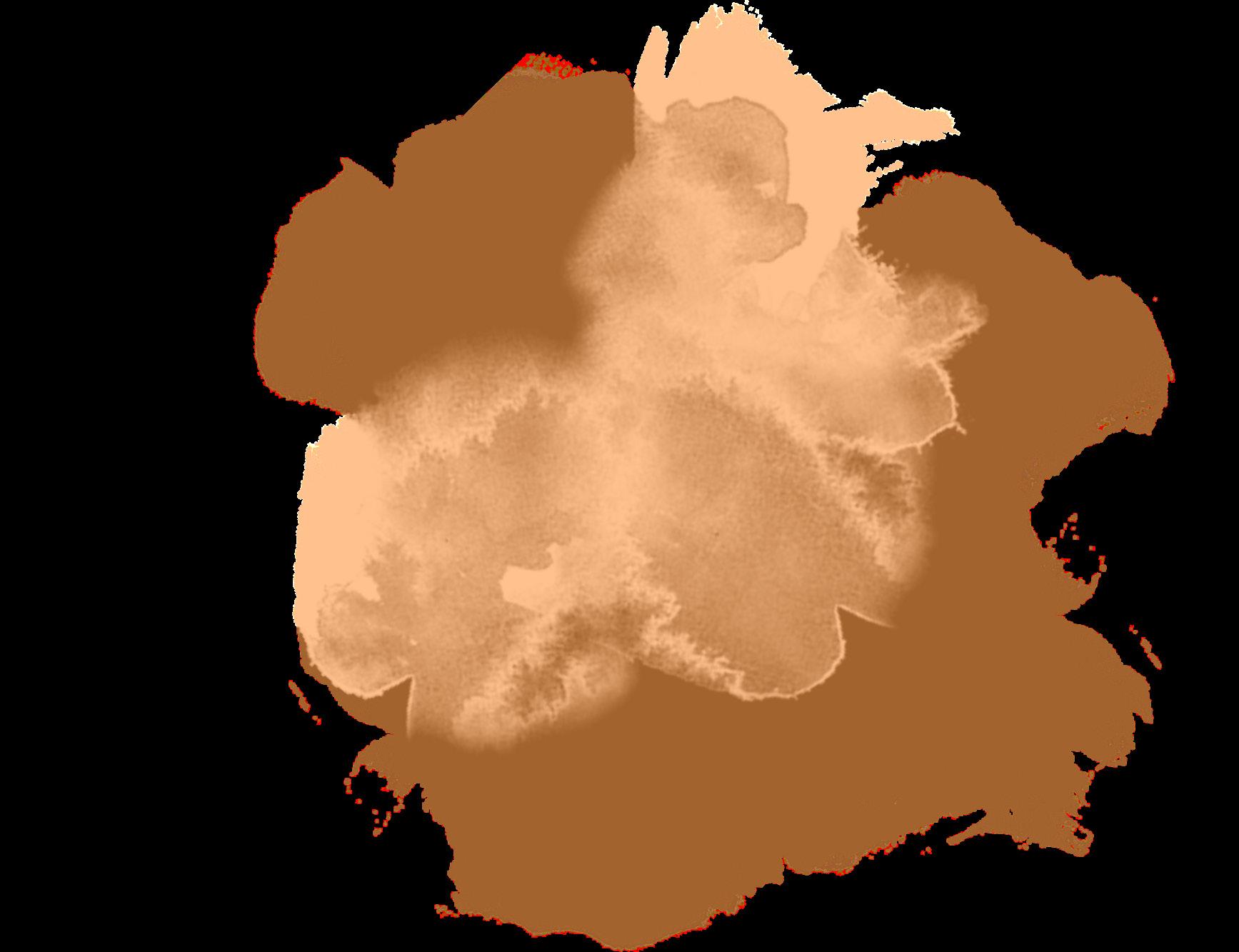
By Julene Snyder
Dean Noelle Norton sees research as one of the key elements that binds the College of Arts and Sciences together. “We provide a very robust undergraduate research model,” she says. “Students can work in a laboratory, or work on doing archival research or data collection and develop a variety of research skills while being mentored by faculty.”
Norton sees research as essential to a liberal arts education. “We have a lot of first-year students who sign up to do undergraduate research, which we encourage beyond the sciences and the social sciences, where you’d more naturally see it. We want students to be engaged in humanities research.”
“Every time a faculty member applies for a grant, they always include asking for support for undergraduate research,” Norton explains. “We know that the faculty-student connection is one of the key indicators for student retention, and our emphasis on undergraduate research helps students to know they’re welcome and that they belong at USD.”
While research can light the match that sparks epiphanies, for some, it grows organically.
Claudia Christina Escobar Avila grew up gardening in California’s Inland Empire. “My family are farmers from Zacatecas. When my mom came to the U.S., she wanted to grow the crops that she grew before and would carry me in a sling while she worked. She grew chiles, citrus, beans, corn, nopales. Pretty much everything that goes into salsa.”
Avila vividly remembers foraging in that garden. “Anything that was growing, I was eating. I always saw the outdoors as a resource.”
Even so, she didn’t consider integrating gardening into her academic life until she started community college. “I was part of the sustainability club, which made sense because my family is agrarian and very resourceful.” After earning her undergraduate degree, she went on to earn a PhD from the University of California, Riverside, and was subsequently named a postdoctoral fellow at Stanford University. Throughout those studies, soil continued to fascinate her.
“We don’t often think about soil health until something goes wrong, like when there’s an algae bloom in the Gulf due to the over-application of fertilizer in the surrounding farmland. Soil mismanagement impacts aquatic ecosystems. All things require healthy soils, but most people don’t think about it. They just think, ‘Oh, that’s just the stuff I walk on.’”
When Avila joined USD’s faculty as an assistant professor of environmental and ocean sciences, she filled a gap as a soil scientist.
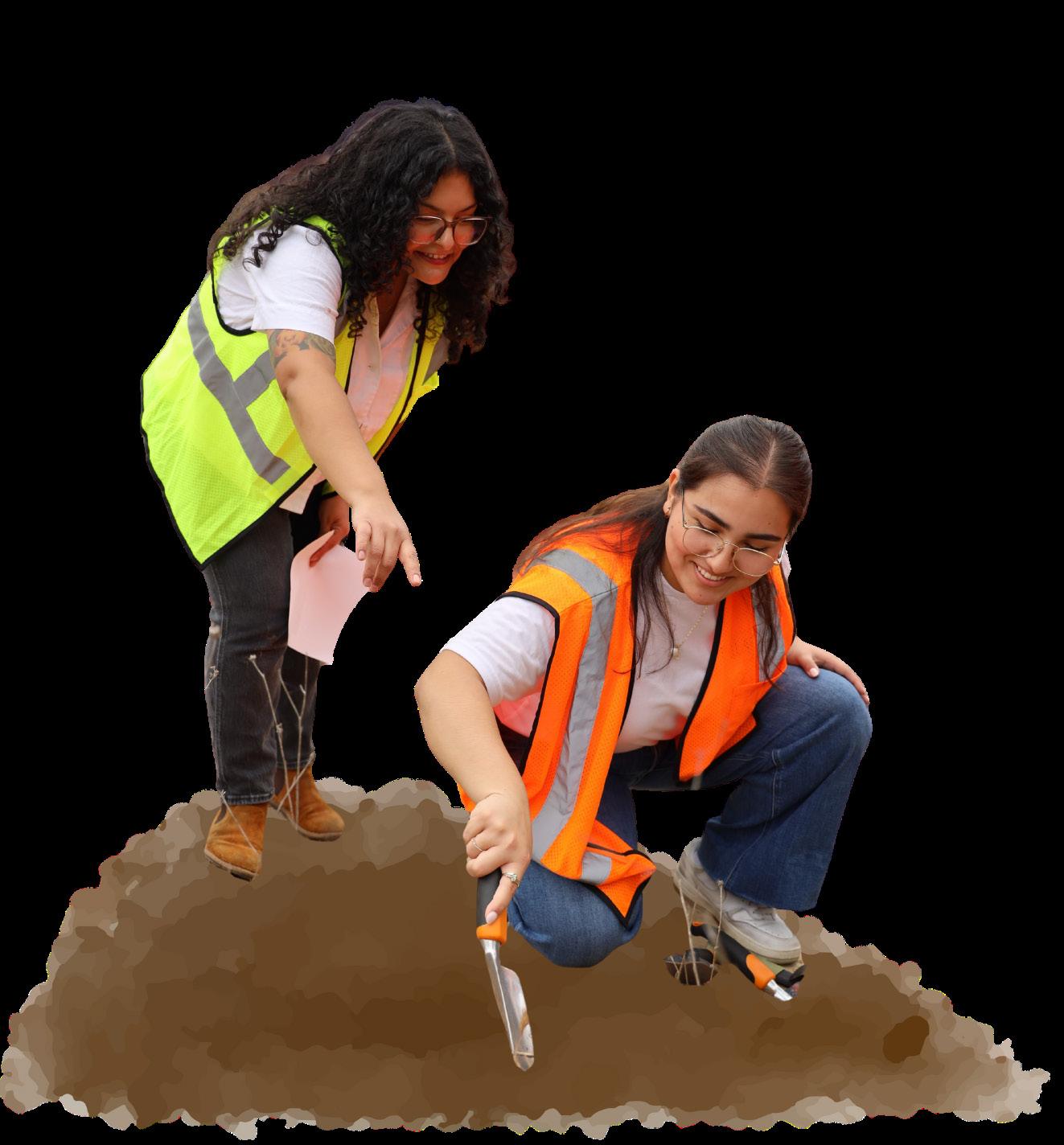
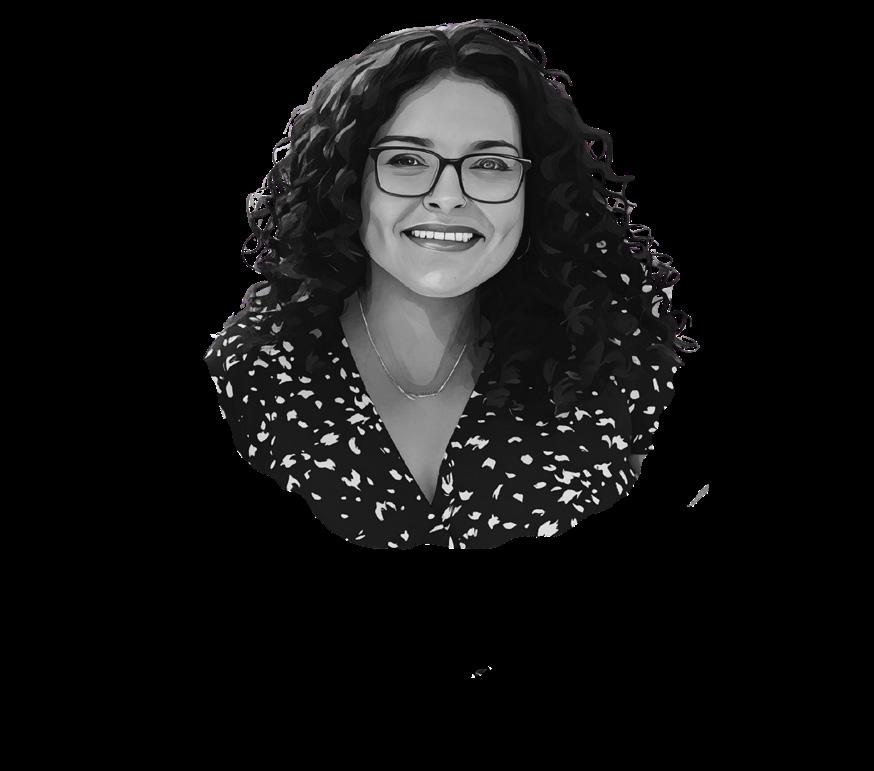
“Business students relate to the fact that we need resources from the environment; business models don’t work if you don’t have those resources. Every field is essentially reliant on the natural environment.”
Claudia Christina Escobar Avila, PhD
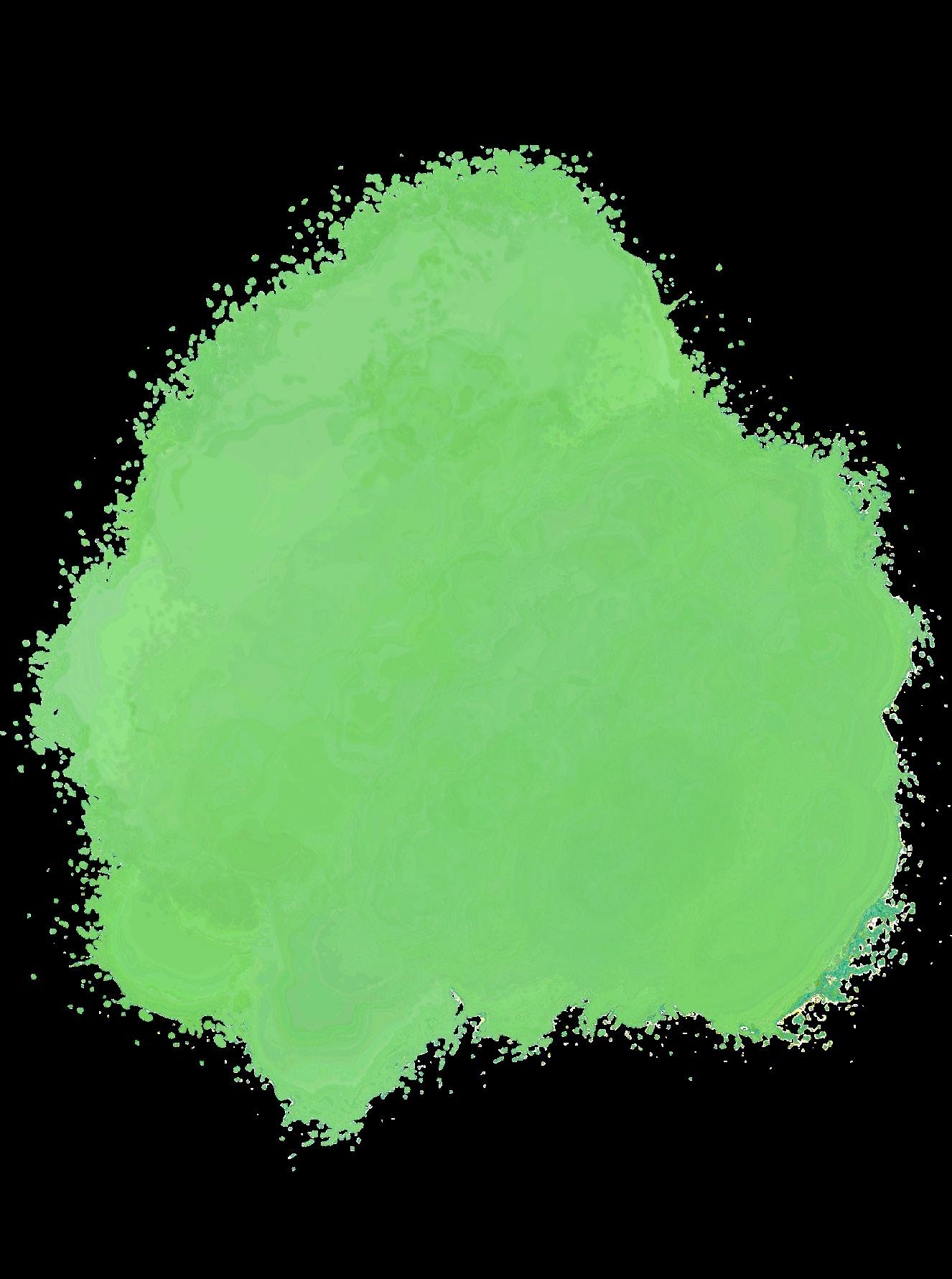
She notes that it’s a given that environmental sciences majors are passionate about protecting the earth, but believes there is real value to this learning for students from every discipline.
“Business students relate to the fact
that we need resources from the environment; business models don’t work if you don’t have those resources. Every field is essentially reliant on the natural environment.”
Borrowing the Mexican colloquial term for “badass woman,” Avila’s Xingona Dirt Science Lab at USD has a mission to use soil biogeochemistry as a tool for research focused on environmental justice and community building.
“My family called me ‘Xingona’ because I was in academia,” she explains with a laugh. “Also, at UC Riverside — which is historically a very wellknown soils science center — in every one of my soil science classes, we were not allowed to say ‘dirt.’ But when people would ask me what I did and I’d tell them, they’d say, ‘Oh. You study dirt.’ My response was, ‘Yeah, I do. Let me tell you how cool it is.’”
The lab is about transformation and community; recent research is focused on the ways that wildfires impact soil chemistry. “What happens while soil is burning in an area with vegetation or forests? In what situations is a burn a good thing?” Avila asks. “Since

the largest and most destructive wildfires on record have happened within the last five years, we know they’re going to get more intense. If we don’t address climate change and the ways we can mitigate wildfire risk, they’re going to get more and more frequent.”
She notes that farmworkers, outside laborers and the incarcerated (who frequently work as wildfire fighters) are vulnerable communities that inhale the most contaminants when there’s a wildfire. “My family are farmers. Essentially, I’m doing work to protect the people in my family.”
After teaching high school math and accounting in Baltimore, Steven Berkley, PhD, segued into educational nonprofits in New York City. “In this work, I was responsible for supporting students with transitioning to college,” he recalls. “Many highlighted their excitement, and some shared challenges of feeling connected.”
“That’s what pulled me into research,” says Berkley. “I wanted to understand how identity, campus culture and family dynamics shape students’ transitions into college, and how this knowledge informs developmental science.”
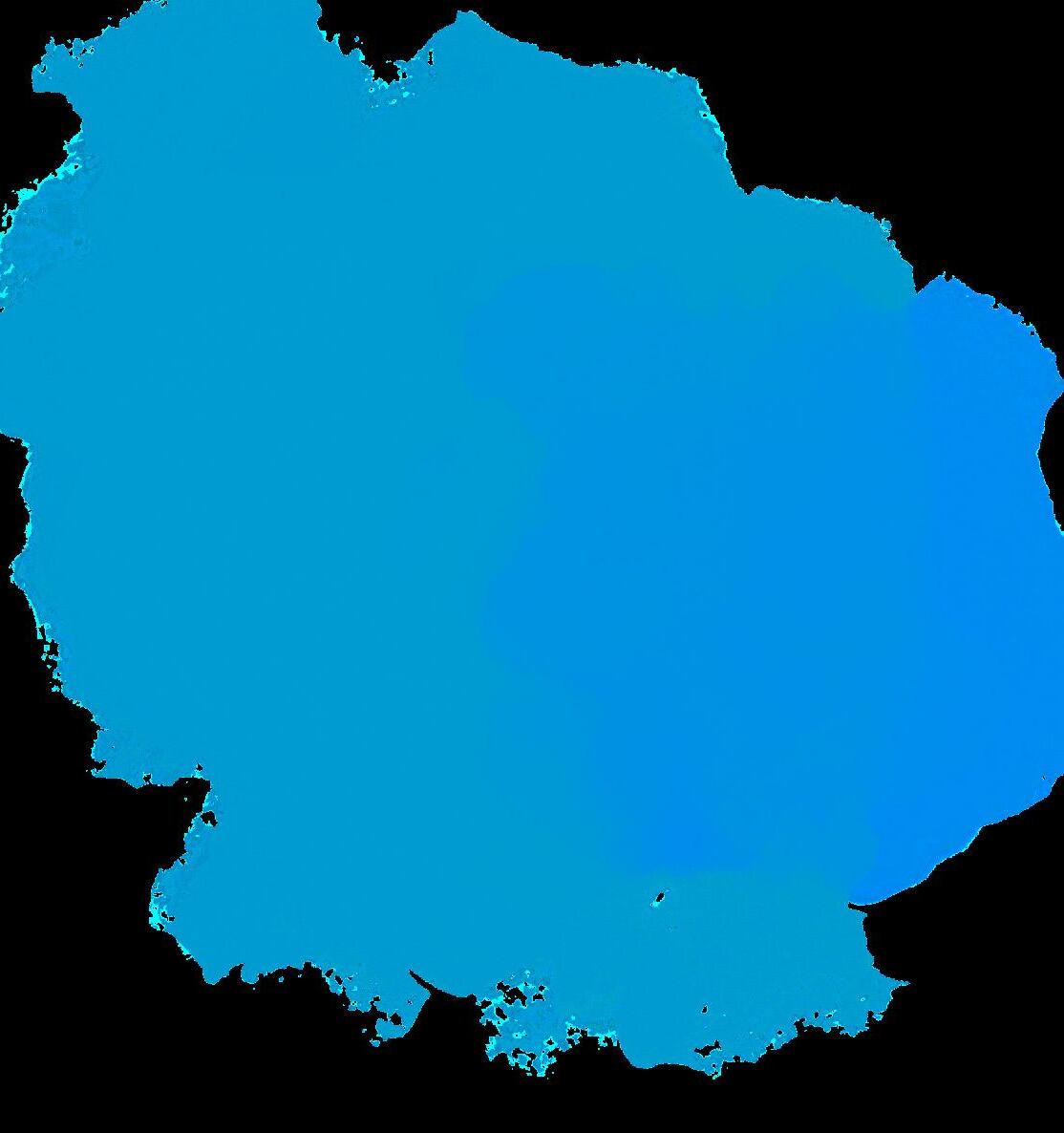
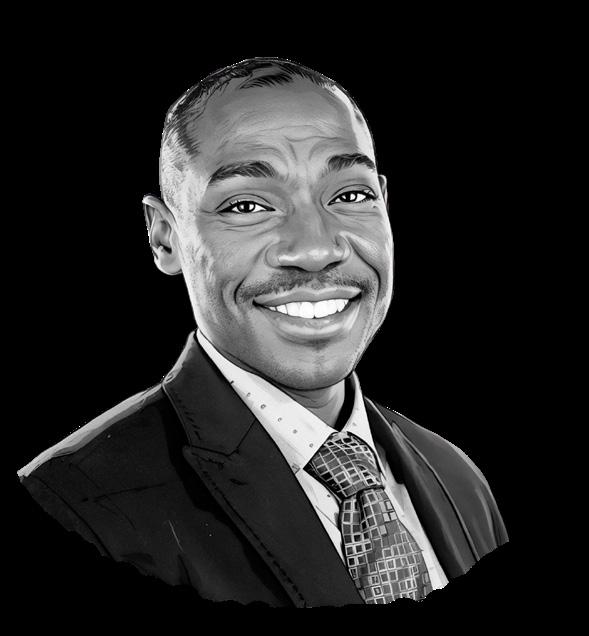
“I meet students where they are. We start with a focused question, build a realistic timeline, and hopefully turn curiosity into a doable study.”
Stephen Berkley, PhD
Berkley joined USD as a Postdoctoral Teaching Pathway Fellow in 2021. Now an assistant professor in the Department of Psychological Sciences, his teaching and research aim to better understand human development and family dynamics, focusing on the sociocultural experience. “At the intersection of identities, my main focus is: What is the role of family? How do families support college transitions? How do students use this knowledge to navigate campus life?”
Berkley’s research laboratory in the Department of Psychological Sciences delves into these questions. “We investigate lived experiences, resilience and sources of strength,” he explains. “The goal is to generate insights that contribute to developmental psychology.”
In addition to courses in Developmental Psychology, one popular course Berkley teaches is
PSYC 362: Black Families. “We move beyond deficit narratives,” he says. “Students become familiar with strengths and humanistic contributions that remain underrepresented in scholarship.” This course regularly enrolls students from varied ethnic-racial backgrounds and academic majors.
Student researchers in Berkley’s lab pursue questions that matter to them. Areas of focus include campus accessibility and belonging, family/stepfamily dynamics and the role of family culture on health and well-being.
Berkley encourages students to develop independent projects that embrace learning from multiple courses. “I meet students where they are,” he says. “We start with a focused question, build a realistic timeline, and hopefully turn curiosity into a doable study.”
Looking ahead, Berkley is excited about what the lab will become. “I want this to be a place where students grow as researchers and carry those skills into graduate study, community work or any career that they choose.”
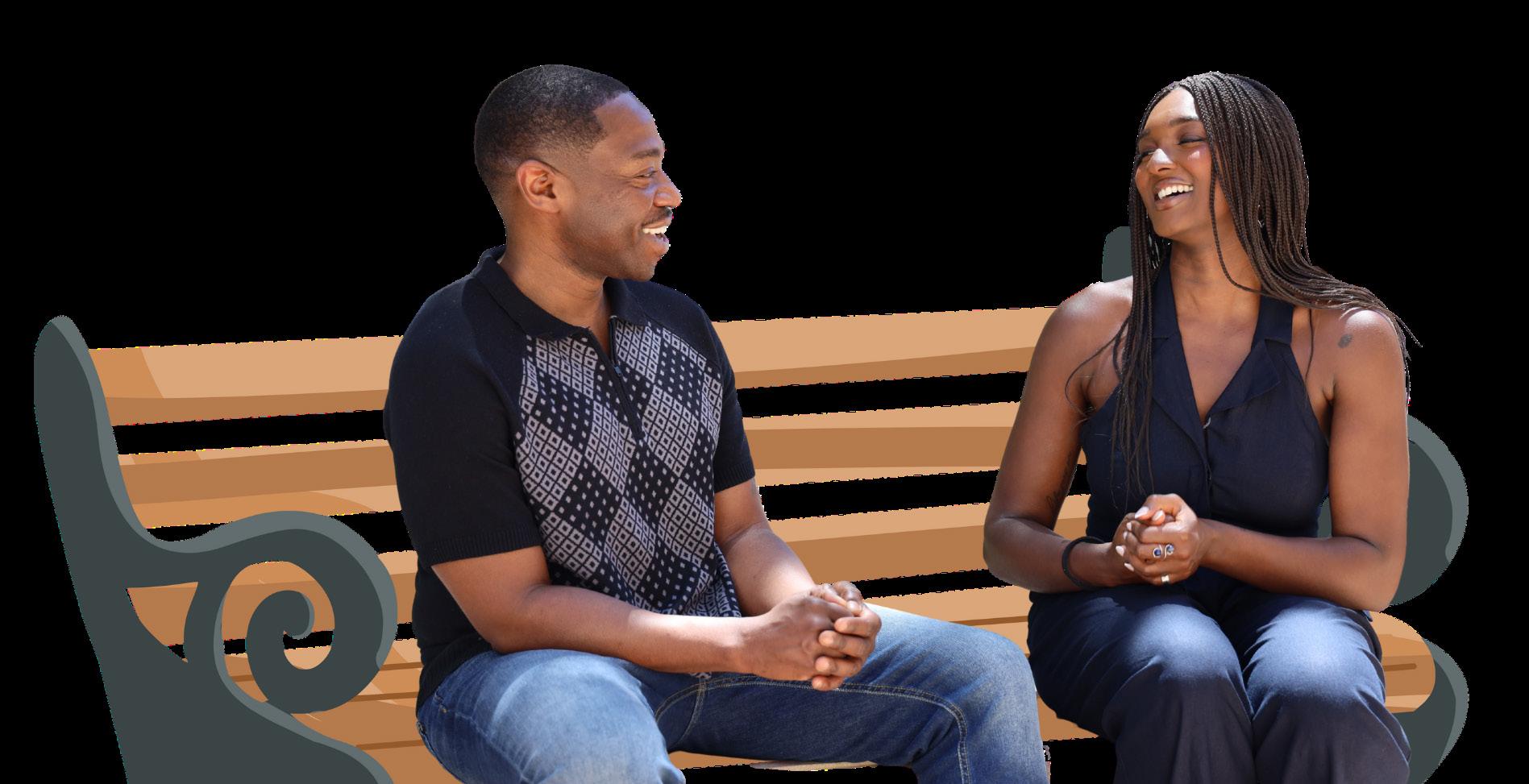
From the time he was a child, Daniel López-Pérez was always drawing. The son of an engineer father and artist mother, he credits his mom for instilling the sense of purpose and discipline he brings to his vocation as an architect. “I try to instill in my students that the rigor of drawing is important, in that it negotiates the built environment,” he says.
One of the founding faculty members of USD’s Architecture program, he draws upon that foundation in his work as a professor at USD. “My mother used to paint a lot of landscapes,” he recalls. “That sense of understanding our built environment and its relationship with nature came through in my own art and drawing. The relationship between nature and the built environment through art and through drawing was always present.”
He and his fellow department faculty members have a commitment to teaching students by coming up with solutions to real-world problems. “For the last 15 years, we’ve all been working on housing, which is one of the most complex and multifaceted problems in the discipline of architecture,” says López-Pérez.
Often working in conjunction with the City of San Diego, his students look at opportunities like replacing golf courses with housing or studying ways to find solutions to the thorny problem of making housing not just affordable but resilient in the face of challenges.
business as usual. One question is, ‘Does planning come from the bottom up, such as ADUs that create urban chaos?’ Because that’s what’s happening. Or does planning come from the top down, so that everyone ends up living in big, partially subsidized buildings?”
In his own professional practice, he’s come up with a solution that bypasses the status quo of building houses one 2x4 at a time. Polyhaus is a design and technology company that promises “rapid-housing made of mass-timber grown in North America.”
The idea came from seeking ways to densify housing without creating new problems, such as building in canyons, which are connected to the region’s water tables. López-Pérez notes that while larger buildings can be built relatively quickly and efficiently, due to their employment of industrial technologies, smaller projects are built significantly slower, given that they are built quite literally by hand and effectively without industrialized technology.
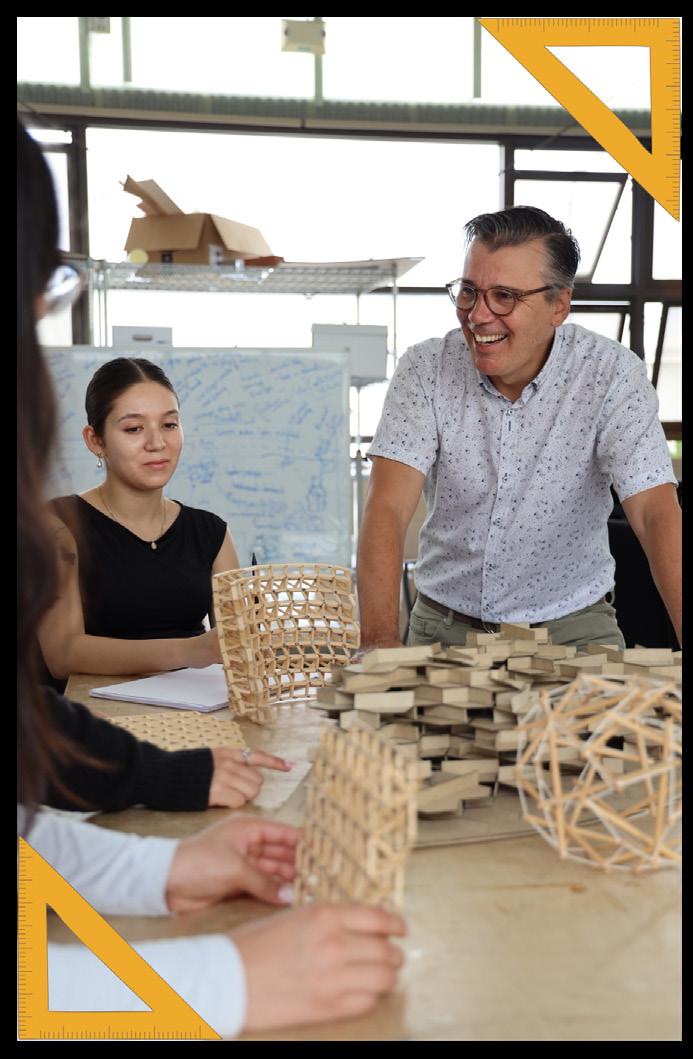
“The importance of not taking our built environment for granted has come to the fore of our collective consciousness,” he says. “All the faculty in the Architecture program unfold our design studios into the world. We do not invent abstract problems for the students. We, as a faculty, all agree that the problems that we have in the built environment are so much more interesting and complex than anything we could conceive of in the abstract.”
López-Pérez believes that technological advances can transform the field from a 20th-century mindset into a positive — even hopeful — force.
“We are being thrust into finding new solutions by climate change and growing inequities. We can no longer take the built environment for granted and do
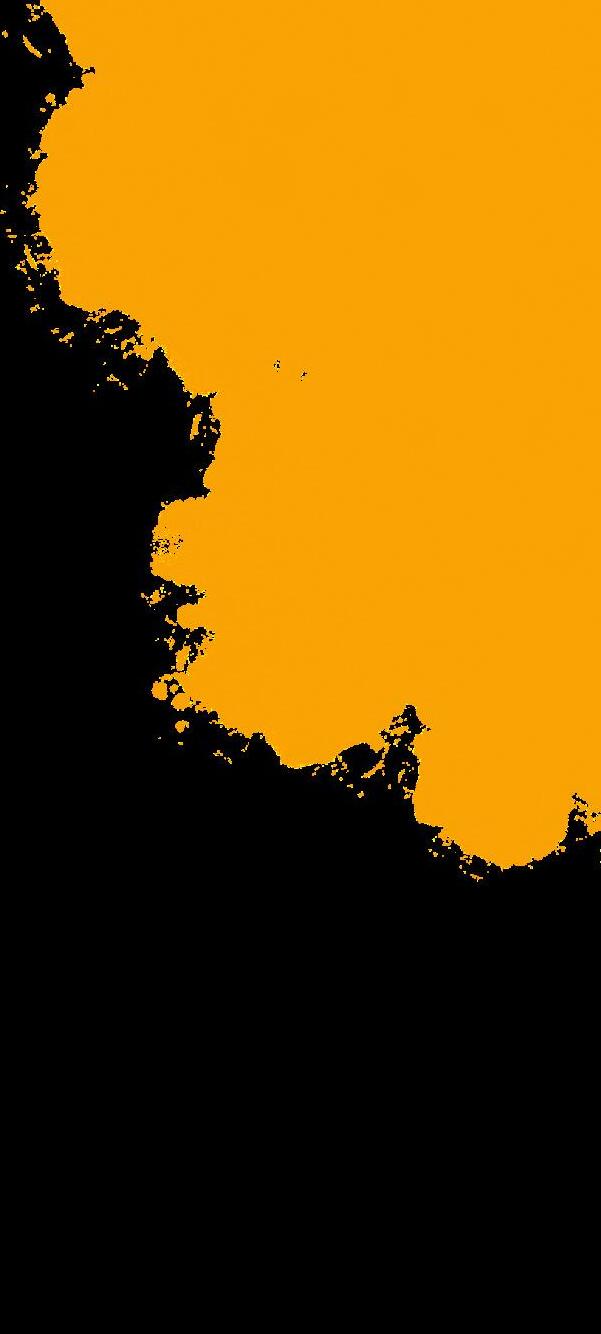
“Polyhaus is focused on housing units from 500 to 2,500 square feet. During the pandemic, I discovered mass timber, which has an extraordinary capacity to panelize. Suddenly, a 500 squarefoot structure can be produced with 60 panels. It’s the solution to a 100-year-old promise in architecture: an entire house delivered on a single truck and assembled in days.”
While Polyhaus is entirely separate from his work with students in the Department of Art, Architecture + Art History at USD, it’s also deeply connected to the Architecture program’s overarching ethos. López-Pérez’s students can see the idea’s fruition by touring a fully functional housing unit with their own eyes — radical innovation right in their faculty’s backyard.
“My students can come and see it for themselves. Some of them saw the first prototype go up. They learn, firsthand, that it’s possible to be the first. Imagine, in a discipline as old as ours, the idea that you can innovate anything is really remarkable.”
He marvels at how well the process worked. “It was built as a proof of concept, and it was flawless. Its structure, built in two-and-a-half days, is simply miraculous.”
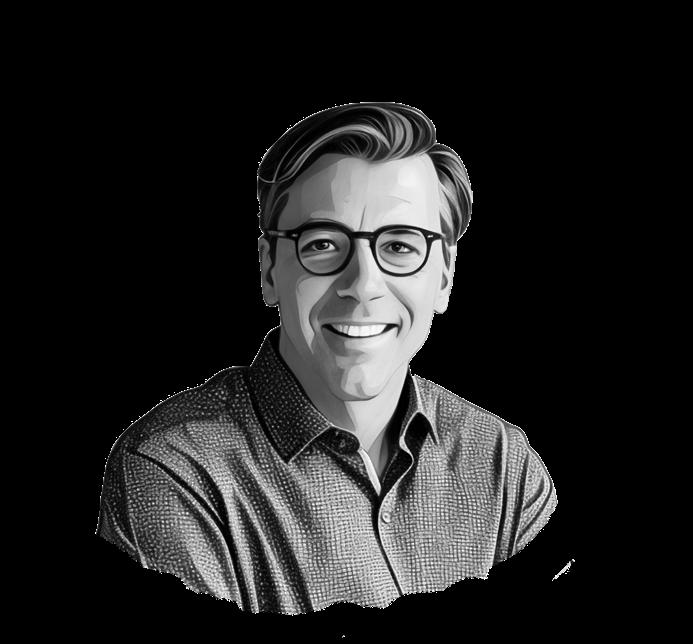
“[My
students] learn, firsthand, that it’s possible to be the first.”
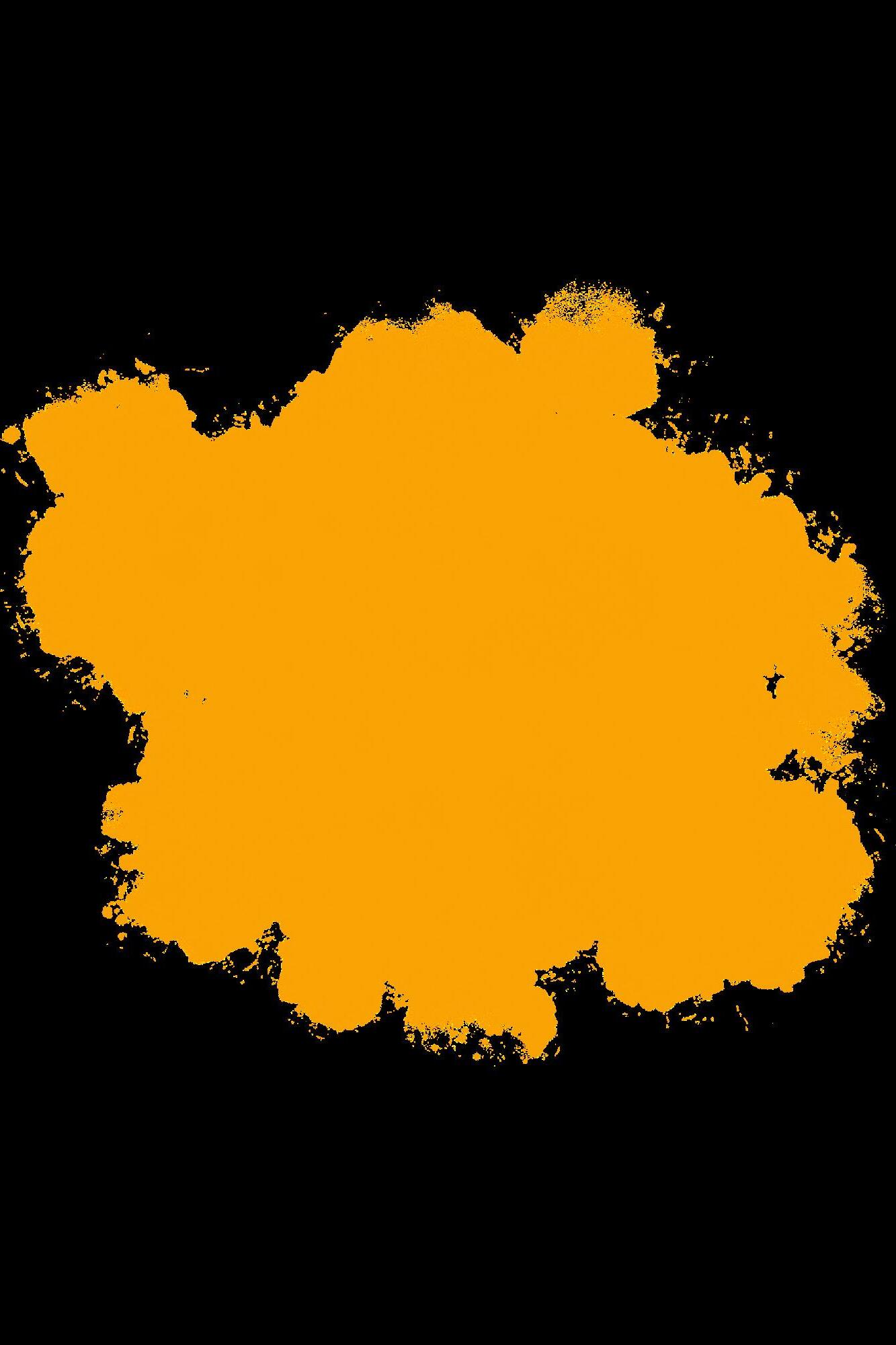
fascinated her was how and why others made music.
“I was interested in context, and there wasn’t room for that as a performer. I didn’t even know that music research existed, since I was at a conservatory and not a liberal arts school,” Noble explains.
She switched her focus to music composition, thinking that writing music might help her understand it better. “I was studying other composers’ scores and learning how they wrote them. That was my best attempt at musical research, so I switched to a composition major, the degree I completed.”
After graduation, a bookstore clerk introduced her to the musicology section. The rest, as they say, is history. “I was hooked,” Noble says with enthusiasm. “I thought research into the intersection of music and art was the most interesting thing I’d ever considered. I knew that was what I wanted to do with the rest of my life.”
Now an assistant professor of music at USD, Noble is delighted to offer students something that she didn’t have access to as an undergraduate: “An opportunity to do music research and understand the
intricate connections between music, aesthetics and style, culture, history and precedent.”
Those are intersections that can reverberate through a lifetime. “I help students think about how different academic disciplines can contribute to nuanced understandings of music. Conversely, they learn how music can meaningfully participate in scholarly conversations happening in other fields, and in how we understand ourselves and our world.”
Noble believes music plays a critical role in shaping worldviews. “If you know enough about music and style and their historical precedents, suddenly, this huge part of your life that perhaps went unnoticed or under-recognized becomes unlocked in a meaningful way. You’ll miss that if you only think of music as something that’s merely pleasing or entertaining.”
To get there, research is crucial. “I integrate research into every part of my teaching,” Noble stresses. “Whether it’s teaching the basics of humanities or music research in the lower division, or examining music in more detail and doing research that produces new questions and answers, or toward more applied forms of research.”
At the most rigorous level, Noble’s students conduct individual or independent study, with her alongside as a guide. “I’ve had two students who were accepted to the Keck Undergraduate Humanities Research Fellowship Program,” she notes with pride.
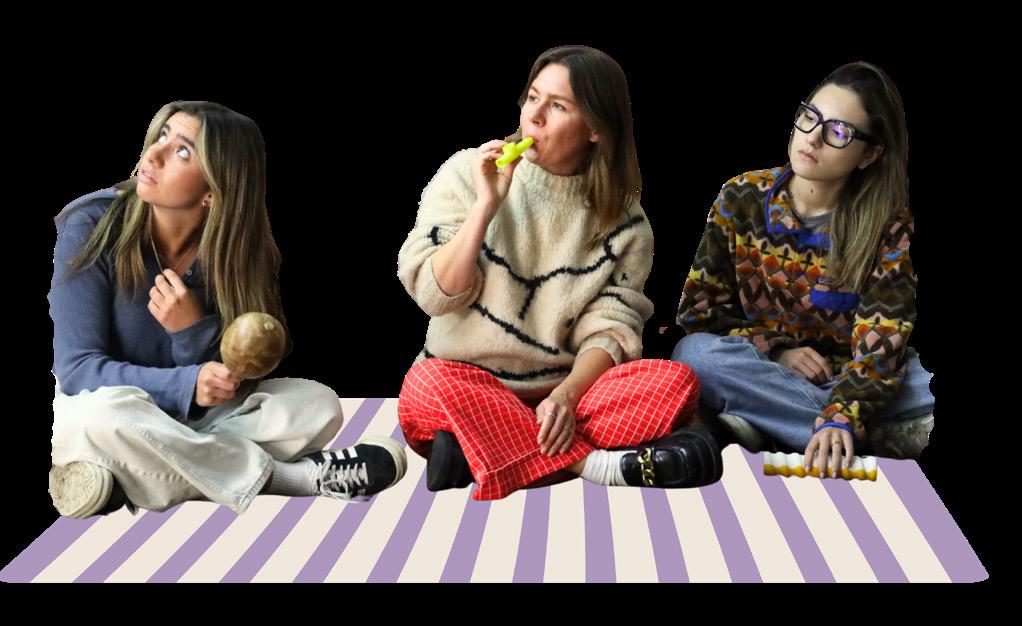
Keck Fellows Yahaira Rodriguez ’23 (BA in music and political science) and Carly O’Rear ’25 (BA in music and theatre) were invited to present their papers at the local chapter of the preeminent musicological scholarly society, the American Musicological Society. It’s exciting for recipients and the department itself, but beyond accolades, Noble stresses that music majors can excel in any field. continued on page 32
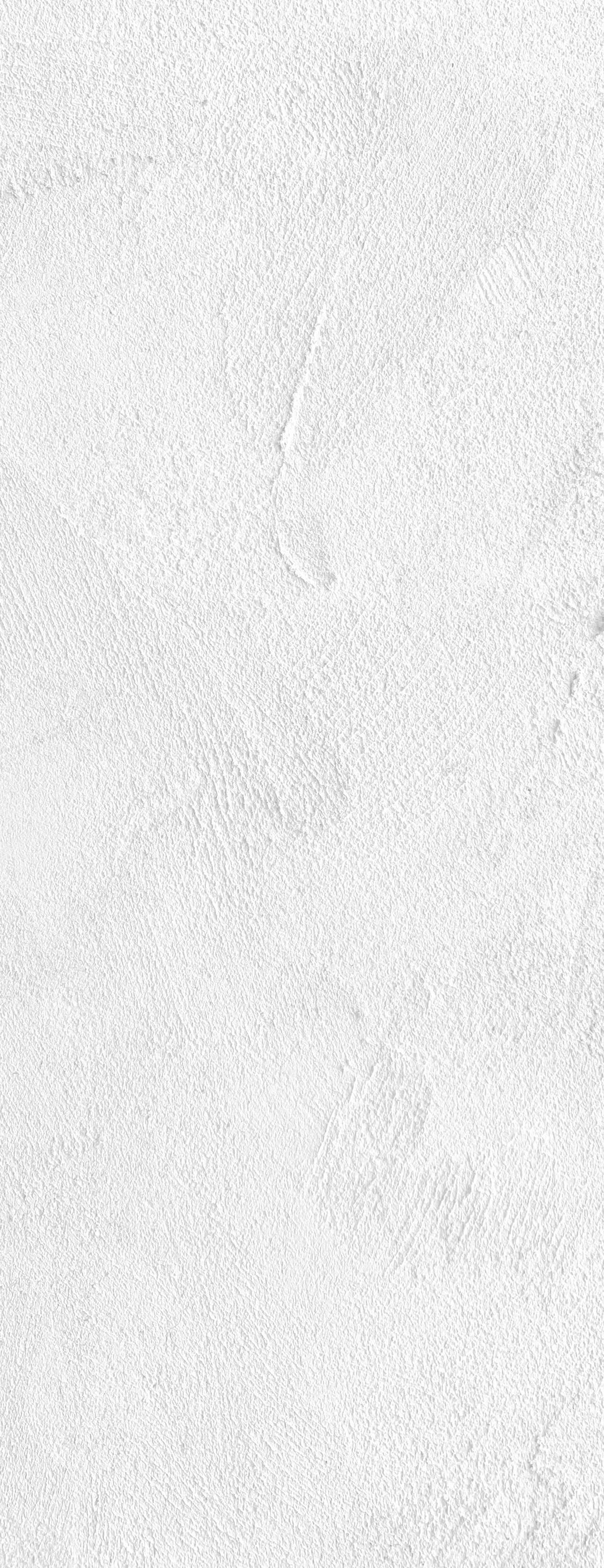
DEPARTMENT OF MUSIC ARTS AND CULTURE FESTIVAL
OCT. 25
NOON
Camino/Founders Patio
HUMANITIES CENTER HALLOWEEN WEEK
OCT. 27–31
Humanities Center, Saints Tekakwitha and Serra Hall
DEPARTMENT OF ART, ARCHITECTURE + ART HISTORY
JULIAN CASTRONOVO
NOV. 12
4 P.M.
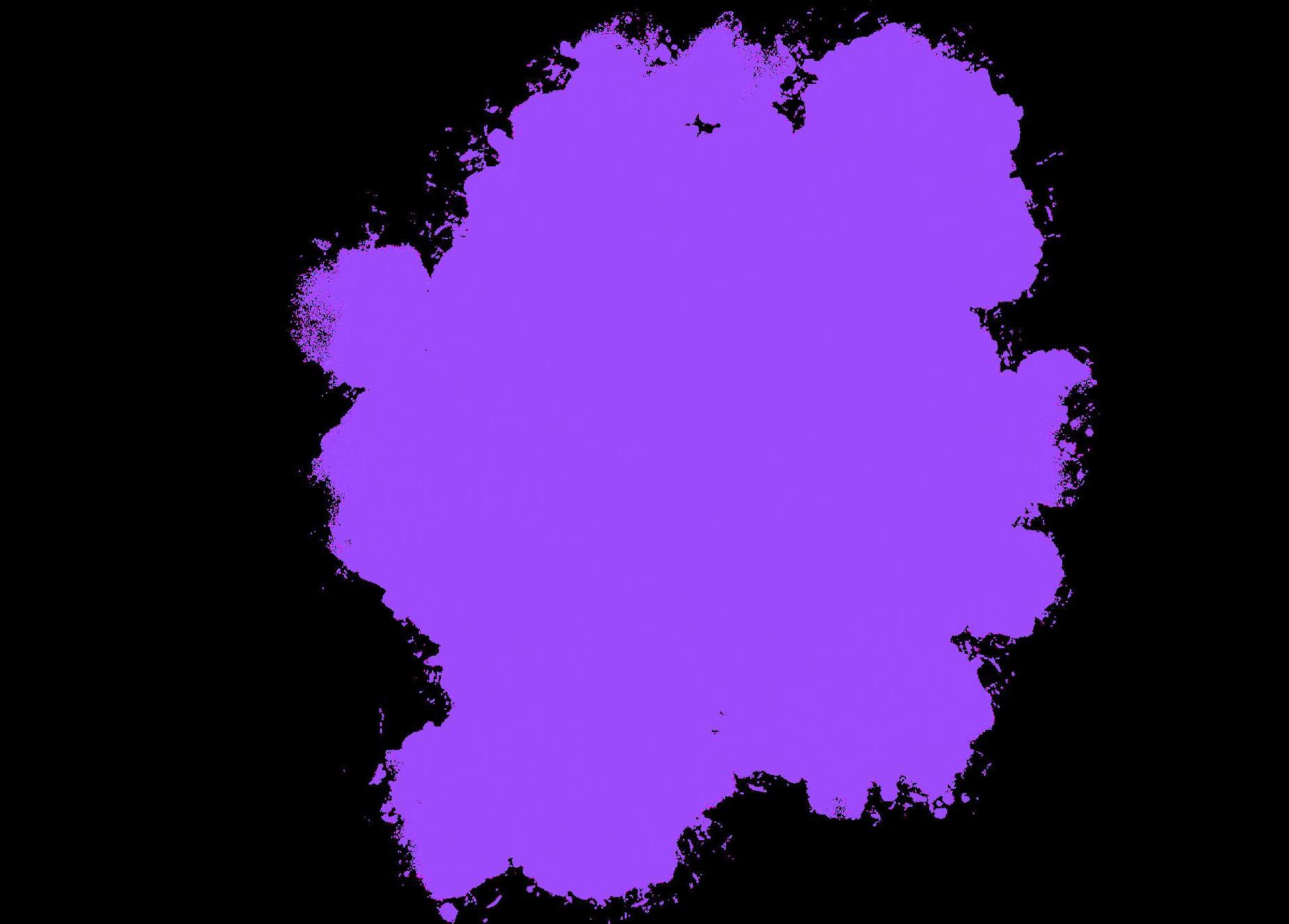
Warren Auditorium, Mother Rosalie Hill Hall
DEPARTMENT OF THEATRE SPRING AWAKENING
NOV. 20–23
Studio Theatre, Sacred Heart Hall
DEPARTMENT OF MUSIC USD STRINGS
DEC. 3
7:30 P.M.
Joan B. Kroc Institute for Peace and Justice Theatre
DEPARTMENT OF MUSIC USD JAZZ ENSEMBLE
DEC. 8
7:30 P.M.
Shiley Theatre, Camino Hall
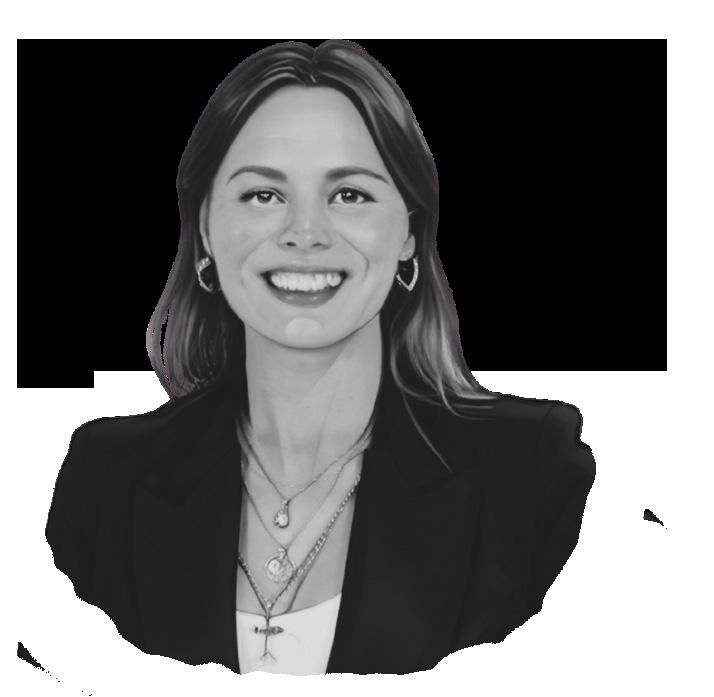
“I help students think about how different academic disciplines can contribute to nuanced understandings of music.”
Charissa Noble, PhD
“Everybody enjoys and is curious about music,” she says. “If you majored in music and that’s on your job application, it’s an instant win. It makes you intriguing to people. You stand out among other applicants.”
Undergraduate research goes beyond working in laboratories, delving into archival research and assessing the results of data collection: it’s about discovery in the truest sense of the word. Students learn what it feels like to follow a concrete problem to a viable solution, to hit and overcome roadblocks and to mold ideas into shape within a collaborative ecosystem.
“Our students are introduced to cutting-edge research by the faculty members in their classrooms; our faculty’s research ideas are shared with their students in a variety of ways,” explains Dean Norton. “One of the expectations for most of our departments is that faculty will work alongside students.”
At USD, students know from day one that they’re welcome, that they belong and that their contributions are valued. That intrinsic connection ensures that research is woven into the very fabric of their learning, building a foundation that can reverberate for a lifetime.
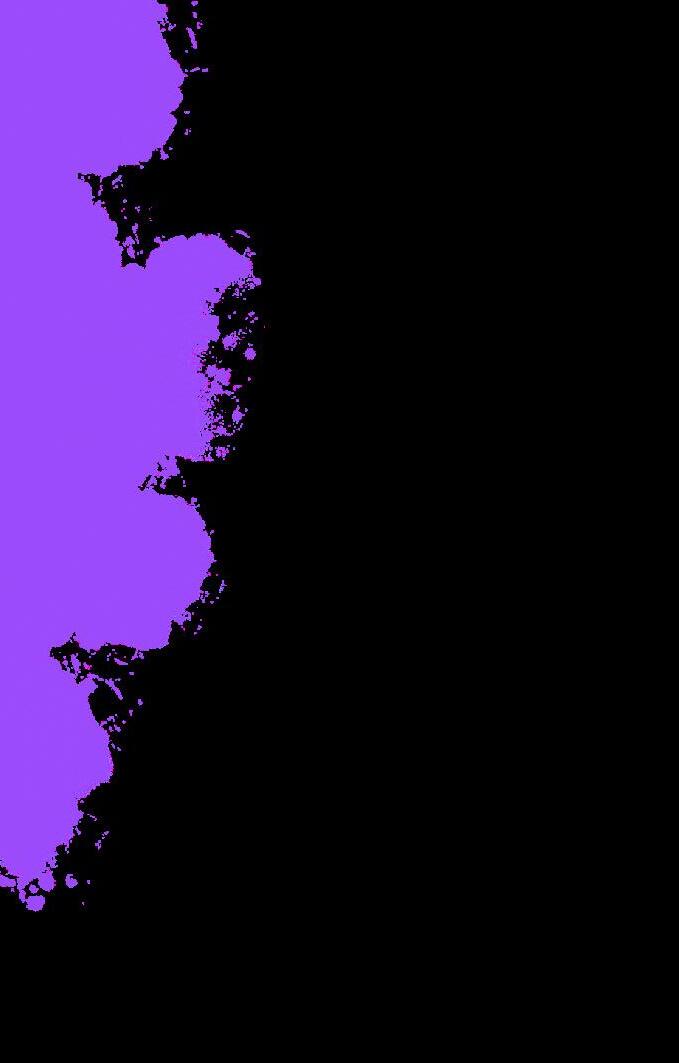
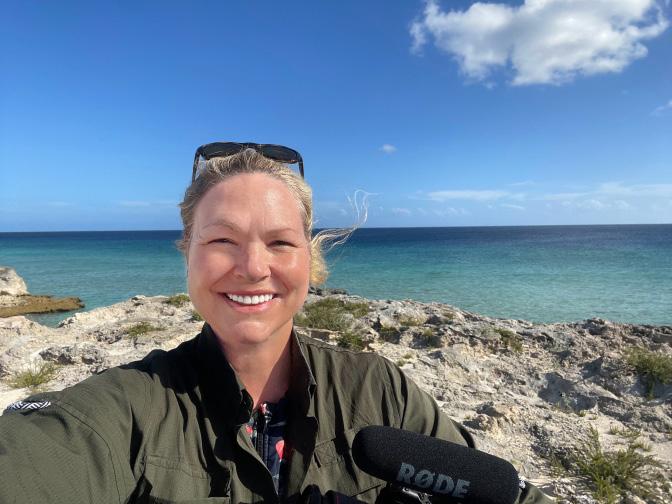
MichelleKennedyfilminginThe BahamasduringSpringBreak2024.
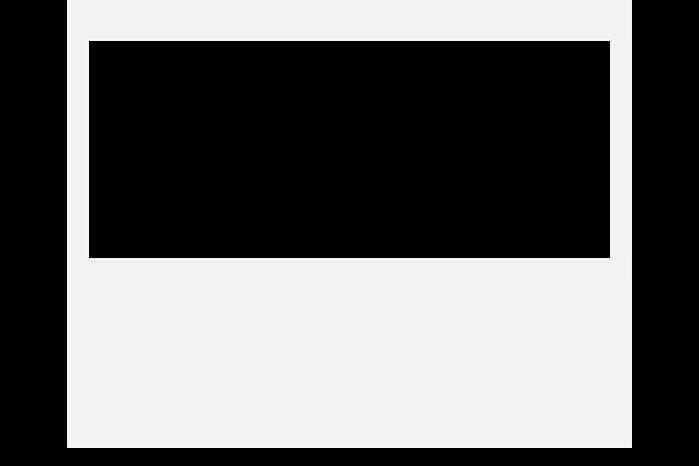

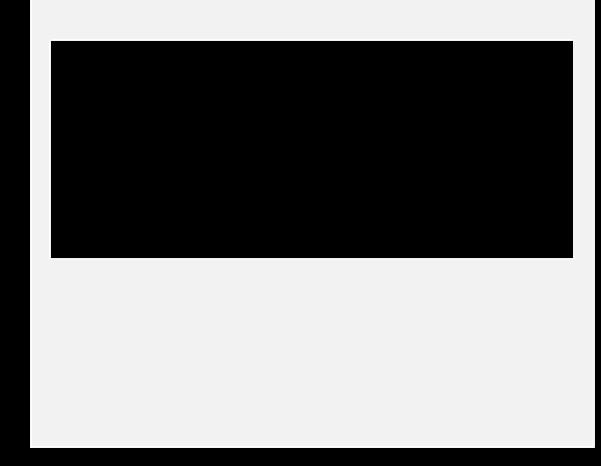
College of Arts and Sciences Marketing Creative Manager Tanya Aubin was nominated for an Emmy Award this year for editing the video, Experiential Learning at USD: Researching the Effects of Human and Environmental Stressors on San Salvador Island, The Bahamas
Aubin edited the video to promote experiential learning, highlighting the course Environmental and Ocean Sciences 494: Coral Reefs, Sea-Level and Climate Change. Through vibrant visuals and student testimonials, the video, shot and produced on location by Director of Marketing and Communications Michelle Kennedy, captures how this hands-on experience fosters a deep connection with ecosystems, blending academic and emotional impact.
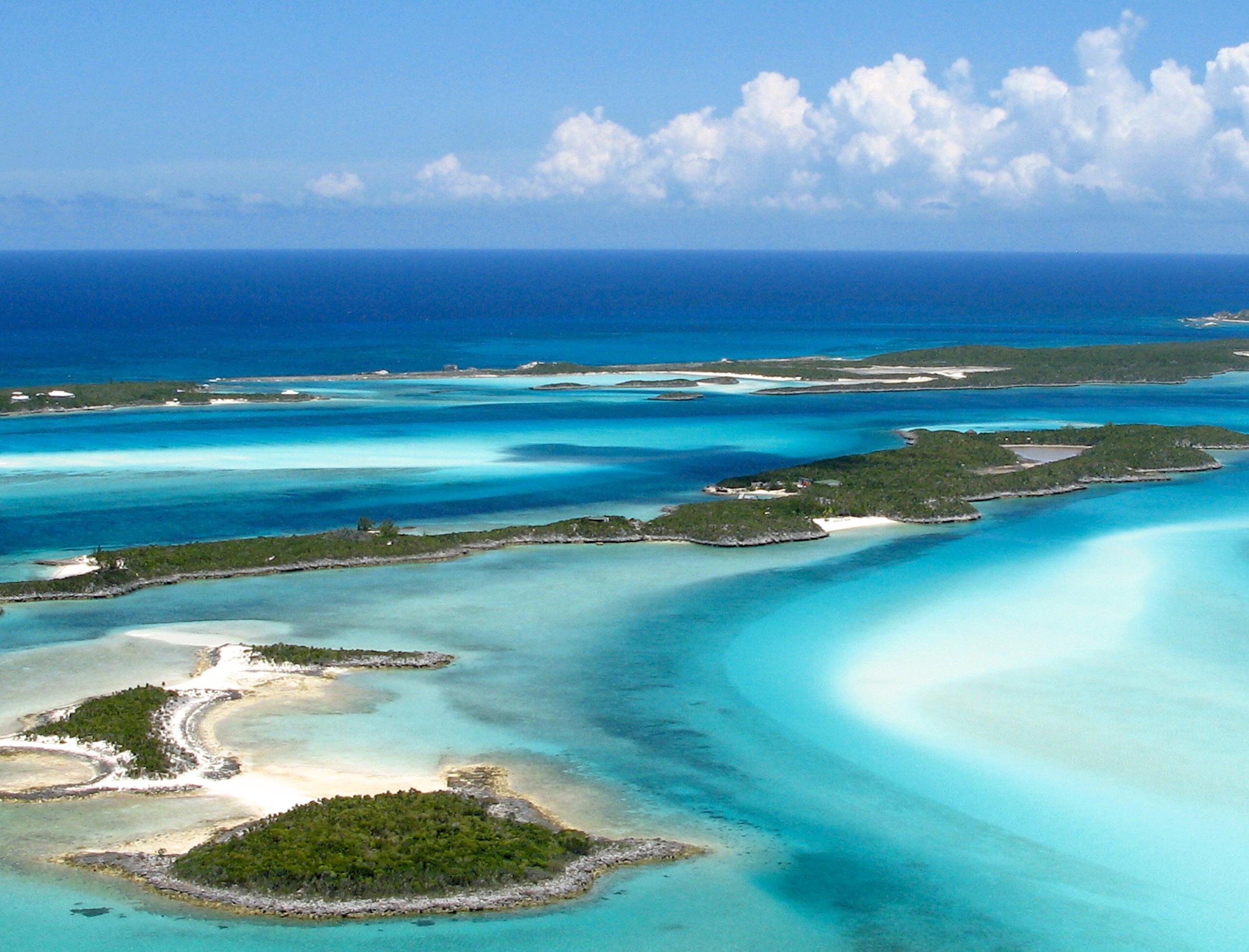
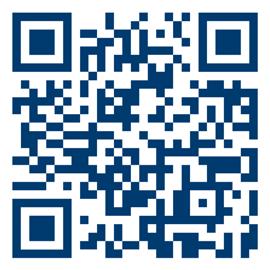
View the video: bit.ly/eosc-bahamas-2024

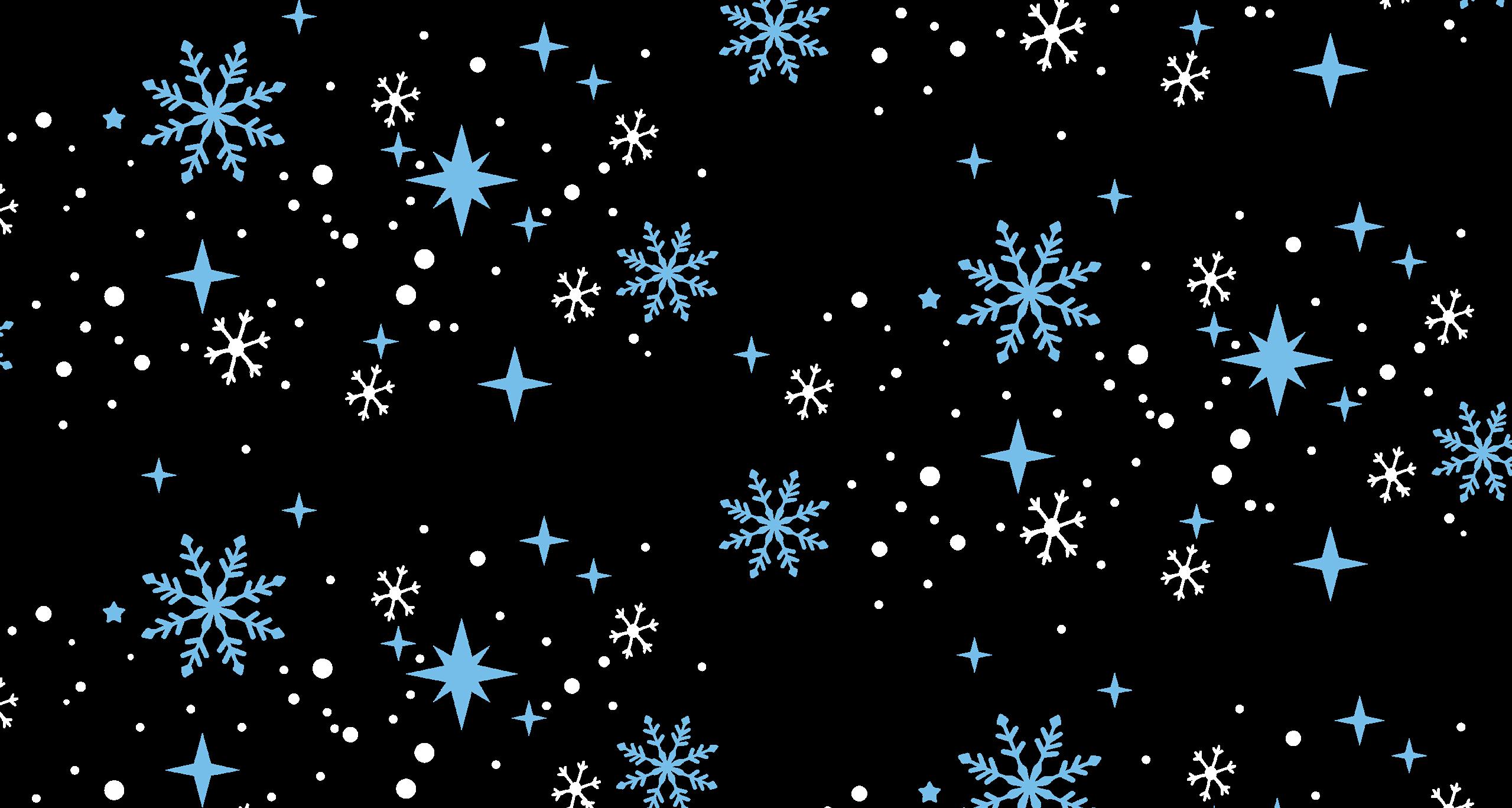
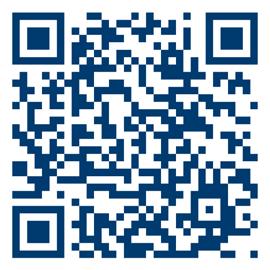
Snag 10% off your favorite College of Arts and Sciences merch — hoodies, T-shirts, hats and more — from Nov. 27 to Dec. 3, 2025 using code CASCYBER online or in the Torero Store.
Shop now: www.sandiego.edu/torerostore/cas
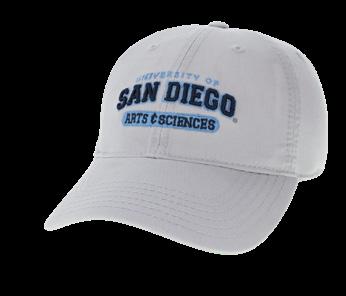
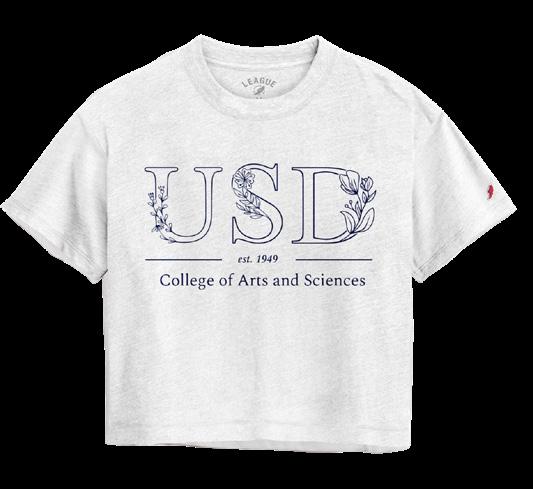
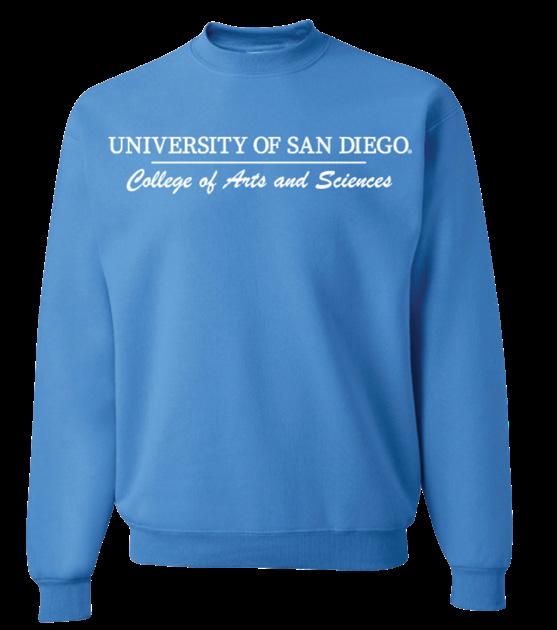


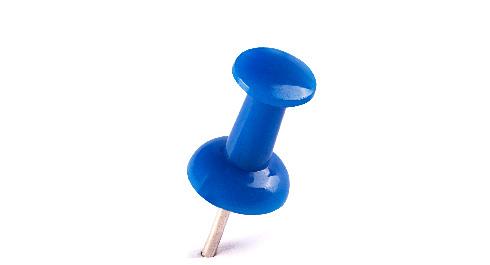
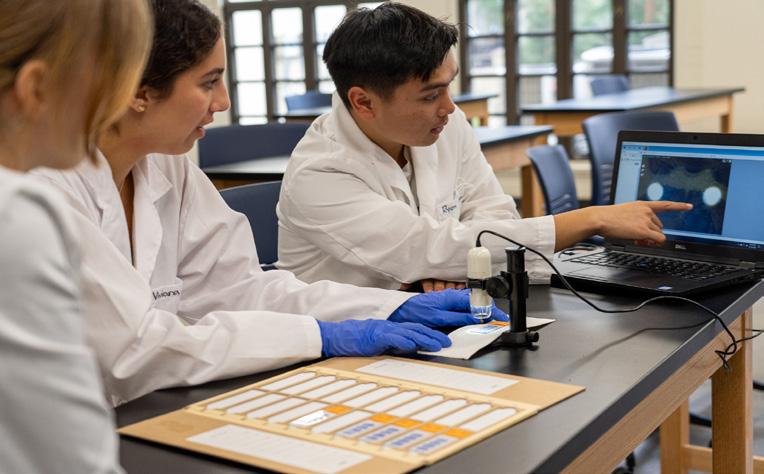
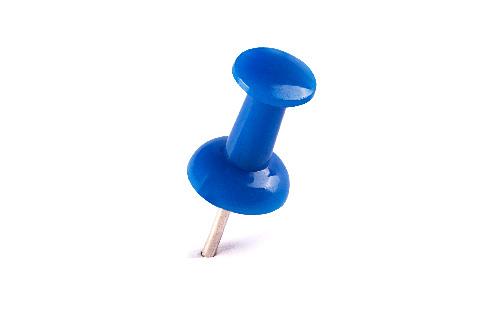
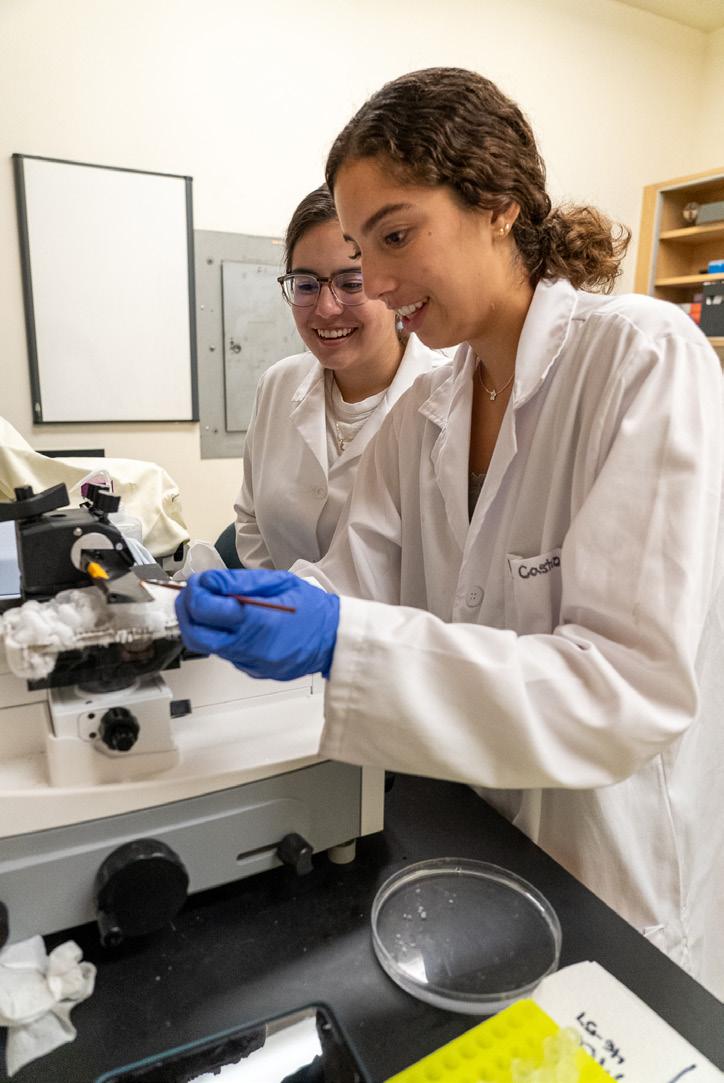

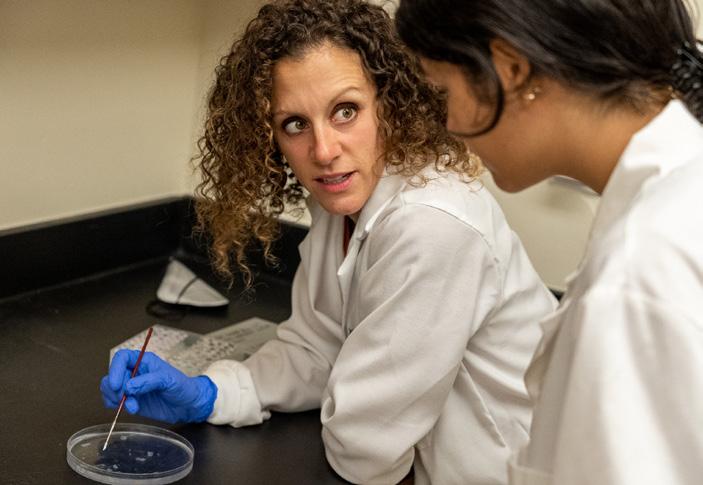
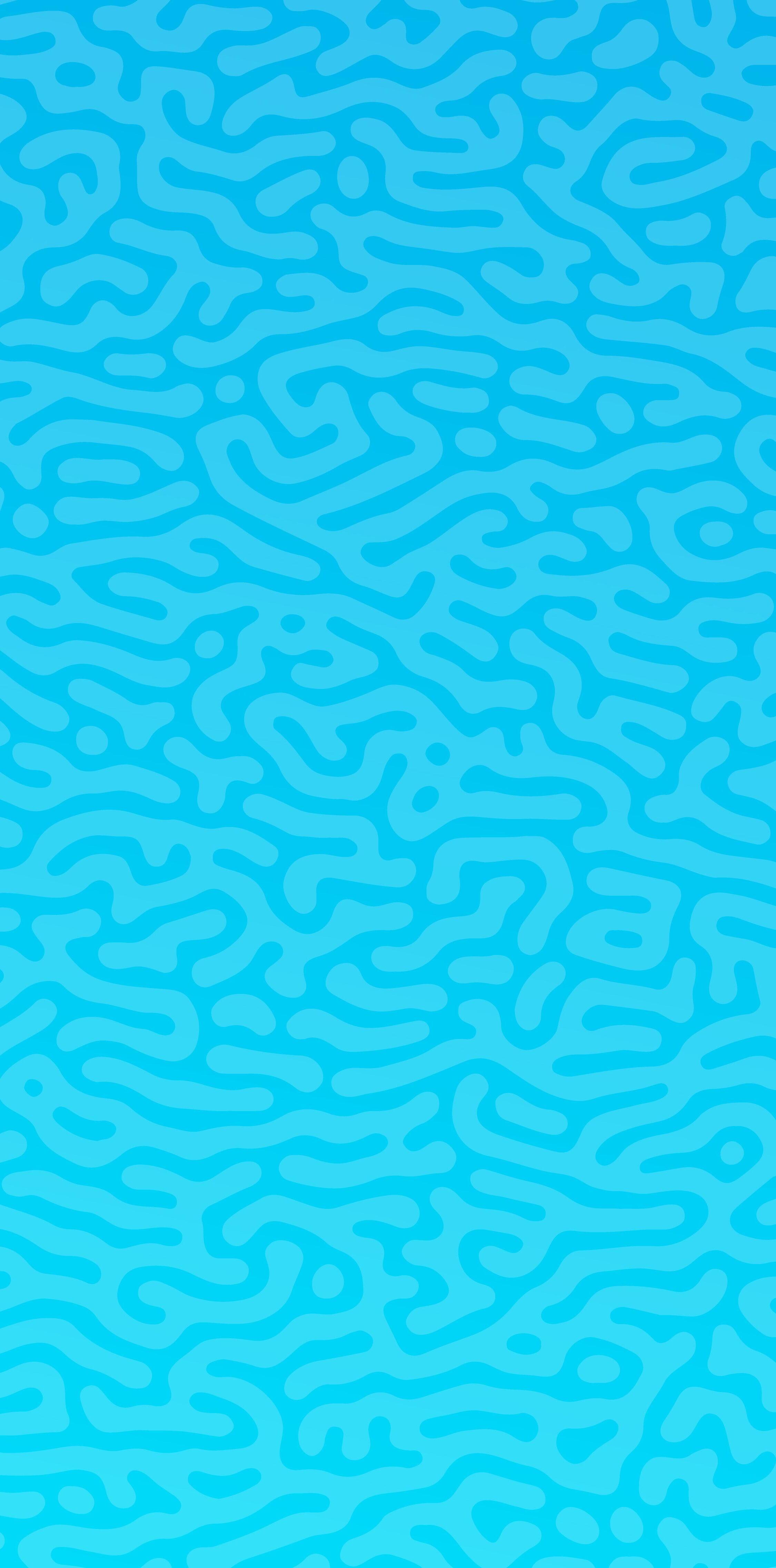
By Lily Anderson
This past year, the University of San Diego’s College of Arts and Sciences launched the Department of Neuroscience, Cognition and Behavior (NCB), marking a significant step in the university’s commitment to interdisciplinary science and undergraduate research. Emerging from what was once a rapidly growing behavioral neuroscience major housed in the Department of Psychological Sciences, NCB is now a stand-alone department offering two new Bachelor of Science degrees: one in neuroscience and one in cognition and behavior.
According to Jena Hales, PhD, associate professor and program director of the Department of Neuroscience, Cognition and Behavior, the college established the department in response to both the specialized expertise of its faculty and the increasing interest of its students.
Previously, the behavioral neuroscience major fell under the umbrella of the psychological sciences as a Bachelor of Arts degree. However, the program quickly became one of the largest majors in the college, and the need for expansion became evident.
In the grand scheme of research, modern neuroscience is a relatively new field. The inherently interdisciplinary approach that neuroscience takes through asking questions about cognition, behavior and neurobiology has drawn widespread national attention. The new structure allows faculty to expand curriculum offerings, develop more lab-based experiences and introduce foundational neuroscience courses earlier in students’ academic journeys.
Among the most exciting additions are increased research opportunities, new computational methodology courses and an innovative “Neuroscience and Society” track, which explores how brain science intersects with broader social systems. These updates are designed to meet the growing demand of students and to align with the evolving landscape of neuroscience as a field.
Through having more room to develop into a robust program, NCB improves connections across USD’s science departments and more accurately reflects the discipline’s scientific methodologies. The new curriculum is grounded in the natural sciences, such as chemistry, biology, physics and calculus.
This change enables unique opportunities for students that were previously unavailable. The focus on natural science enables them to explore cognition and behavior while integrating forms of computational methodology commonly used in cognitive science programs, such as computer science, programming and coding. USD’s emphasis on developing the NCB undergraduate program positions students ahead in a thriving neuroscience community.
With pathways leading to careers in research, medicine, occupational therapy, biomedical engineering and beyond, the NCB department offers students a dynamic foundation for future success and continued innovation in the sciences. As the field continues to evolve, USD’s new department ensures its students are prepared to lead the next wave of discovery.
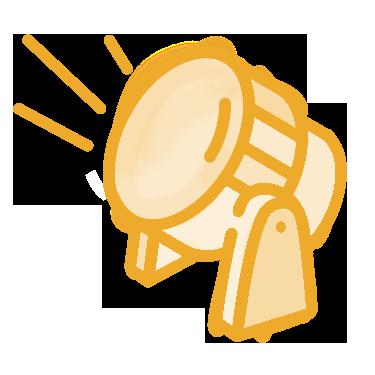
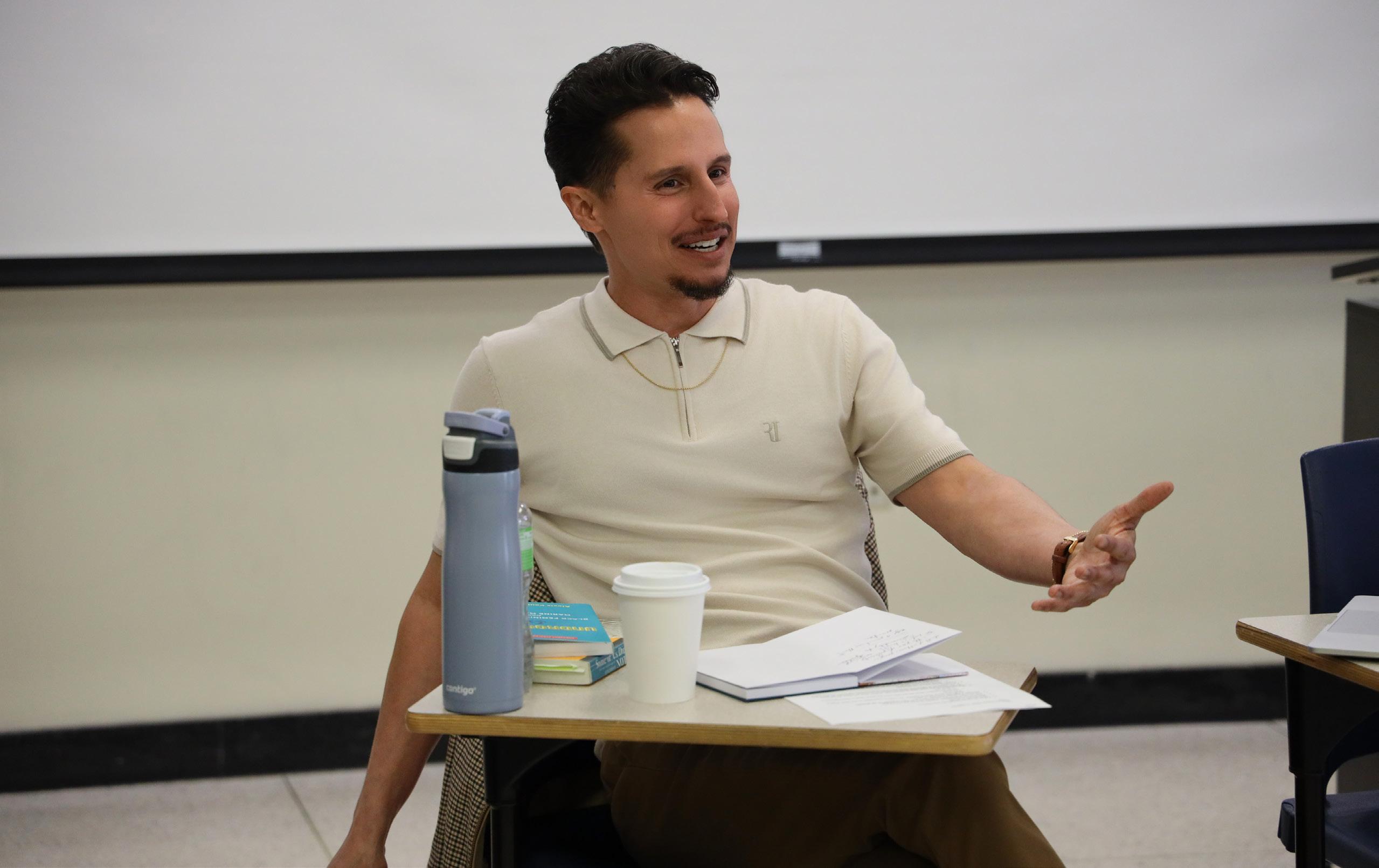
By Jillian Tullis
One of our mutual friends jokingly refers to Greg Prieto, PhD, as the Mayor of Hillcrest, San Diego. You can hardly walk a few feet down University Avenue with Greg without running into someone he knows (I witnessed this on his birthday a few years ago). And like moths to a flame, they were all eager to bask in the glow of his warm smile and share a hug.
I first caught a glimmer of this charisma when I met Greg, a professor of sociology at the University of San Diego, about nine years ago at a Rainbow Educator training. I was captivated by his lecture style, which I would describe as precise and passionate. It was clear Greg cared deeply about the subject matter and our learning. I had only been at USD for about a year, and it made me think I was going to need to step up my game!
I’ve not managed to match his style, but our pedagogy overlapped more explicitly this year when Greg started teaching a course called The Sociology of Living and Dying. Since I’ve been studying and teaching about dying and death for 20 years, I was happy to share ideas for his course.
“You have the confrontation with mortality, and all of a sudden your priorities become much clearer.”
As the semester wrapped up, I was eager to talk with Greg about his experience teaching about a topic so many folks want to avoid. So, on a sunny San Diego afternoon, we found time to sit down and chat about teaching and mortality over a cup of coffee.
Prieto has taught courses about controversial or taboo topics before on subjects such as sexualities, juvenile justice and immigration. He arrived at USD with “advocate’s zeal,” which he developed while studying sociology. Yet the turn toward teaching about the sociology of living and dying was guided by two factors: pedagogy and biology.
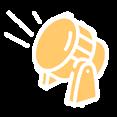
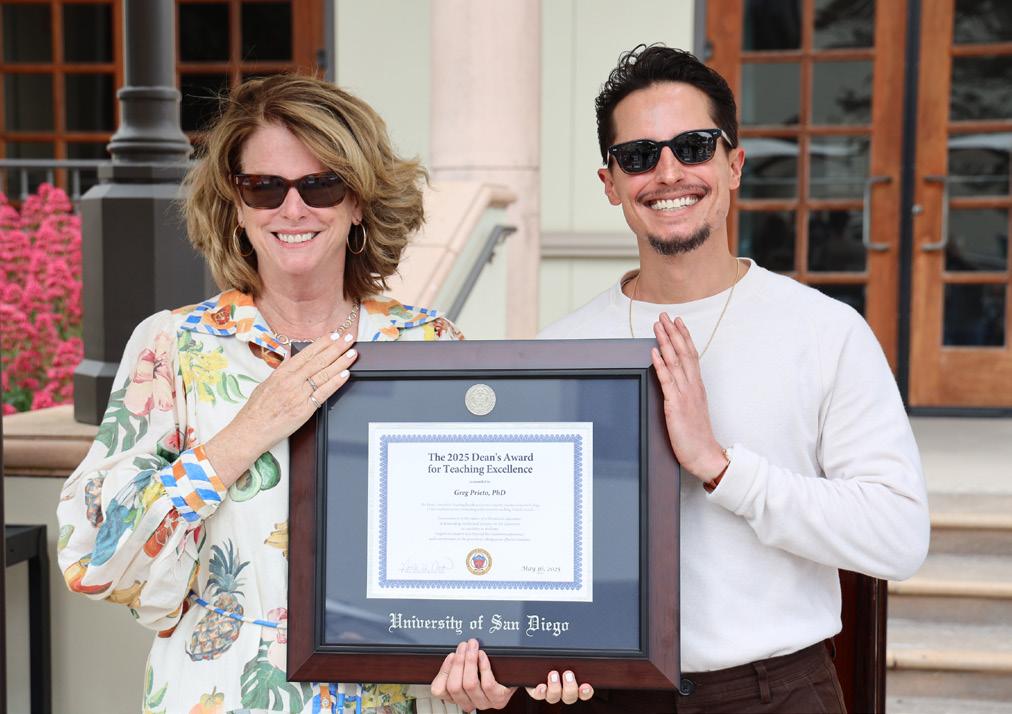
Like many new faculty at the beginning of their careers, “I wanted to make sure everybody knew I was an expert. I think I spent a lot of time building up that wall,” Prieto says. Teaching a faculty-led study abroad course was instructive for Prieto and fundamentally shaped his teaching. “The best moments we had together were the in-between times when we weren’t doing a structured activity, so I think the other big piece [shaping my teaching] was this turn to a more strategically vulnerable, more personal, more holistic, more human approach.” This method fashioned Prieto into an award-winning educator.
“And then I was diagnosed with stage IV colon cancer in March 2024. March 18.” A diagnosis of this sort is devastating but also illuminating. Prieto observed between sips of espresso, “You have the confrontation with mortality, and all of a sudden your priorities become much clearer.”
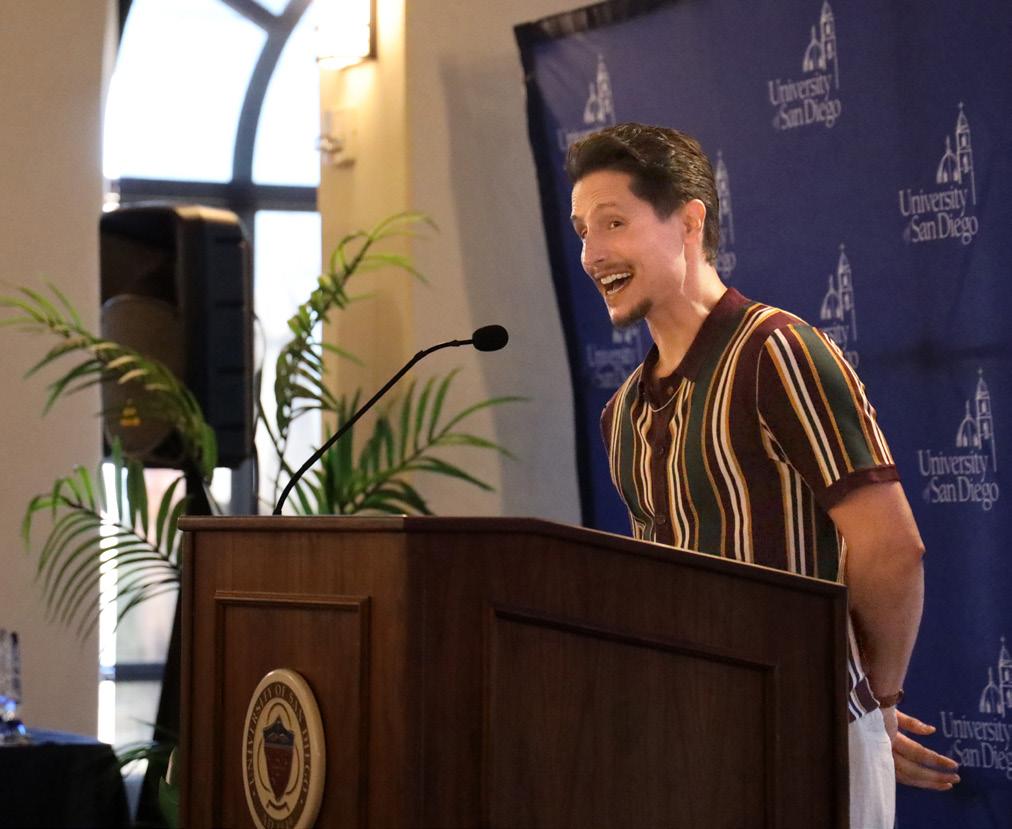
Some folks quip that if faced with a serious illness, they would quit their jobs, run up their credit card debt and start traveling the world to tackle their bucket list. Greg started chemotherapy, which he continues today, but also turned to contemplation and silent preparation, “You sort of sandblast off the surface. What’s underneath this?”
“I couldn’t imagine teaching anything other than the process that I was so bound up with how your own dying inspires a reflection on how you want to live.”
Once the intensity of Greg’s treatment diminished and he was cleared to return to work part-time, he says, “The Dean’s Office sort of pitched me different things that I could do. I thought to myself, ‘Okay, in the time I have remaining, what do I want to do?’ Well, something good for the world. But like, what? What I’m actually good at is teaching. The decision was so obvious. And when I thought about what I would teach, I couldn’t imagine teaching anything other than the process that I was so bound up with how your own dying inspires a reflection on how you want to live.”
My last question: Has there been any magic in Greg’s life since his diagnosis? As he spoke, tears welled up in his eyes and mine. I felt that same passion for teaching that I saw in that training a decade ago.
“Every day, every day, every day, every day. There is this way in which the beauty and the horror of the situation is all braided up together,” he says. “You feel the delicacy of [life], and then you feel the preciousness next. I’m the guy at the music festival who’s crying and everybody’s like, ‘Oh, he must really love that song,’ and I’m like, no, I’m trying to memorize this moment. I never want to forget what this felt like.”
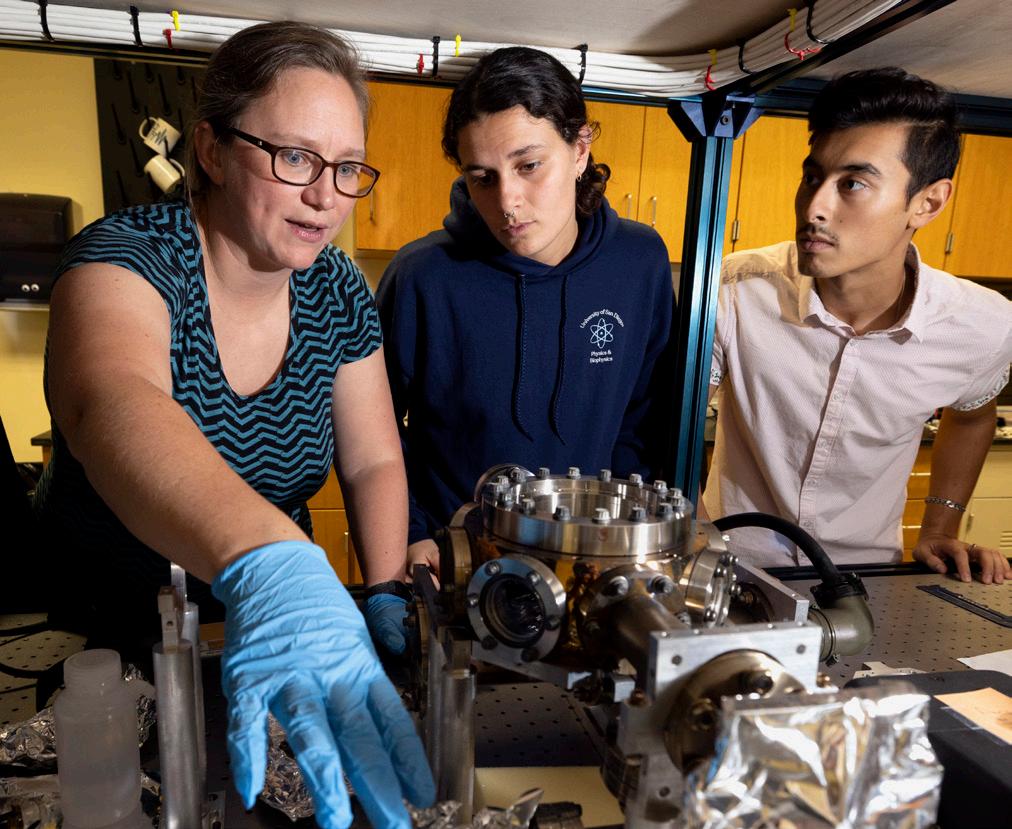
By Jade Terry
Maren Mossman, PhD, is a Clare Boothe Luce assistant professor of physics and biophysics at the University of San Diego. When Mossman talks about quantum physics, she lights up, whether she’s describing atoms at absolute zero or remembering a student’s “aha” moment during office hours. Mossman brings the wonders of quantum science within reach for her students.
At the heart of her work is USD’s Quantum Hydrodynamics Lab, where her team of student researchers study an ultracold state of matter known as a Bose-Einstein condensate. Created by cooling atoms to just above absolute zero, this state of matter allows scientists to observe quantum mechanics in its purest form.
“When atoms get cold, their quantum behavior becomes visible,” Mossman says. “My research often focuses on using these cold atoms to study the fundamental physics at play in other systems by dressing them up to play different roles, which allows us to imitate systems we can’t otherwise study directly.”
USD students can get involved with Mossman’s research early on, often by their third semester, making meaningful contributions to real experiments. From building apparatuses to analyzing data from
national research partners, USD students are not just spectators, they help make things happen.
“My students build components that become permanent fixtures in the lab,” Mossman says. “They design, troubleshoot and collaborate on experiments that prepare them for grad school or industry. Their work matters.”
Outside the lab, Mossman is also a leading voice for inclusion in STEM. She founded USD’s Physics Identity Program to support women and underrepresented students in physics and engineering. In 2024, she led the Conference for Undergraduate Women in Physics (CUWiP), now known as the Conference for Undergraduate Women and Gender Minorities in Physics (CU*iP), at USD, and has since become a member of the leadership for the national community of conferences.
Mossman was named a 2024 Cottrell Scholar, one of the nation’s top honors for teacher-scholars, and received a National Science Foundation grant to expand her lab’s capabilities. That funding also supports student research and a public speaker series bringing quantum science to the San Diego community.
Mossman is also a co-investigator on NASA’s Cold Atom Lab aboard the International Space Station. Using data sent down to Earth from the apparatus onboard the station, she investigates ultracold quantum states in microgravity.
“My goal is to help students gain confidence, whether that is building an optical setup, writing code or knowing when to ask for help.”
Although she collaborates with NASA, she emphasizes that her most meaningful work happens on campus with students.
“Physics is hard,” says Mossman. “But research and labs are where ideas become real. My goal is to help students gain confidence, whether that is building an optical setup, writing code or knowing when to ask for help.”
In USD’s tight-knit physics department, where mentorship matters as much as measurement, Mossman continues to build not only experiments but a legacy of curiosity and community.

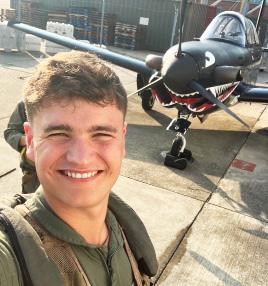
By Eduard Hovhannisyan
Teddy Montague is both a mathematics major and a member of the Naval Reserve Officers Training Corps (NROTC), two paths that might seem worlds apart.
Before formulas or formations shaped his future, Montague’s first inroad to campus life came through athletics. During his first year living in Camino Hall, he noticed that several of his hallmates played on the rugby team, and their welcoming presence left an impression. “They’d always be really respectful and cool whenever you talked to them,” says Montague, “they were very down-to-earth.” Inspired by that energy, he joined the team and found a fast track to community.
Paired with his involvement in NROTC, Montague began building a strong social foundation through relationships with both teammates and fellow midshipmen.
In addition to community, NROTC offered Montague a sense of purpose, a future career and access to education.
A major contributor to his success in the program, he says, has been his background in mathematics.
“Some of the classes are pretty interesting,” he notes. “Anything that applies to real-world problems, like engineering … I like that stuff because I can see it in front of me.” The practical problem-solving skills he has gained as a math major greatly aid his work in NROTC, especially in technical Navy roles like submarine systems, nuclear reactors and flight training.
While the coursework is challenging, Montague says USD faculty members have made all the difference. “Every professor in the math department is really good and professional,” he notes, “even if you have a problem not with the class they’re in, they’re still willing to help.”
Montague’s academics and athletics have shaped him into a more capable student and leader, but most of all, they’ve helped him feel connected. Building relationships has been the most meaningful part of his college experience.
“Having conversations with people and being social is the big emphasis for me — the community here is really accepting.”
“Having conversations with people and being social is the big emphasis for me — the community here is really accepting,” he says. For him, the key to a fulfilling experience has been being brave enough to put himself out there and become part of the community.
Looking back, Montague reflects on his growth with a fitting analogy. It’s kind of like a tree,” he says, “I was kind of just growing, building the base from the roots, but once springtime came, I was getting a lot more social and things were clicking.”
Now in his final year at USD, Montague plans to continue building relationships and showing up with purpose in both his academics and his training. Following graduation, he will commission in the Navy, leading with the same purpose and connection that defined his time at USD. Montague’s story is one of curiosity, connection and commitment, and one that will continue to branch out.
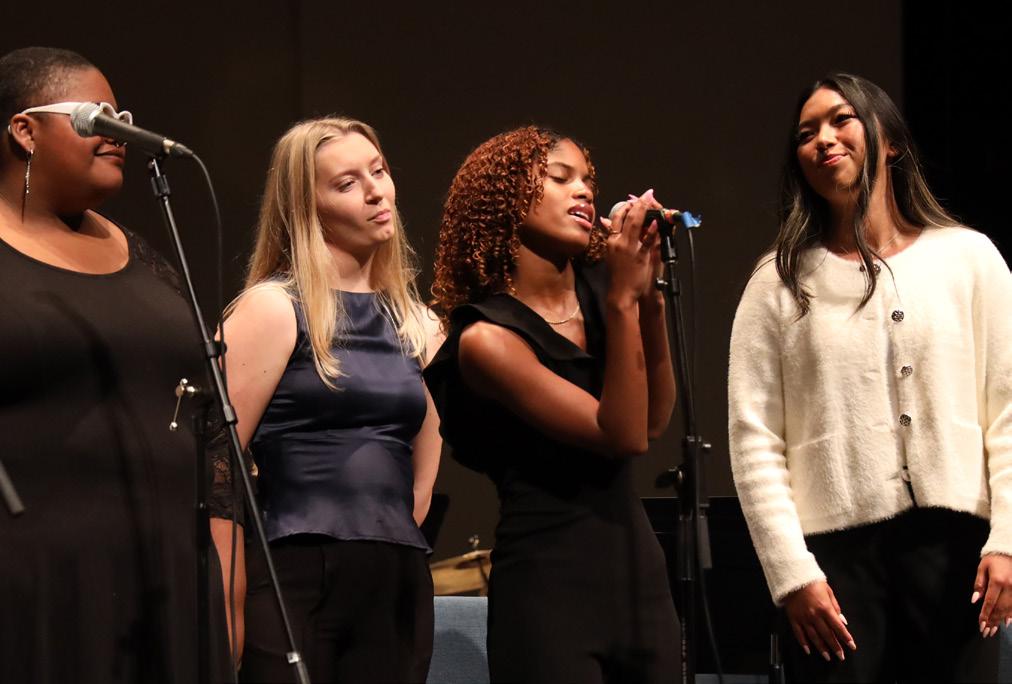
Kai Hopkinson-Ramsammy’s Legacy of Redefining Representation
By Israel Fox
When Kai Hopkinson-Ramsammy first came to the University of San Diego, she was unsure of what the future held. Coming from the Republic of Trinidad and Tobago, she was unfamiliar with college life in California. “I’ve never been in a predominantly white environment before,” Hopkinson-Ramsammy states, “I worried that I would not be able to relate to people.”
She initially felt out of her element in her classrooms. Adjusting to new teaching styles and cultural differences proved to be difficult. “I was ready to go when I first got here,” she says. “I definitely felt like I didn’t belong.”
In search of community, Hopkinson-Ramsammy joined the Student Support Services Summer Bridge Program, which assists students in succeeding on campus. Meeting people who shared her identity made her feel connected and encouraged her to be more outgoing. Programs like this shaped her experience on campus, leading her to positions of leadership.
Over the last four years, she has been active in many programs across campus. With French, Spanish and music minors in the College of Arts and Sciences, she participates in Choral Scholars, USD Jazz and the Gospel Choir. She’s also part of the College Corps and the National Society of Black Engineers, spaces where Hopkinson-Ramsammy can explore all sides of herself alongside a community of Changemakers.
Among her many campus roles, HopkinsonRamsammy highlights her time as the co-president of the Black Student Union (BSU). “A lot of my involvement is tied to cultural groups,” she explains. “I find that I connect with those people because we have similar stories.”
Passionate about social justice, HopkinsonRamsammy advocates for underrepresented students and feels her classes have given her a better understanding of how to do so. “My experience as a psychology major showed me the importance of representing people and acknowledging the nuances of the human experience,” Hopkinson-Ramsammy states.
“My experience as a psychology major showed me the importance of representing people and acknowledging the nuances of the human experience.”
Through BSU, she has expanded how Blackness is represented on campus. One of her proudest moments was hosting Crown and Culture, a celebration of her roots and an invitation for the entire community to creatively explore Black identity. The event featured hair care vendors, performers playing traditional music and local Caribbean restaurateurs providing plenty of food. This effort, along with her ongoing advocacy, helped broaden diverse perspectives on campus and fostered a deeper sense of belonging.
Set to graduate in January 2026, HopkinsonRamsammy aims to leave an impact. “When I leave USD, I want to be remembered as somebody who cared and showed up.” She seeks to highlight the relationships she has fostered with her professors, other students and the communities she was part of.
Hopkinson-Ramsammy wants to continue to grow personally, uplift and create space for others, and encourages others to also find the courage to get involved. In the end, she hopes her fellow students realize that while leaning into community is essential for growth, the only person they need to be seen by is themselves.

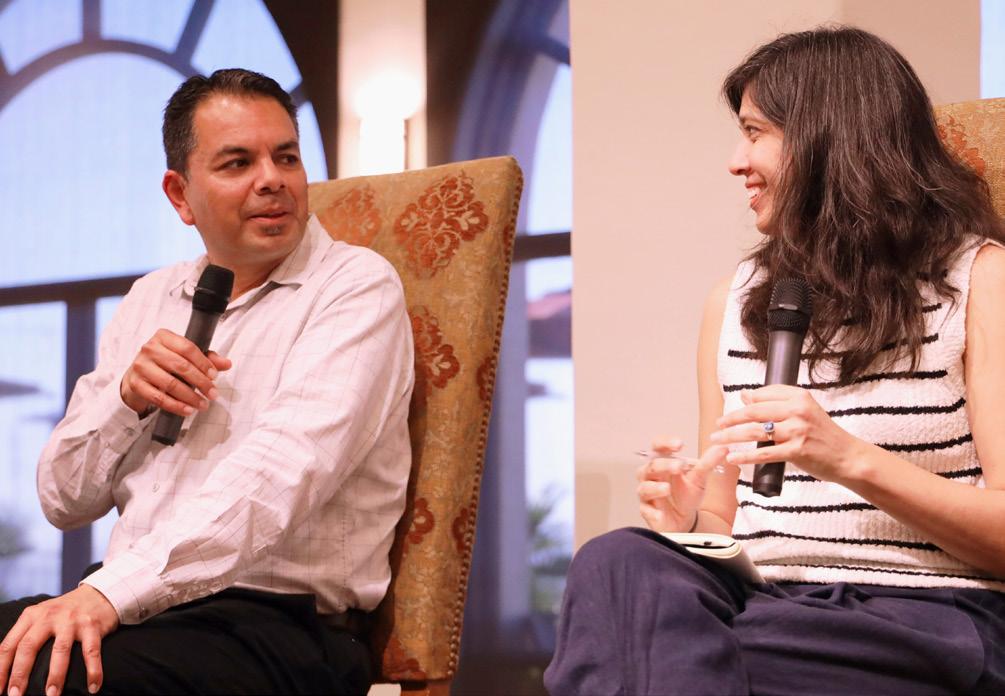
Rios ’95 on
By Elleanor White
Alumnus Pedro Rios ’95 has built his life’s work around a simple yet transformative mantra: accompaniment over empowerment. As director of the American Friends Service Committee’s U.S.-Mexico Border Program for more than two decades, Rios supports USD’s mission and vision to treat all people with dignity. As a graduate of a university on an international border, his education prepared him for this kind of work.
“We’re all teachers and we’re all students in this human experience. I really believe that applies in human rights work — especially if we’re committed to ensuring that human dignity is respected.”
“[Empowerment] presumes that I have the power in a one-way direction,” Rios explains. “What I’ve learned over time is it’s more about where I could be a resource for someone, just as someone could be a resource to me.”
This ethos has shaped Rios’ commitment to justice, encompassing efforts ranging from coalition building to human rights education at every level of government. Whether working for access to Friendship Park at the U.S.-Mexico border or leading
“Know Your Rights” workshops, his approach centers collective action and shared learning.
“We’re all teachers and we’re all students in this human experience,” he says. “I really believe that applies in human rights work — especially if we’re committed to ensuring that human dignity is respected.”
For Rios, this commitment was formed early in life. As a Chicano growing up in South San Diego and frequently crossing the border to visit family, he saw firsthand the barriers — both literal and symbolic — that divide our world.
Later in life, Rios immersed himself in both word and action as an English major and psychology minor in the College of Arts and Sciences. He found his footing in the liberal arts courses that reached beyond the dominant framework to include material he could truly relate to.
Participating in USD student groups and exploring the rights of those living on international borders served as his first exposure to community organizing. Experiences like these helped to lay the foundations of mutual empowerment and collective learning that define Rios’ work today.
“That time was consequential to how I fell into my professional career path and what I do today as a human rights advocate,” he explains. “I see it as a continuum that would not have been possible without having taken ethnic studies courses at USD that helped me understand how I was experiencing the world then and how I respond to the political climate today.”
For Rios, participation in this kind of justice work isn’t limited to voting booths or citizenship status.
“It represents the cultural, political citizenship that I think everyone has the ability to manifest. Whether it’s a doctor, a schoolteacher or a construction worker, everyone has skills that offer an opportunity to shape the world around us.”
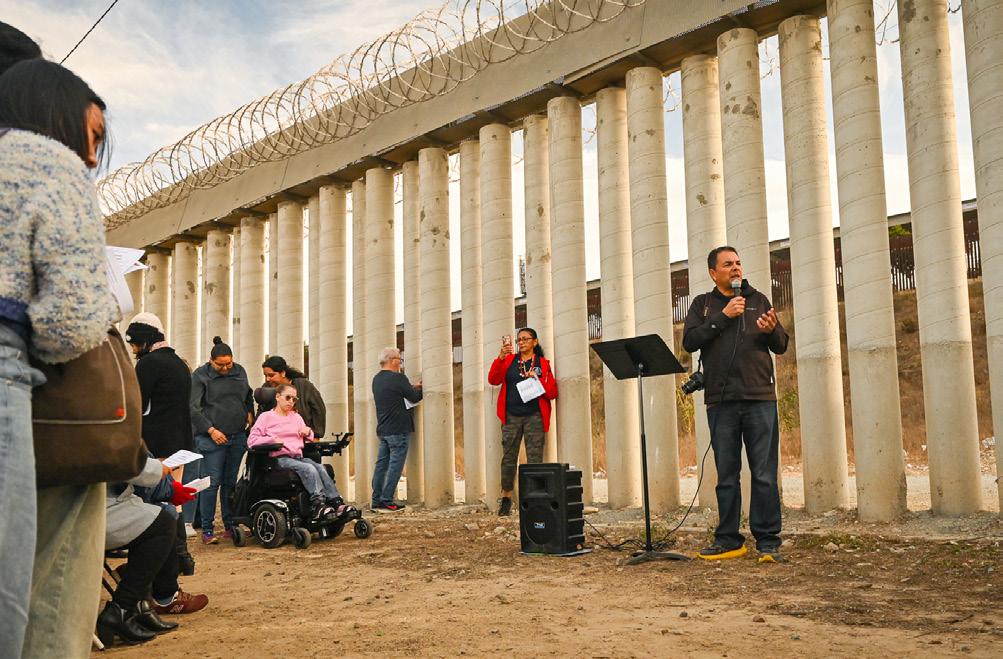
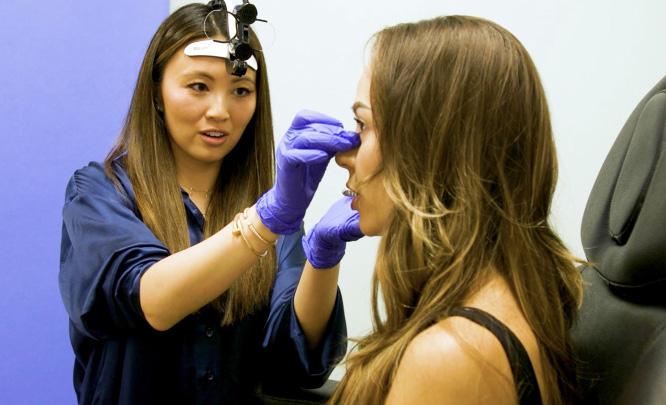
Dr. Janet Chao’s Global Path Through a Liberal
By Lily Anderson
University of San Diego alumna Dr. Janet Chao ’14, who earned a BA in biophysics, epitomizes the strength of a liberal arts education. As a facial plastic surgeon in La Jolla, California, Dr. Chao credits her undergraduate experience as a USD College of Arts and Sciences student as the foundation of her medical career.
During her time as an undergraduate, Dr. Chao took advantage of the college’s Pre-Health Advising program.
“As the first physician in my family and the child of immigrant parents, I didn’t have a roadmap,” Dr. Chao explains. “I had no idea what to expect when it came to applying to medical school. The Pre-Health Advising team helped me navigate that uncharted territory with practical rp-esources, clear guidance and unwavering support.”
The Pre-Health Advising program within the College of Arts and Sciences wasn’t the only key factor in Dr. Chao’s positive experience at USD. She was a Residential Assistant, joined a sorority, danced with the USD Dance Company, worked multiple jobs and spent life-changing time abroad.
“Studying abroad on Semester at Sea was probably the most transformative experience,” Chao reflects. “Traveling to different countries and observing global healthcare systems firsthand opened my eyes to major disparities in access and care. It’s what ultimately inspired some of the work I do now, including international cleft lip and palate surgery.”
The ability to take a wide range of classes while traveling the world also made a lasting impression on Chao, with courses like Poetry and Global Studies becoming one of her favorites on board. Beyond studying abroad, Chao also valued the College of Arts and Sciences’ liberal arts approach on campus. She still reflects fondly on her Acting I class, which pushed her to broaden her perspectives and gave her skills she would not have developed otherwise. She continues to apply those skills today in public speaking, medical conference presentations and on-camera work.
While spending time volunteering in hospitals during the school year and working at a surgical device company over the summers, Chao realized what she valued most: human connection. This, along with her fascination with the precision of surgery, is what inspired her to pursue a career as a physician.
“Traveling to different countries and observing global healthcare systems firsthand opened my eyes to major disparities in access and care. It’s what ultimately inspired some of the work I do now.”
After graduating from USD, Chao went on to complete medical school at George Washington University and earned a prestigious residency in Otolaryngology-Head and Neck Surgery at Yale University, along with a fellowship in facial plastic and reconstructive surgery. Now, she specializes in aesthetic surgery, particularly facelifts and rhinoplasties. For Chao, helping people regain their confidence is extremely rewarding. Her time at USD continues to shape her aspirations, imbuing mission and purchase in her work and leaving a lasting impact on both her professional and personal growth.
“USD gave me the freedom to explore, the encouragement to think big and the practical tools to succeed,” Chao says. “It helped me find my voice and develop confidence in who I was becoming. Today, whether I’m in the operating room performing facial plastic surgery, volunteering through Fresh Start Surgical Gifts at Rady Children’s Hospital or operating on children on a mission trip, I carry those same values of curiosity, service and compassion with me.”
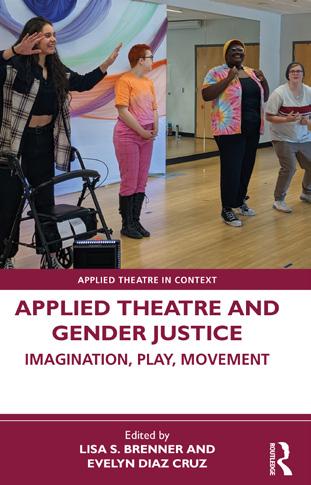
Applied Theatre and Gender Justice: Imagination, Play, Movement
Evelyn Díaz Cruz, MFA, Professor of Theatre
Evelyn Díaz Cruz is the co-editor of Applied Theatre and Gender Justice. This second book in the Applied Theatre series includes the work of international scholars and practitioners. Building upon the strengths of communities advocating for justice and equity, the book highlights the value and efficacy of using applied theatre to address gender in a wide range of settings. This accessible volume explores the challenges and offers concrete best practices, accompanied by real-world case studies and reflective roundtable discussions. This book is a vital resource for educators, artists and activists working at the intersection of performance and social change.
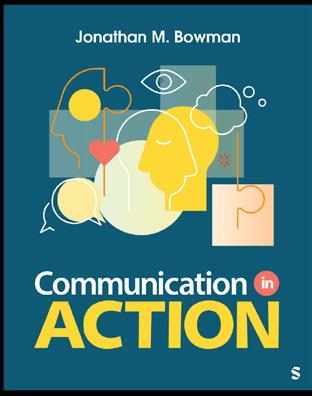
Communication in Action
Jonathan Bowman, PhD, Professor of Communication
Communication in Action provides students with a practical and inclusive guide to mastering communication skills that foster meaningful change. Grounded in real-world examples and interactive activities, the text equips students to navigate personal, social and professional settings with greater self-awareness and purpose. Bowman emphasizes the power of communication in addressing issues of privilege, justice and community, empowering students to become thoughtful and engaged communicators in both civic and everyday life.
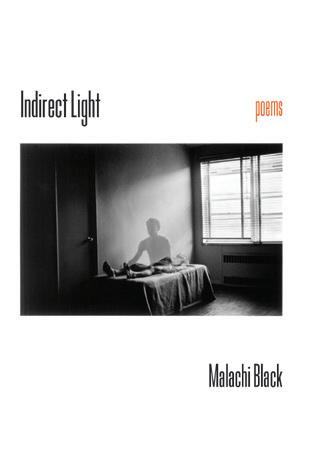
Malachi Black, PhD, Associate Professor of English
In Indirect Light, Black memorializes lost friends and events shaped by addiction and survival. Against the backdrop of the opioid epidemic, the book of poetry serves as a luminous act of tribute — grappling with grief, restoration and resilience. Through vivid, haunting imagery, Black offers readers a quiet, persistent hope: that even in mourning, the indirect glow of memory can illuminate what endures in love, grace and loss.
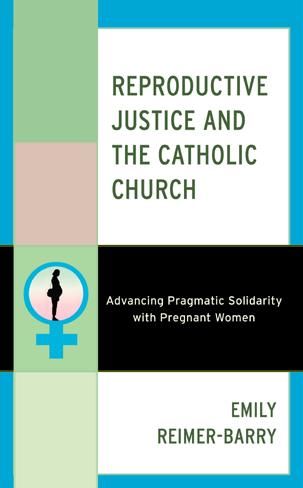
Reproductive Justice and the Catholic Church: Advancing Pragmatic Solidarity with Pregnant Women
Emily Reimer-Barry, PhD, Professor of Theology and Religious Studies
In Reproductive Justice and the Catholic Church, Reimer-Barry invites a compassionate and nuanced conversation around miscarriage, stillbirth and abortion. Drawing from Catholic social teaching and reproductive justice, she critiques moral absolutism and calls for a Church that accompanies women rather than dictating to them. The book challenges both pro-life and pro-choice binaries, urging structural reform and spiritual care that honors women’s dignity and the complex moral realities of pregnancy loss.
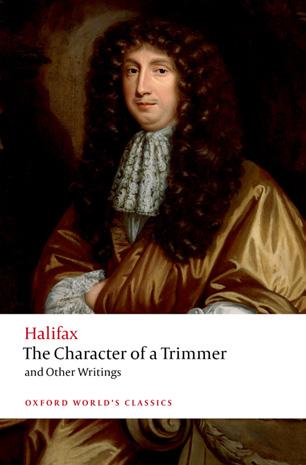
The Character of a Trimmer and Other Writings by George Savile, Marquess of Halifax
Brian Clack, PhD, Professor of Philosophy
The Character of a Trimmer is co-edited by Clack and William Gibson, PhD, Emeritus Professor of History at Oxford Brookes University. The book offers a timely exploration of moderation in politics through the writings of George Savile, Marquess of Halifax — an influential 17th-century statesman and key figure in England’s Glorious Revolution of 1688. This edition collects Halifax’s sharp, anonymously published essays advocating for pragmatism over extremism. With insights on governance, morality and human nature, his reflections remain strikingly relevant in an age of political polarization and ideological excess.
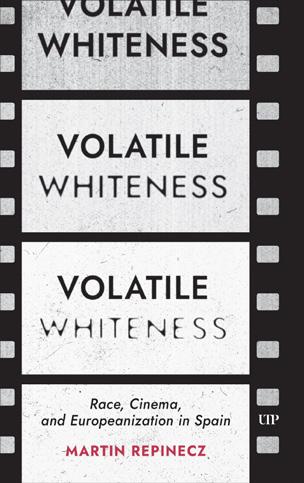
Race, Cinema,
Martin Repinecz, PhD, Associate Professor of Languages, Cultures and Literatures
Volatile Whiteness examines how Spanish popular films from the 1960s to the 1980s reshaped national identity during a period of economic growth, political transition and cultural upheaval. Through genres like comedy, musicals and religious cinema, the book reveals how film worked to align Spain with global whiteness — recasting racialized others and reinforcing social hierarchies that continue to influence public perception and the lived experiences of racial minorities today.
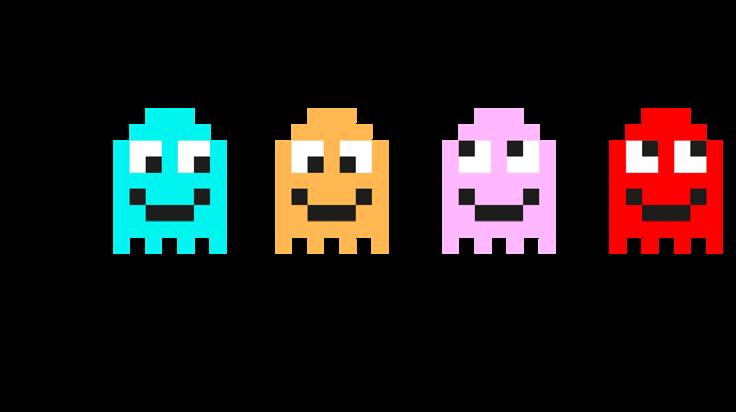
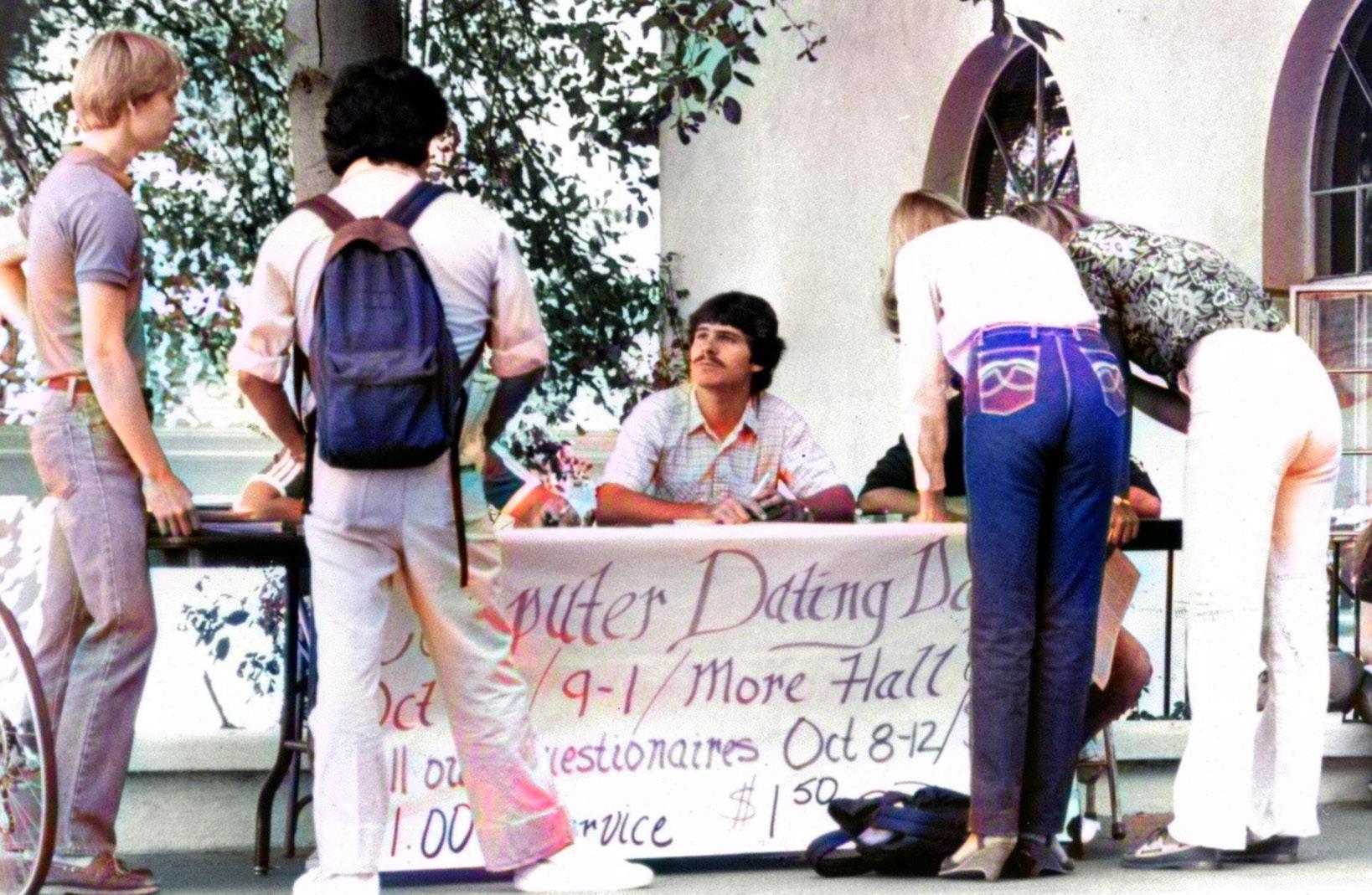
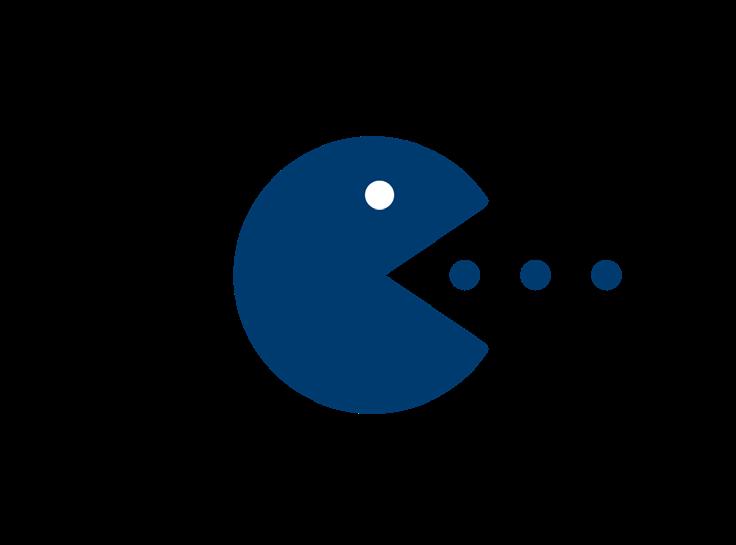
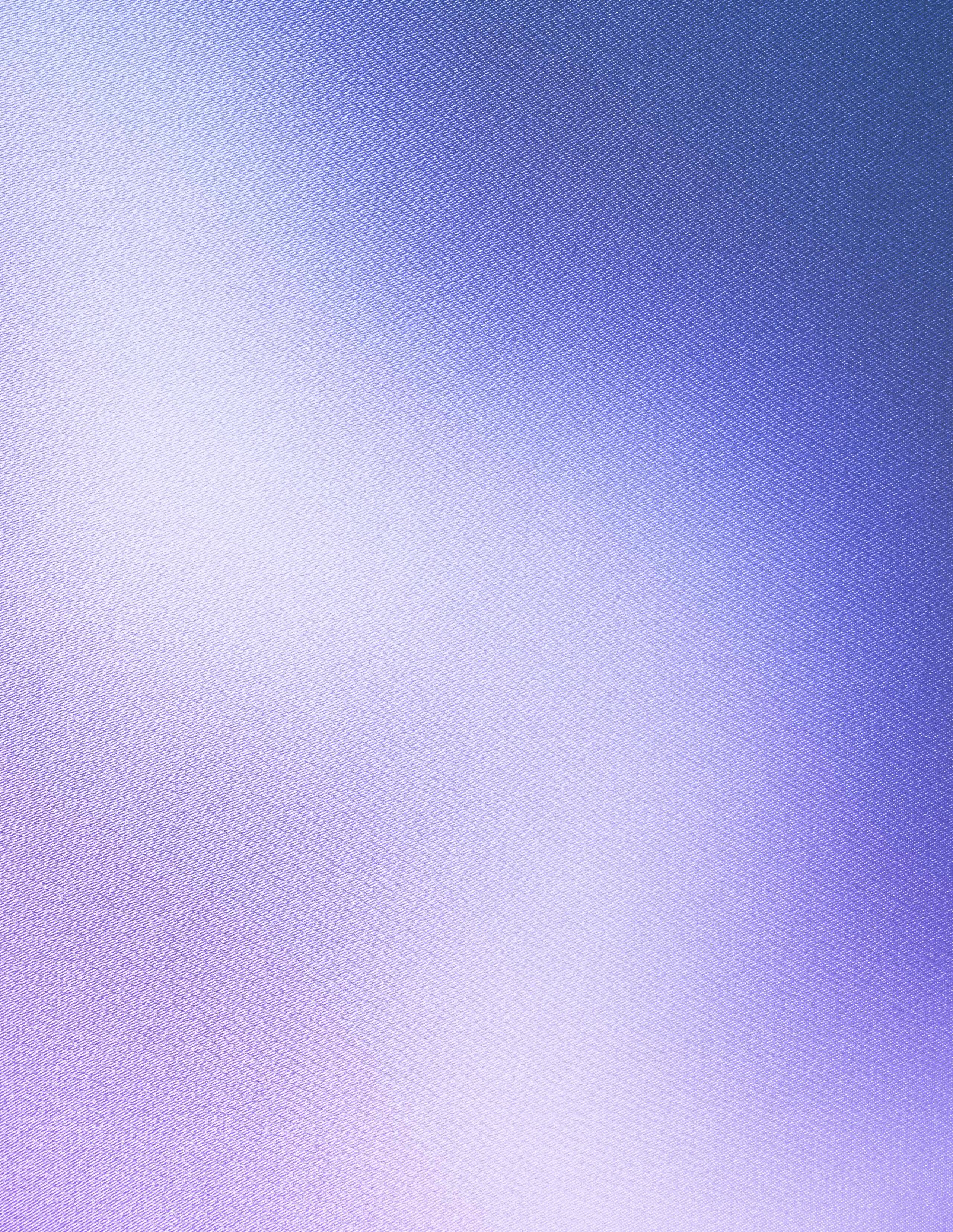

Long before right swipes and digital roses, college students of decades past were logging on for love. Computer dating hit campuses in the early 1980s as a futuristic mix of romance and technology. Students would fill out paper questionnaires about their interests, values and ideal partners. These forms were then fed into the university computer system, running matchmaking algorithms designed by computer science departments or outside dating services. A few days later, the results were printed out and distributed around campus: a personalized list of “compatible” matches, often complete with names, majors and dorm numbers. For a generation on the brink of the digital age, it was love at first byte.
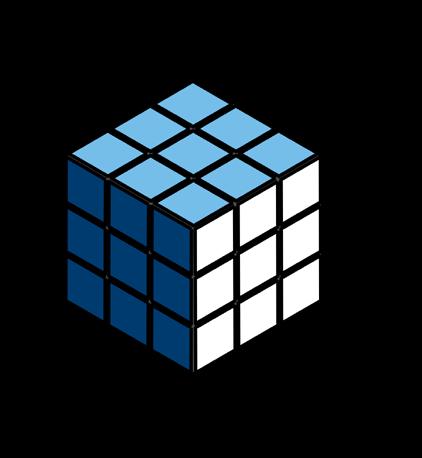
Rubik’s Cubes were all the rage in the 1980s — it’s estimated that more than 200 million were sold worldwide throughout the years 1980 to 1983.
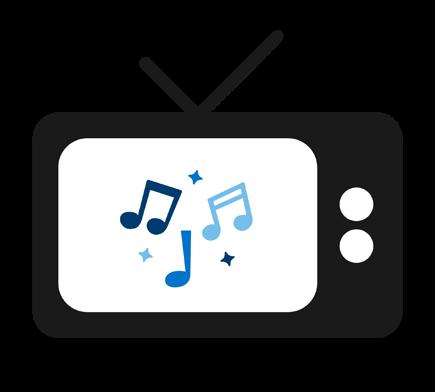
Computer dating wasn’t the only high-tech happening of 1981 — MTV aired its very first music video that summer with The Buggles’ Video Killed the Radio Star.

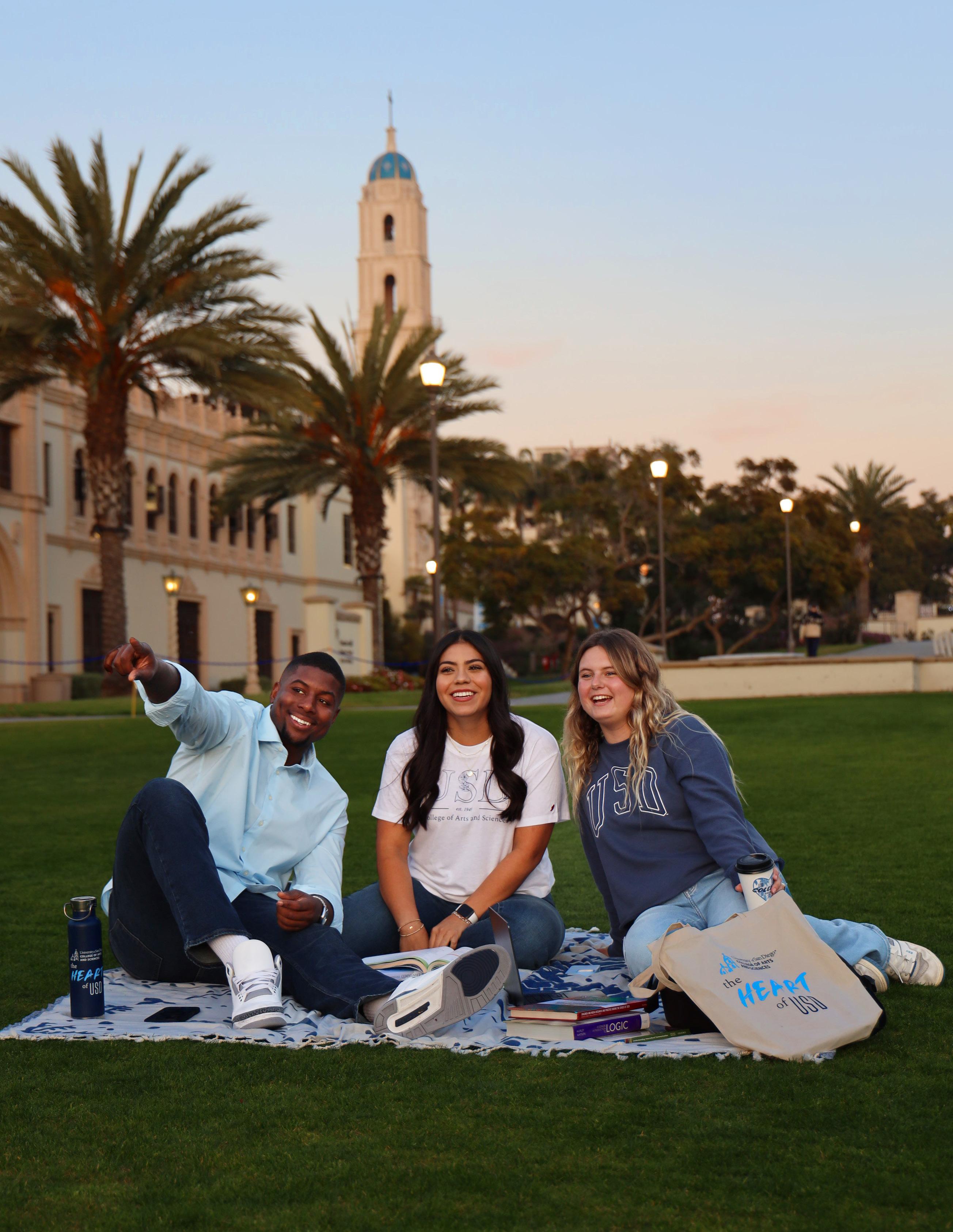
CHANGE SERVICE REQUESTED